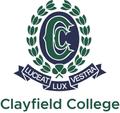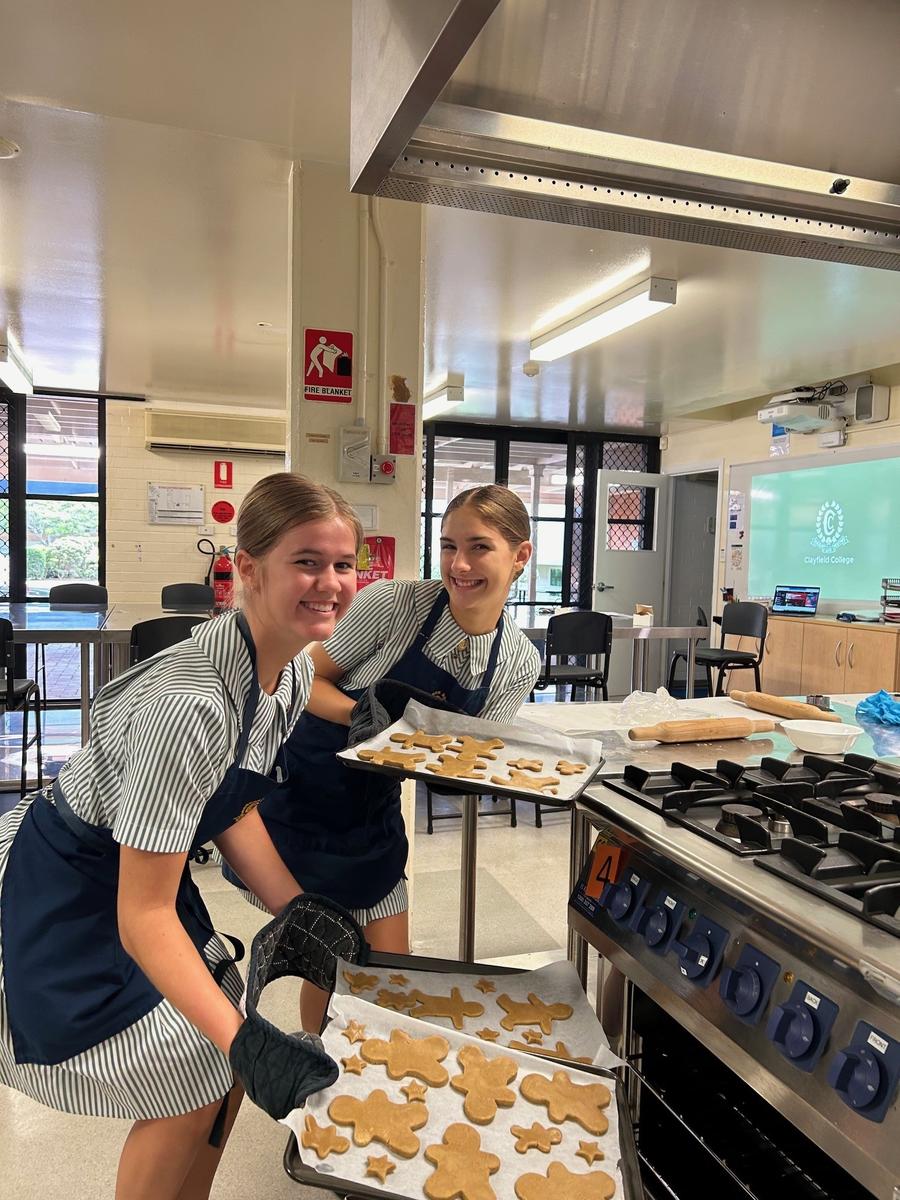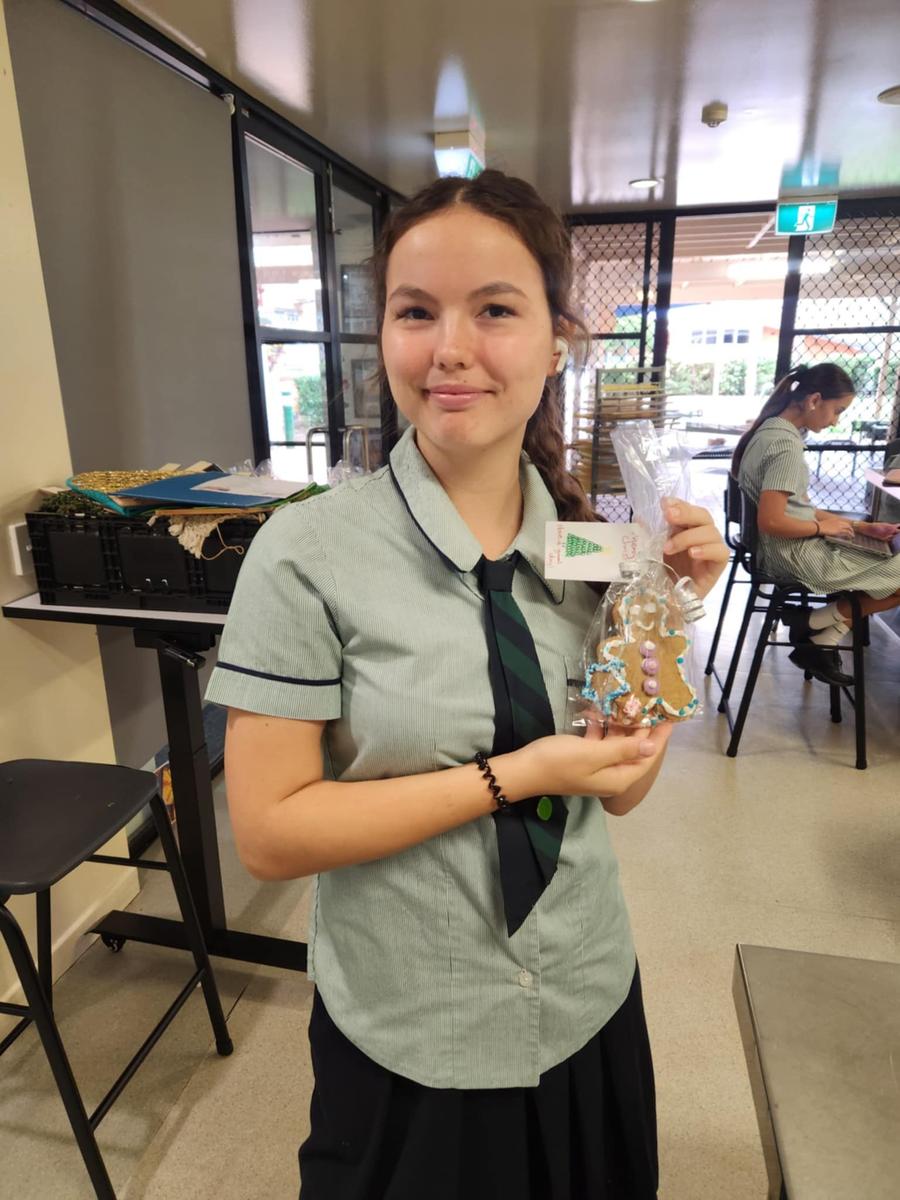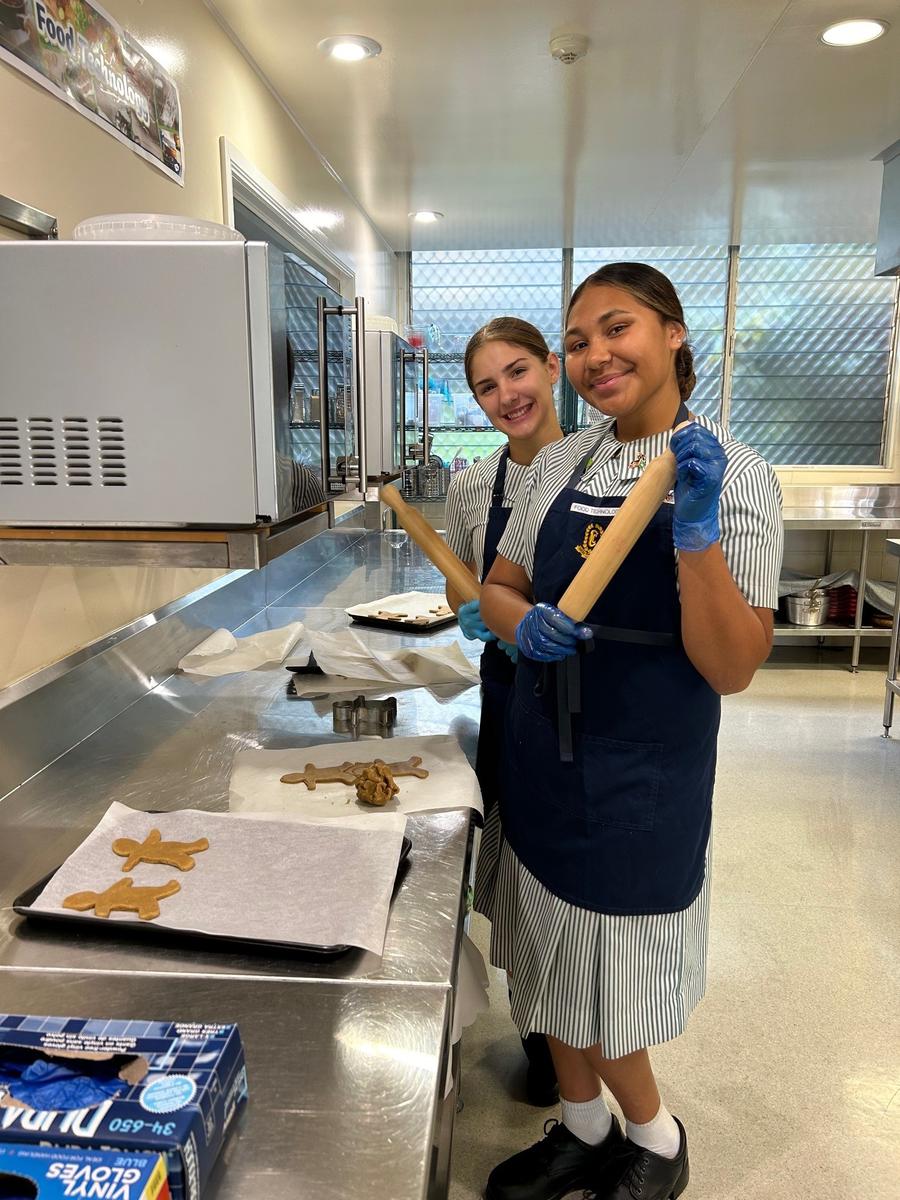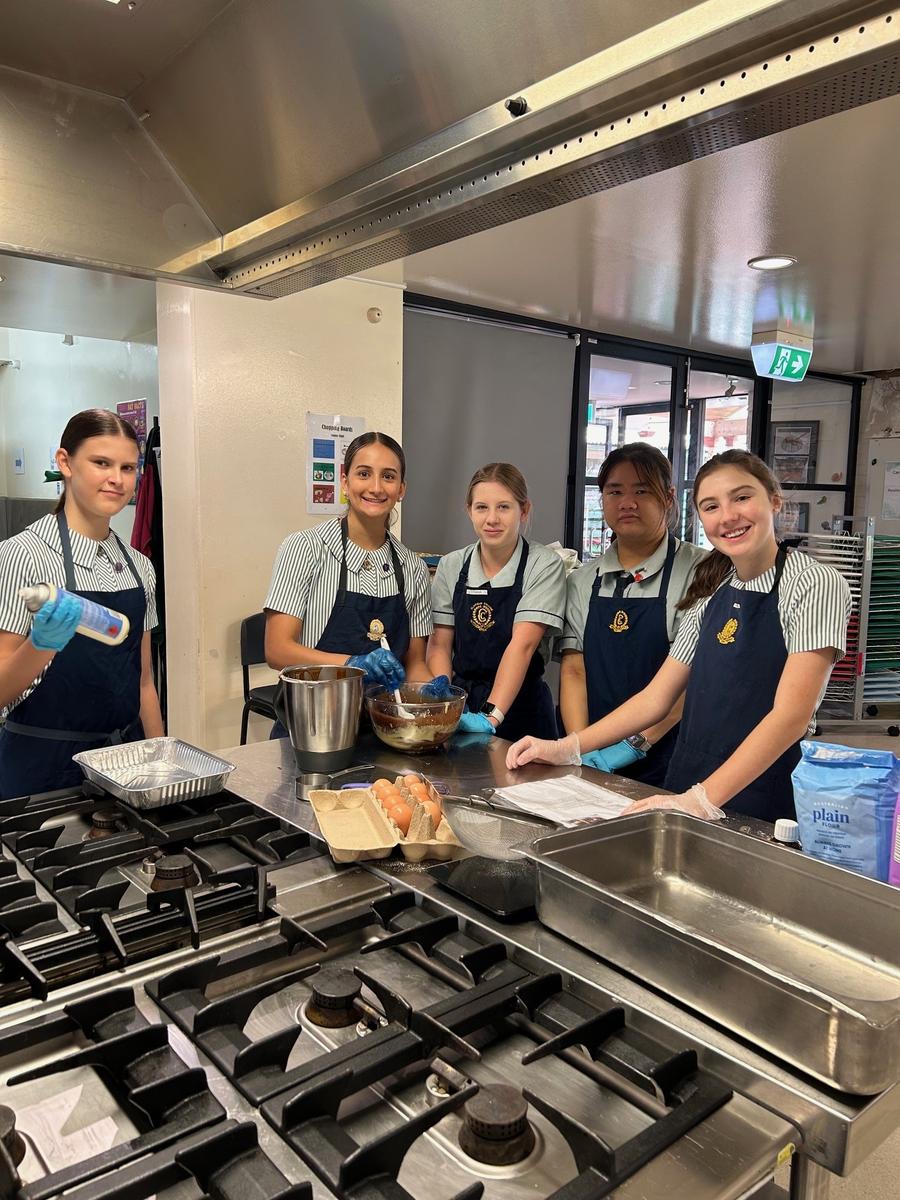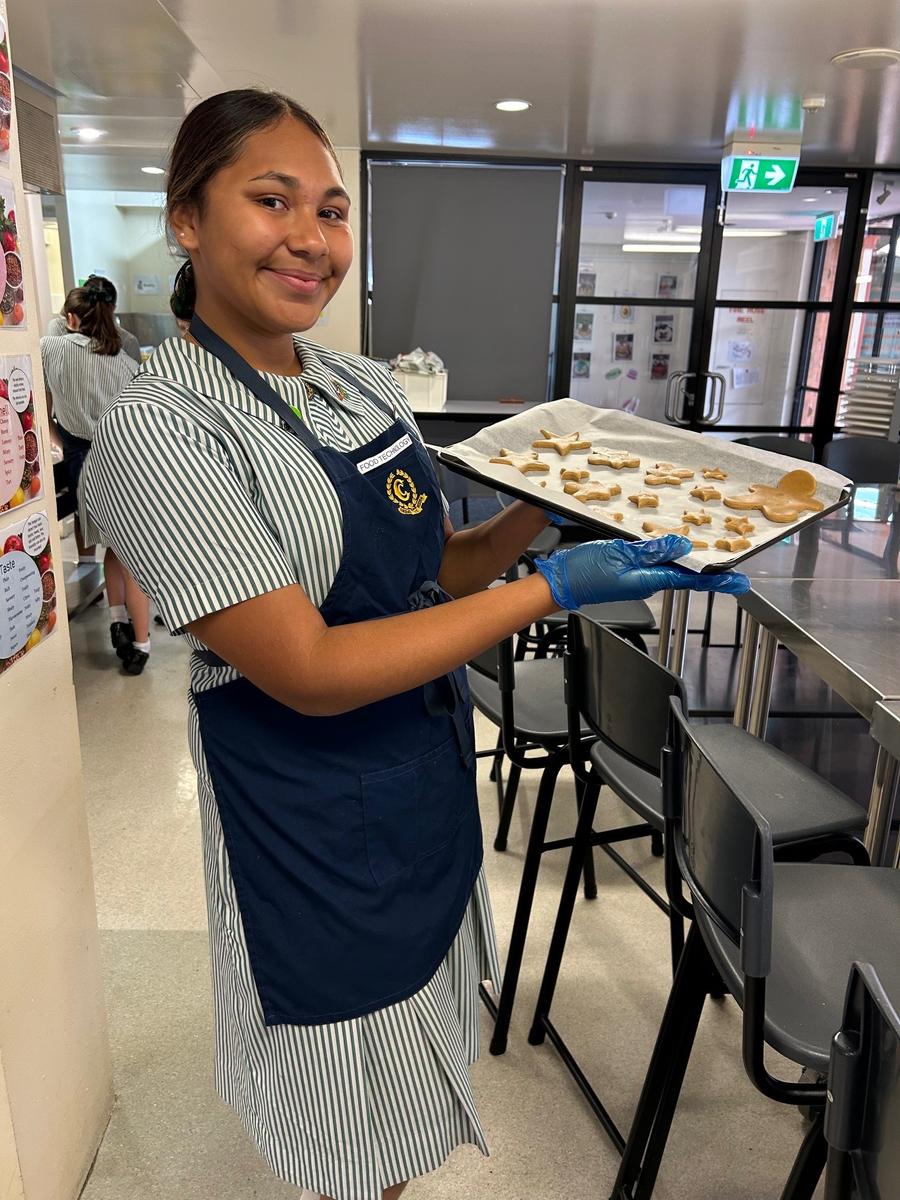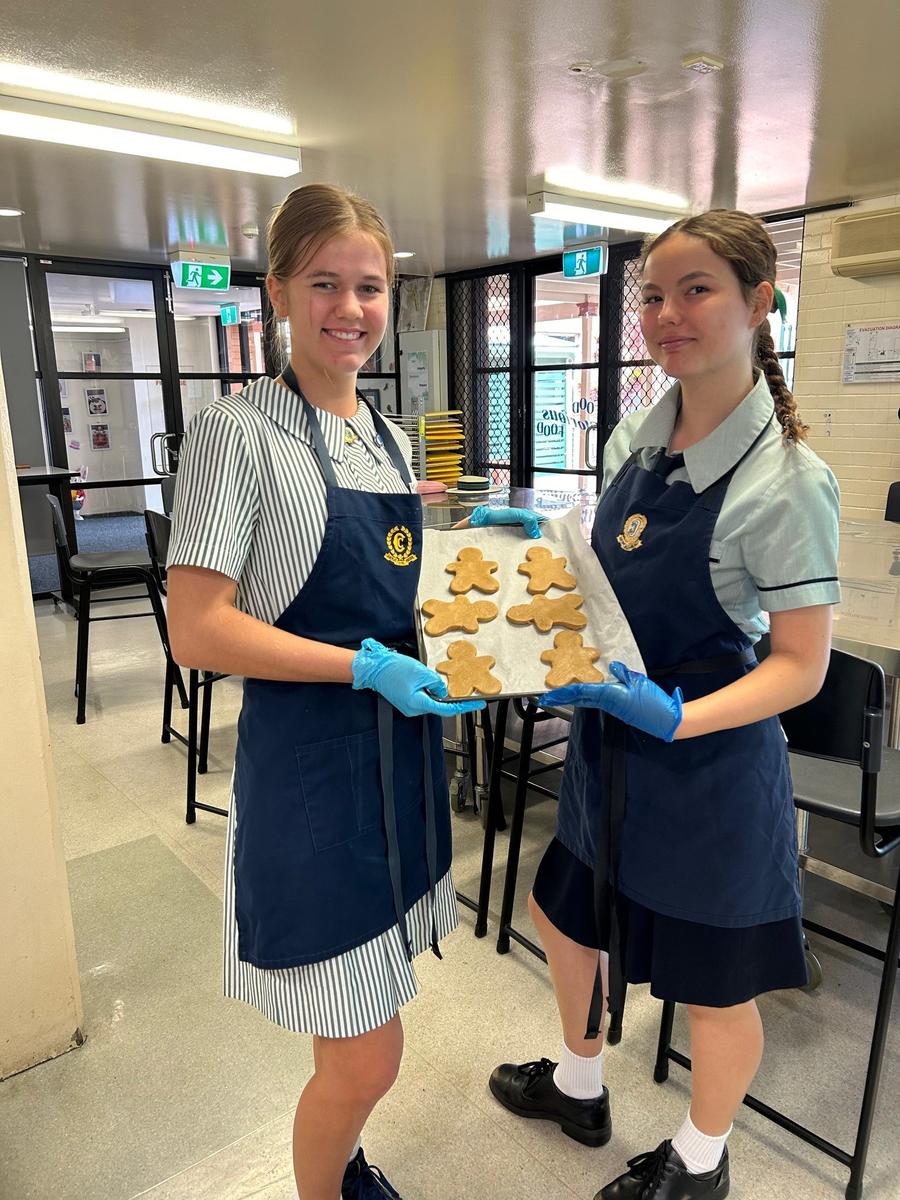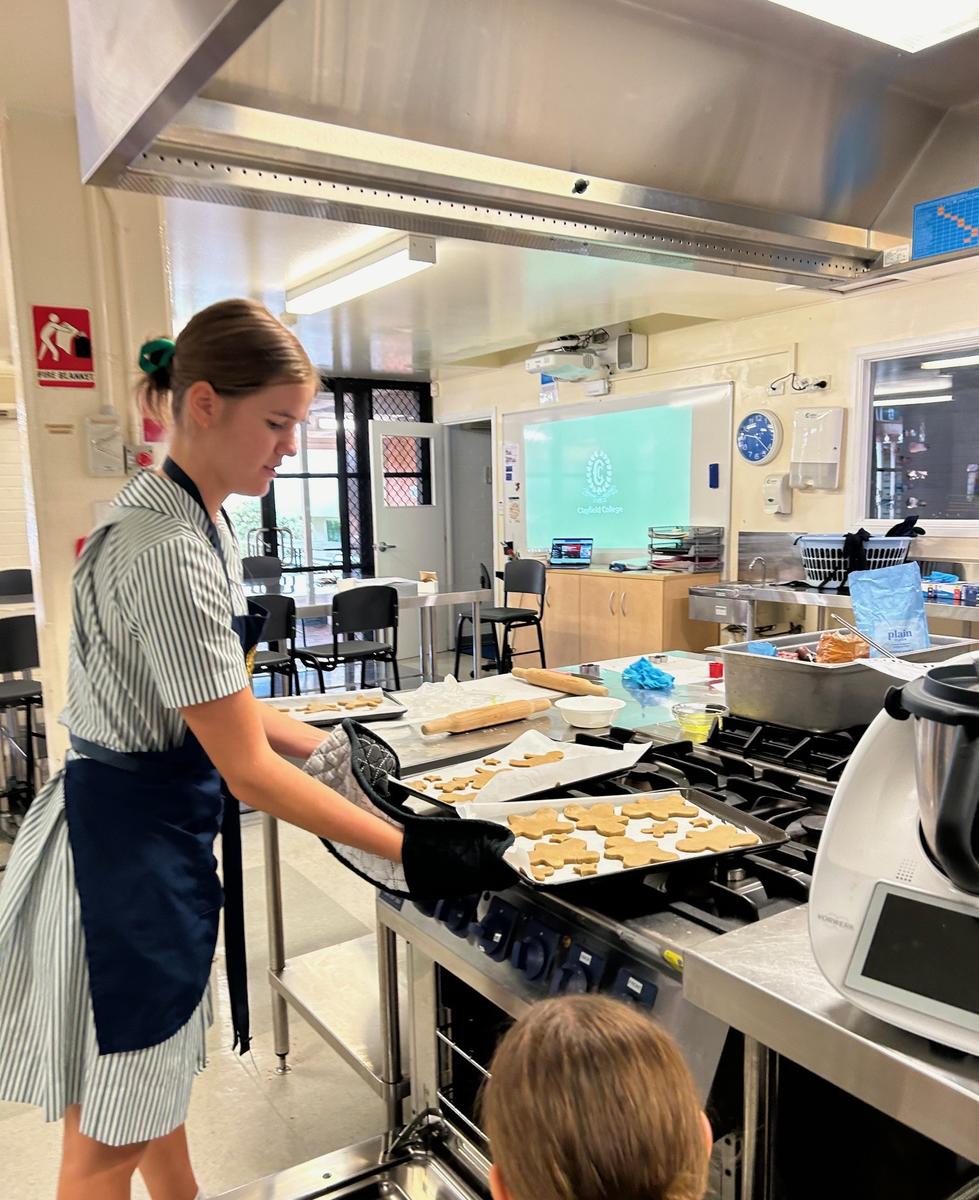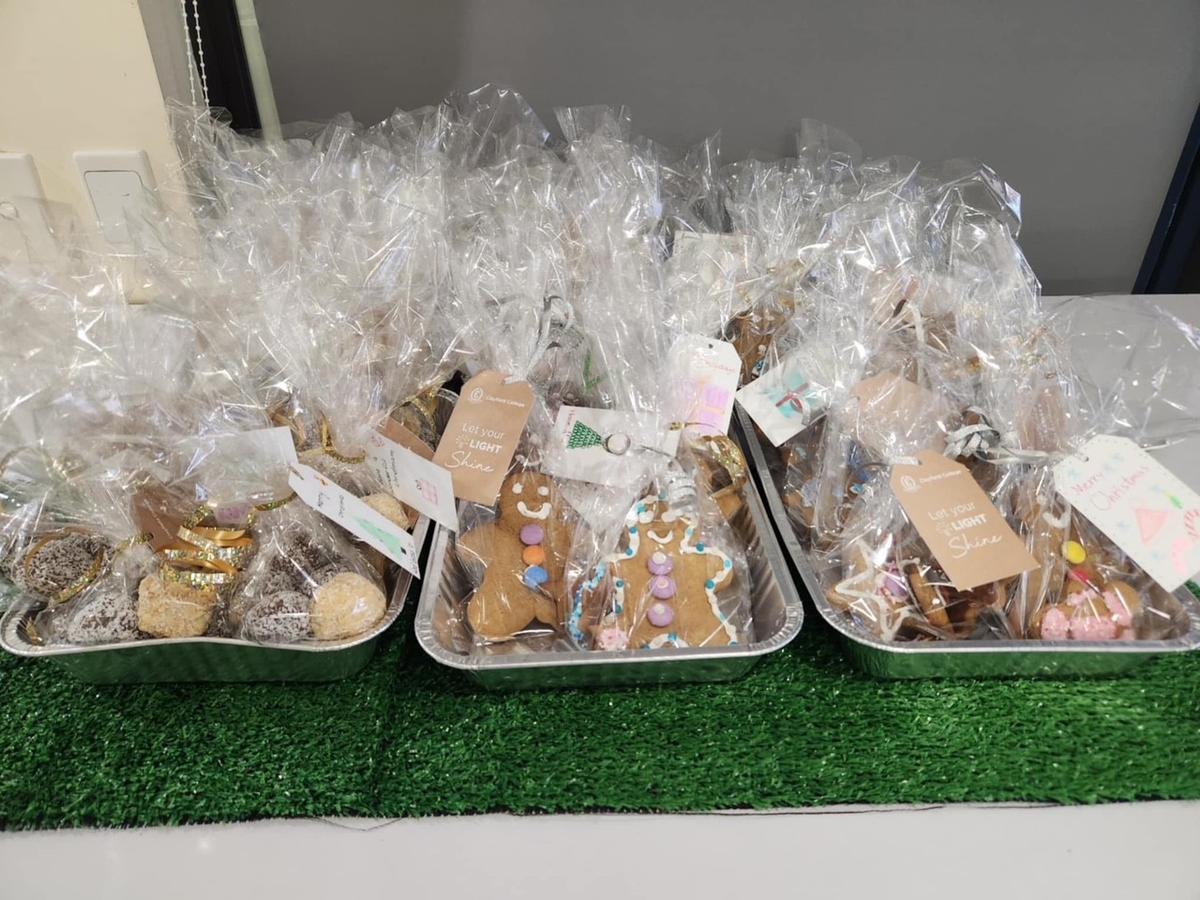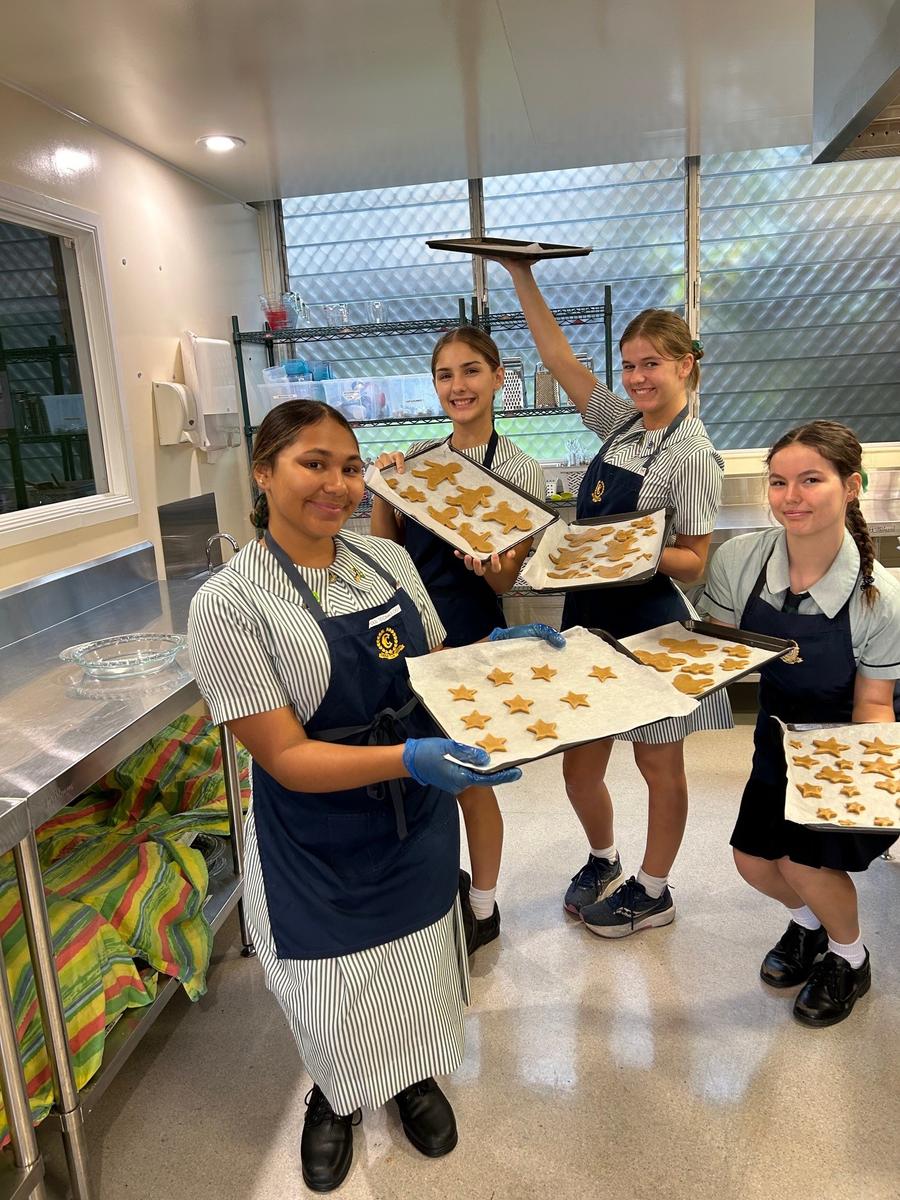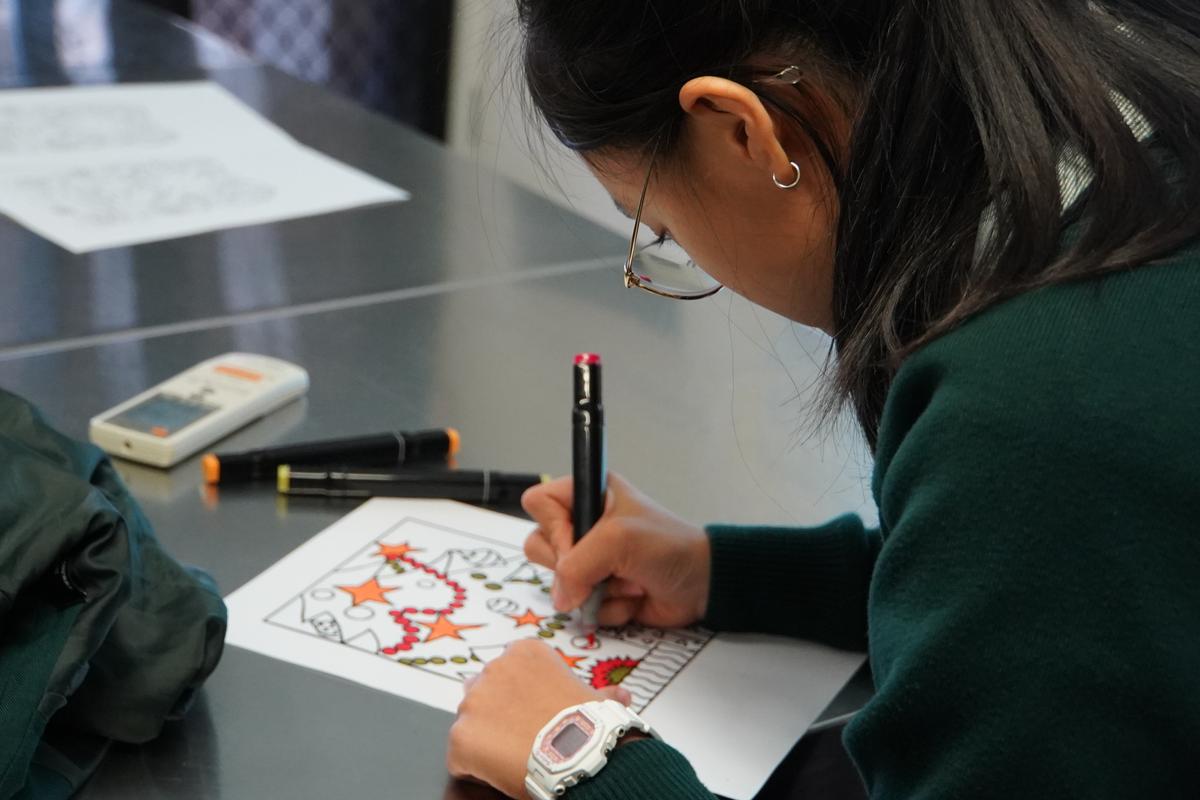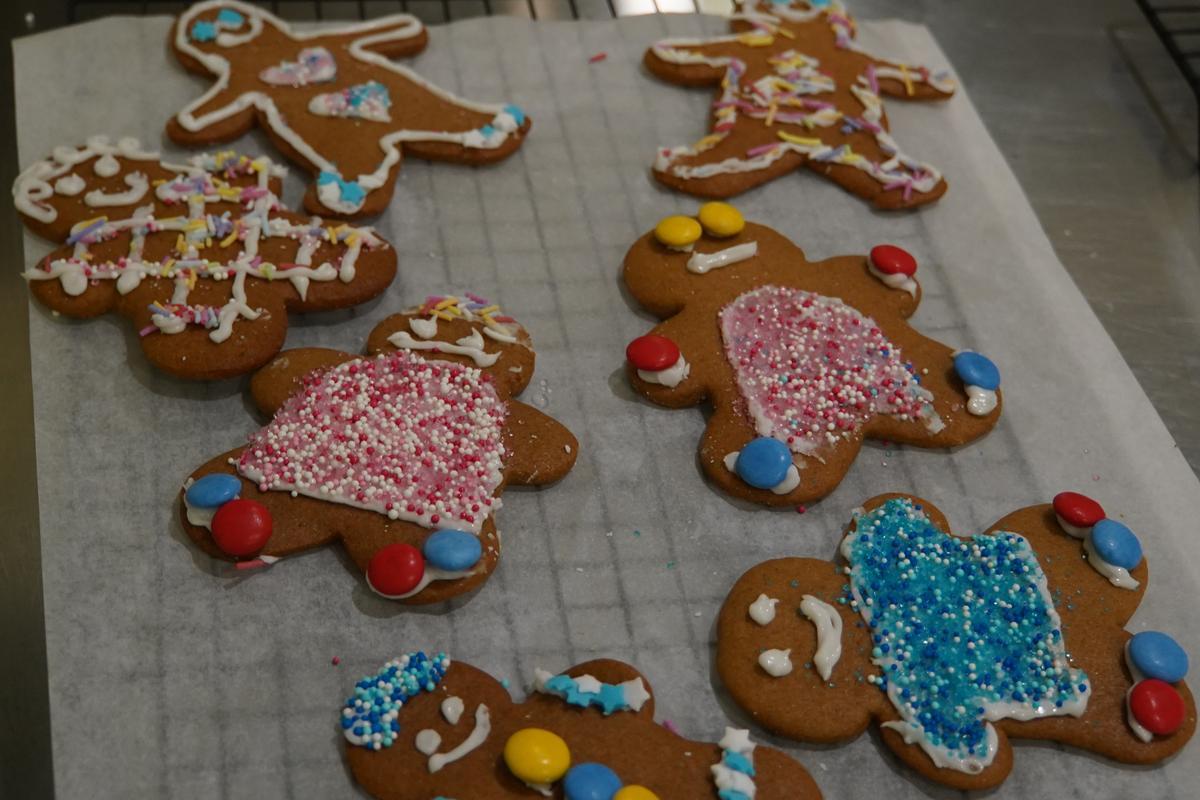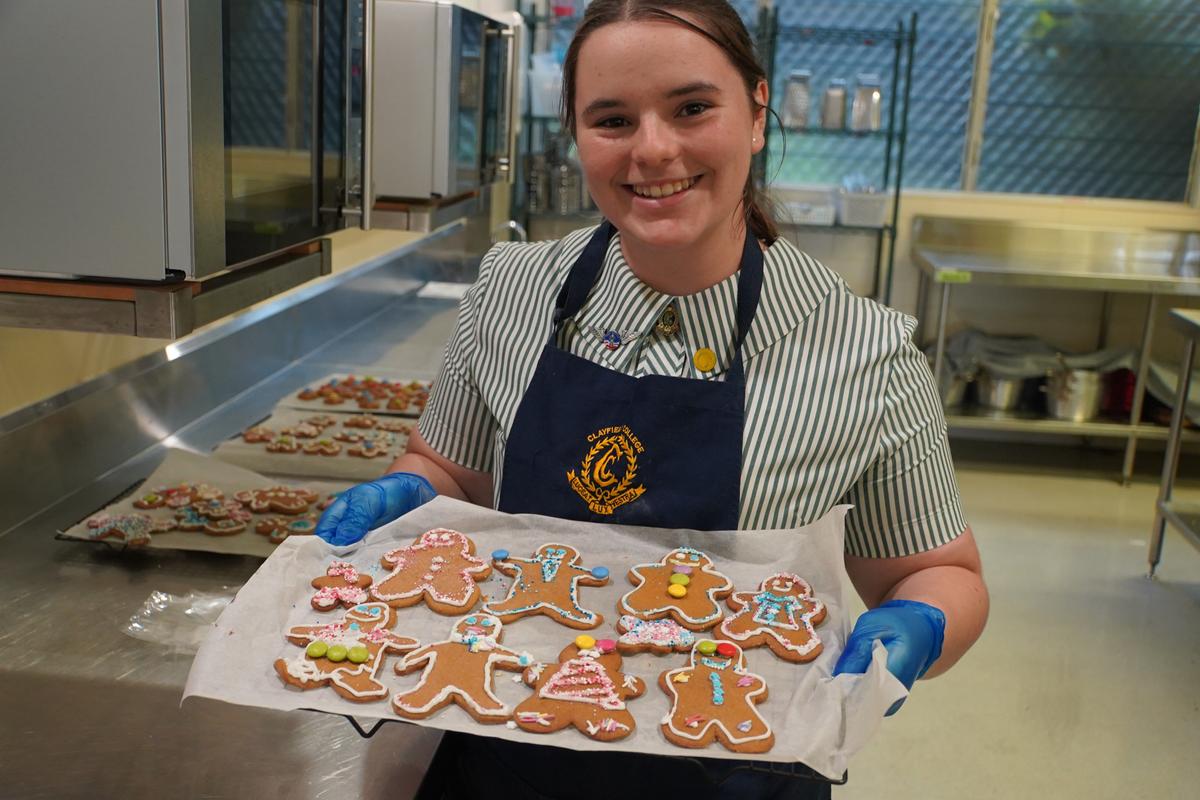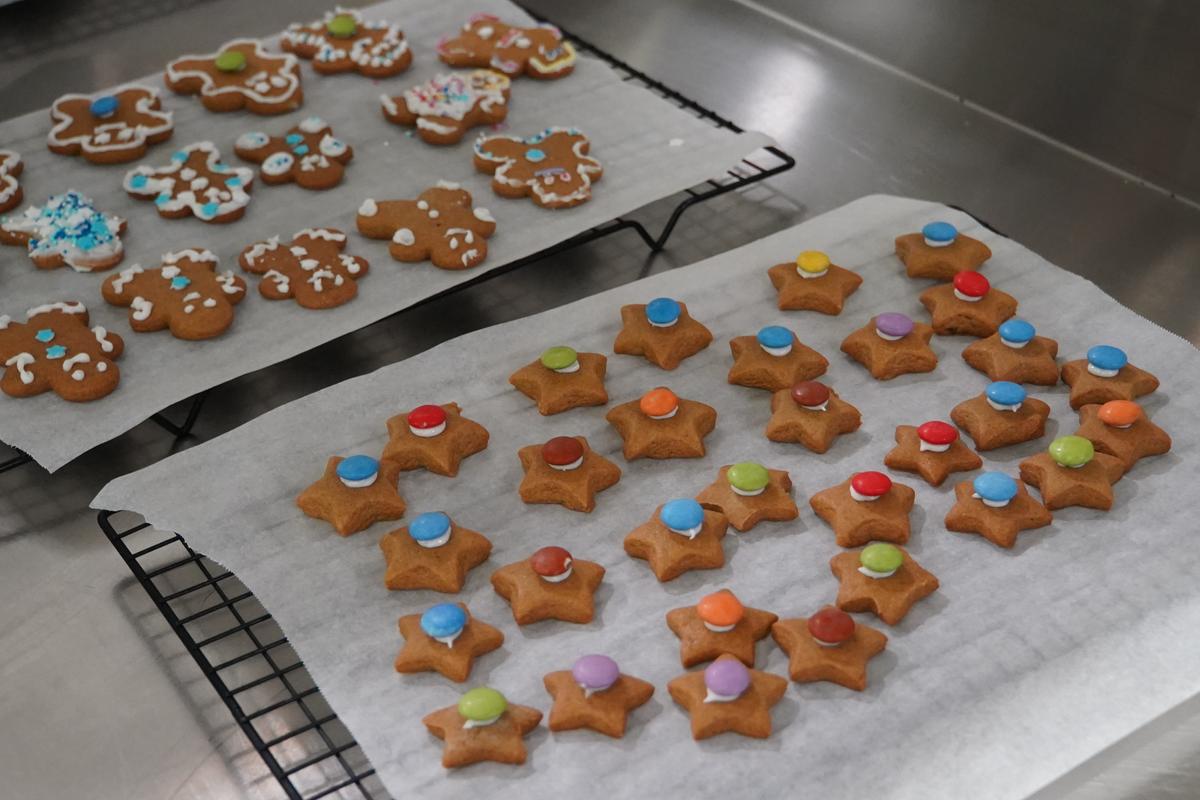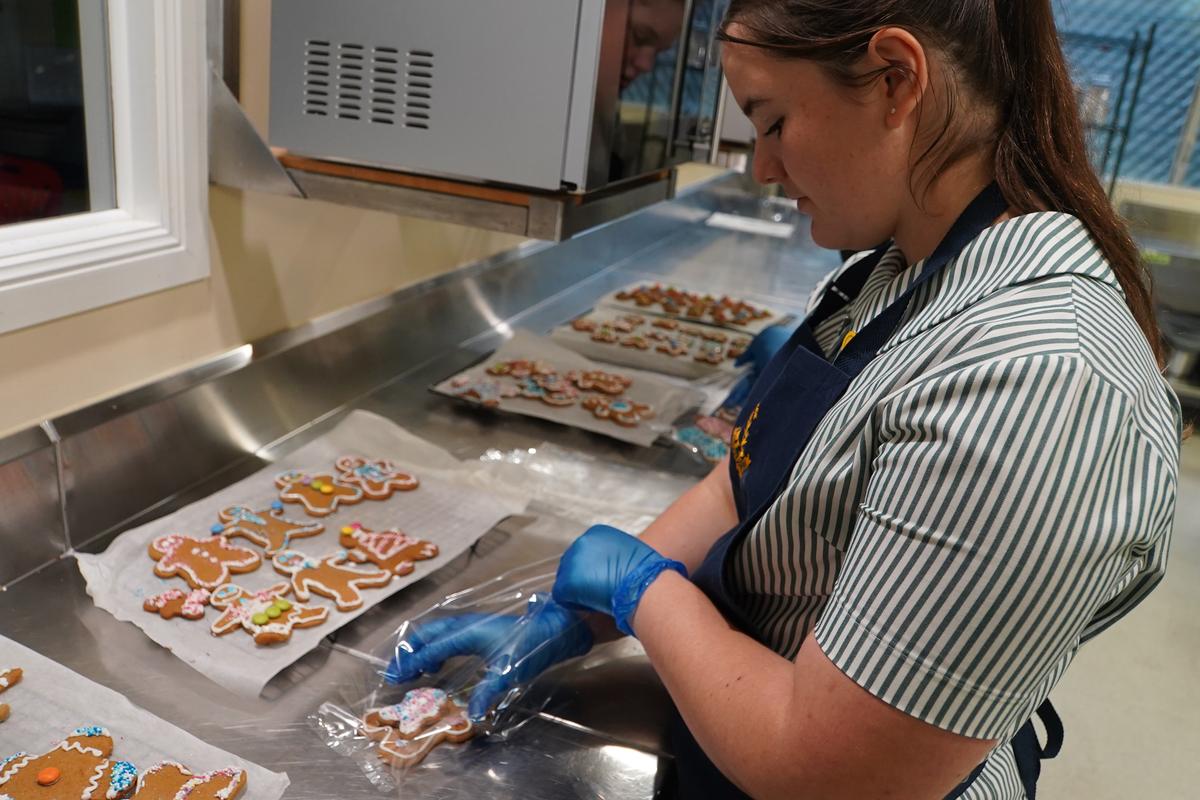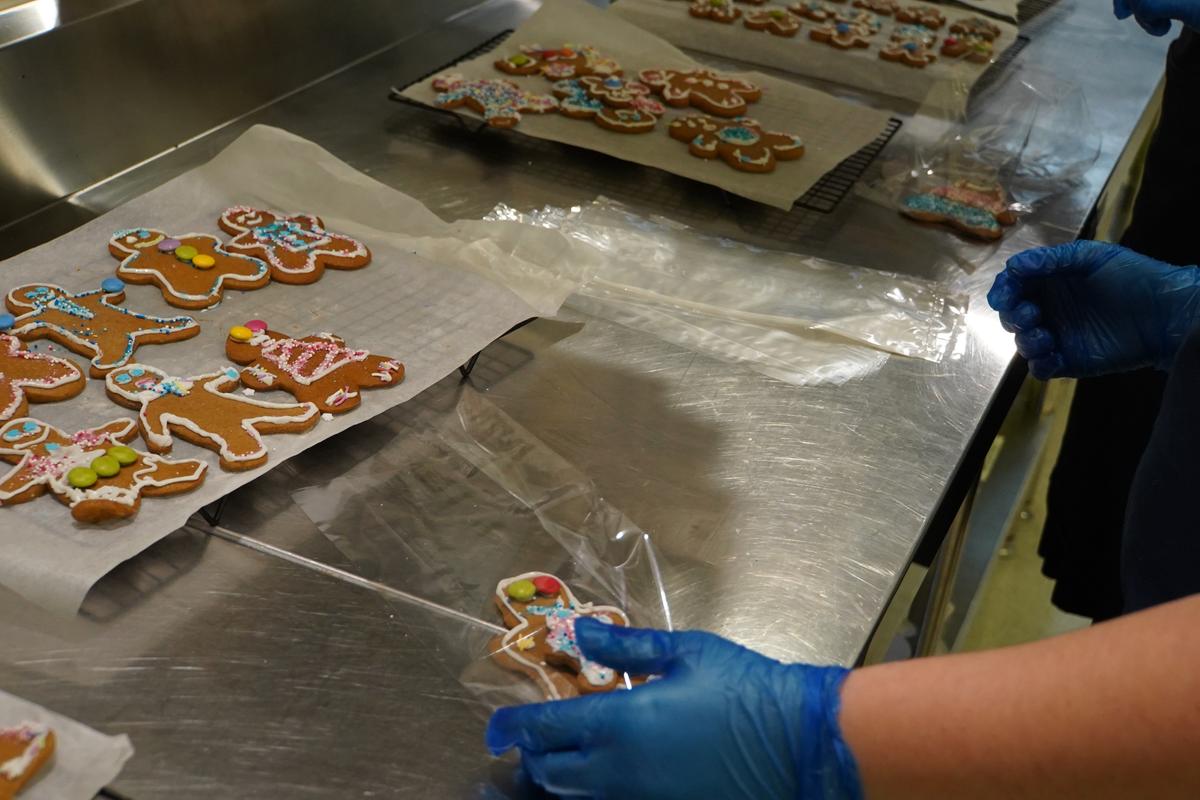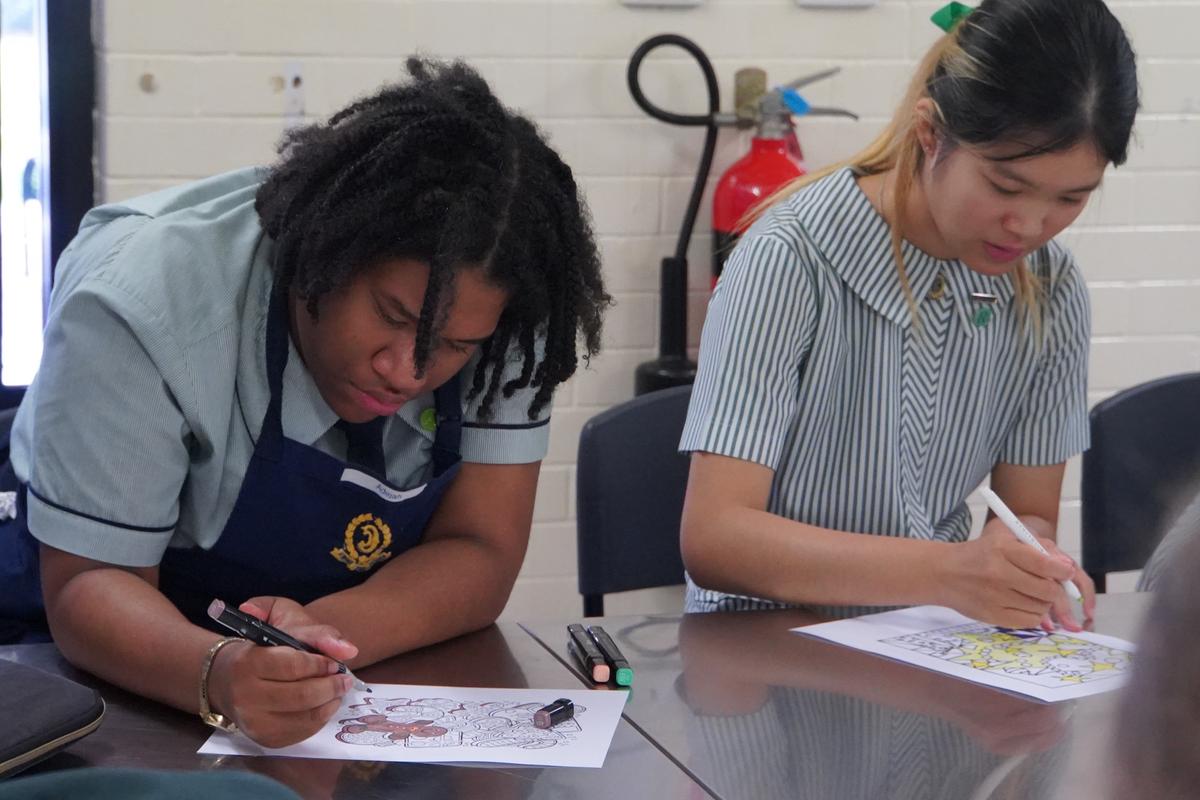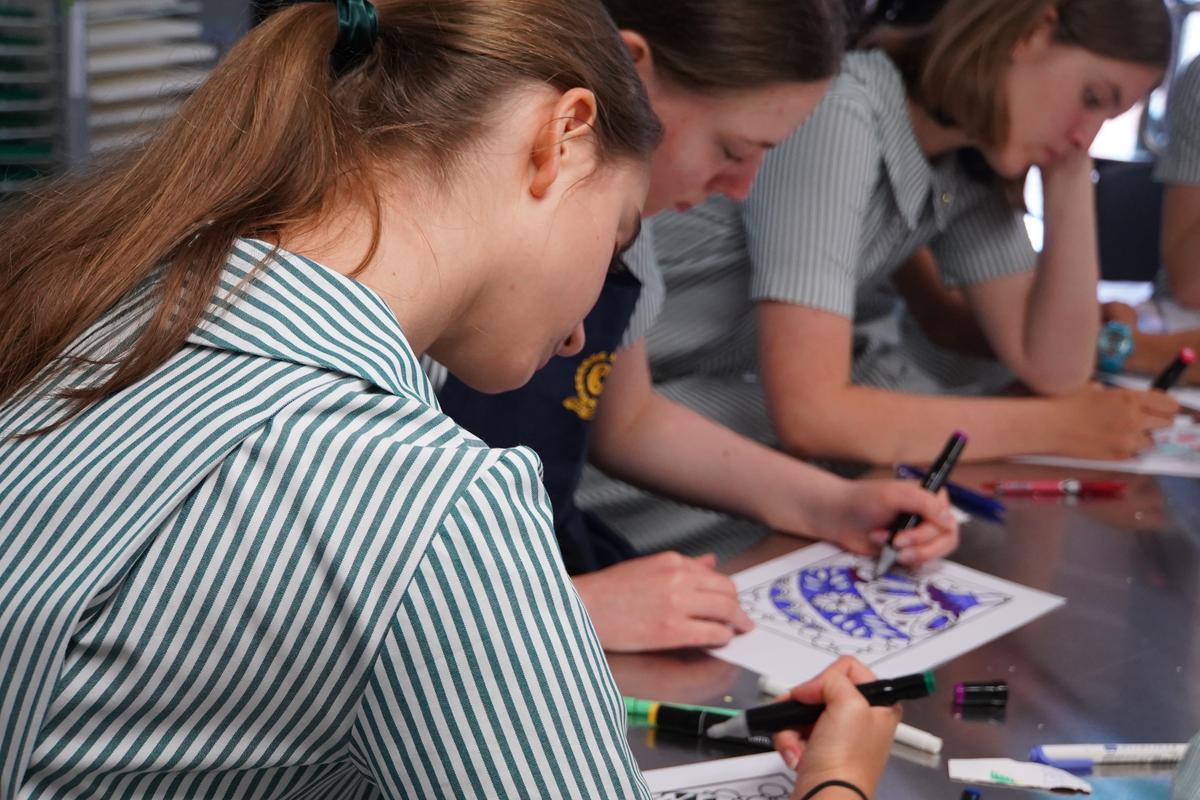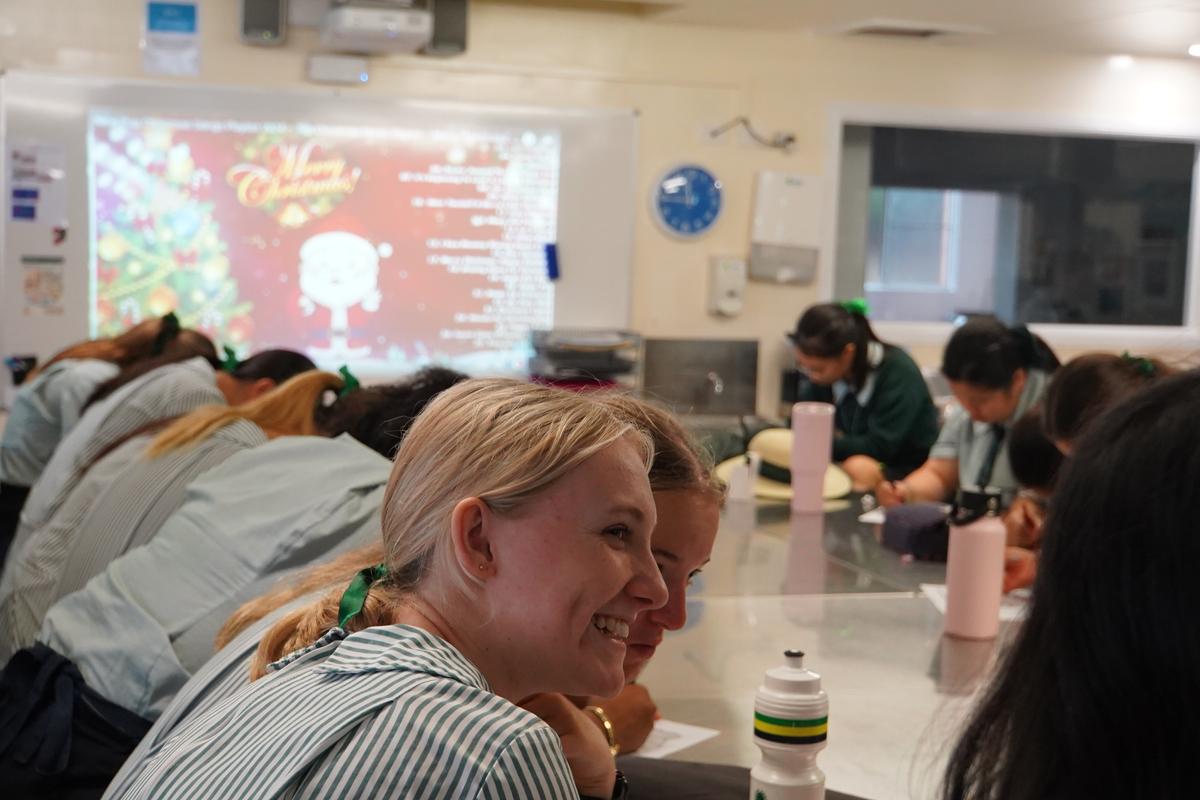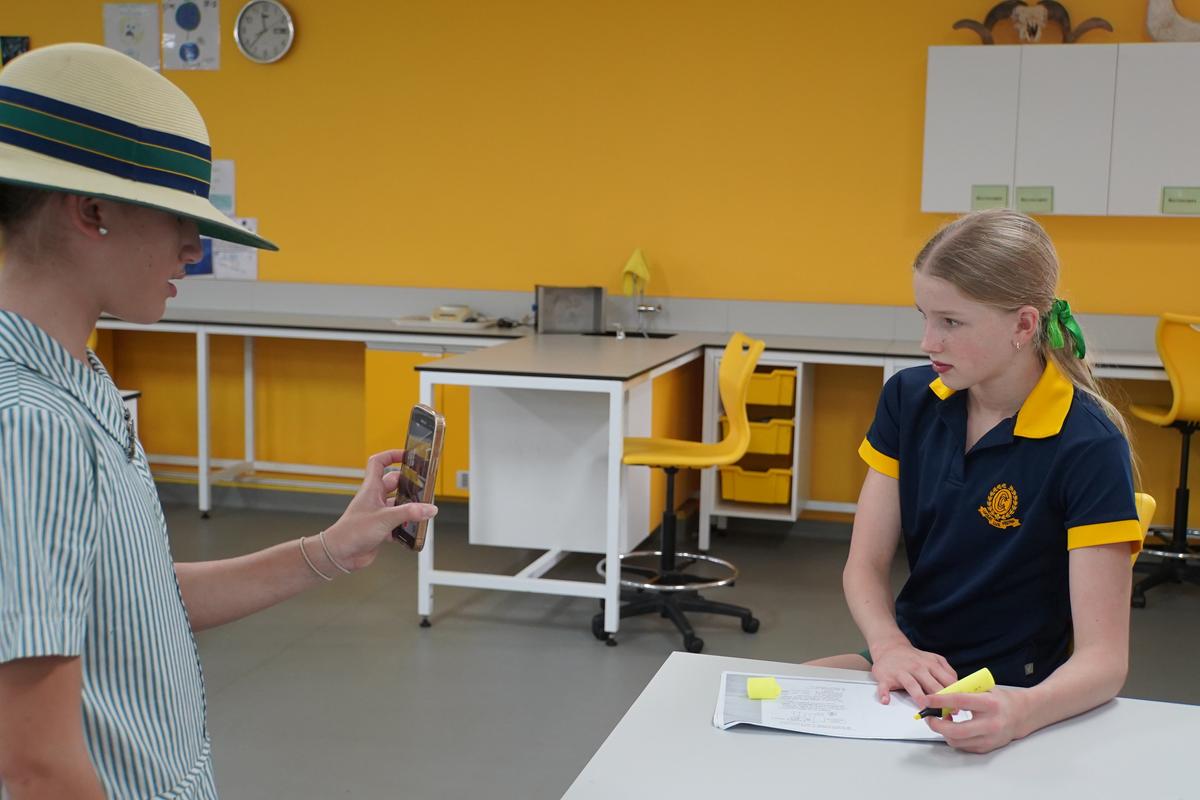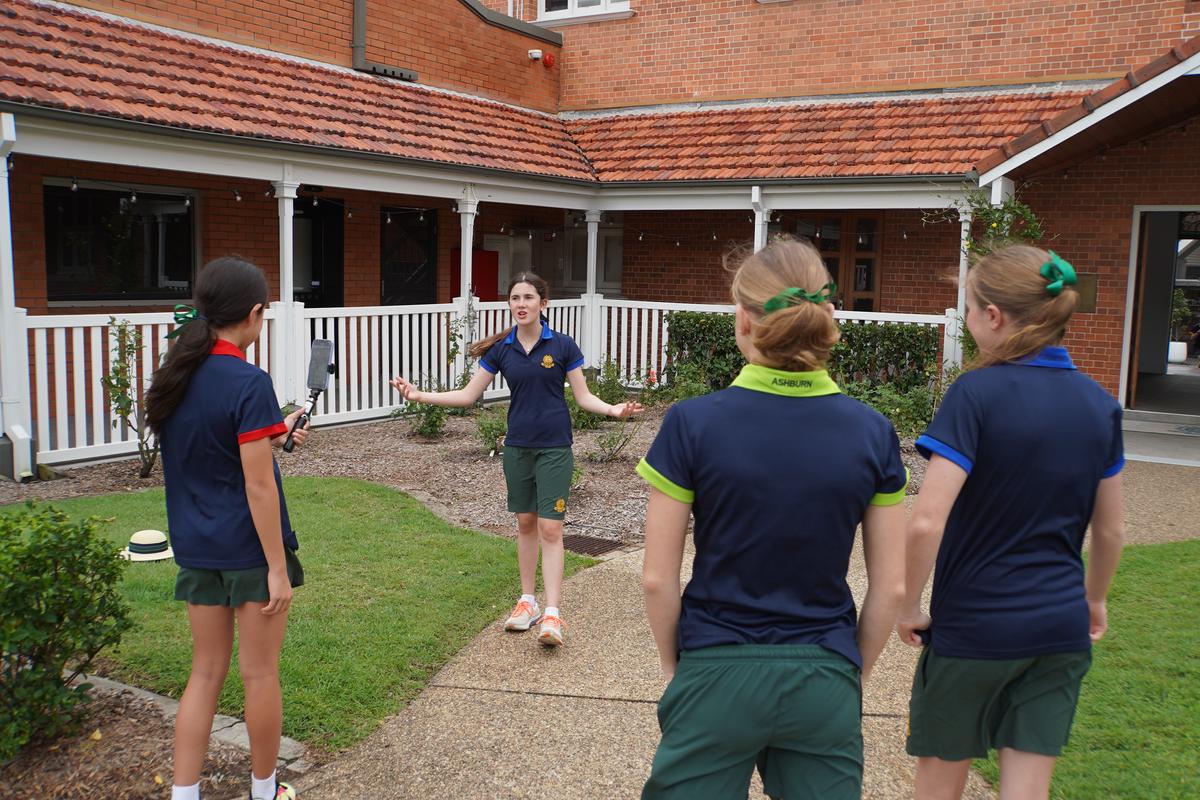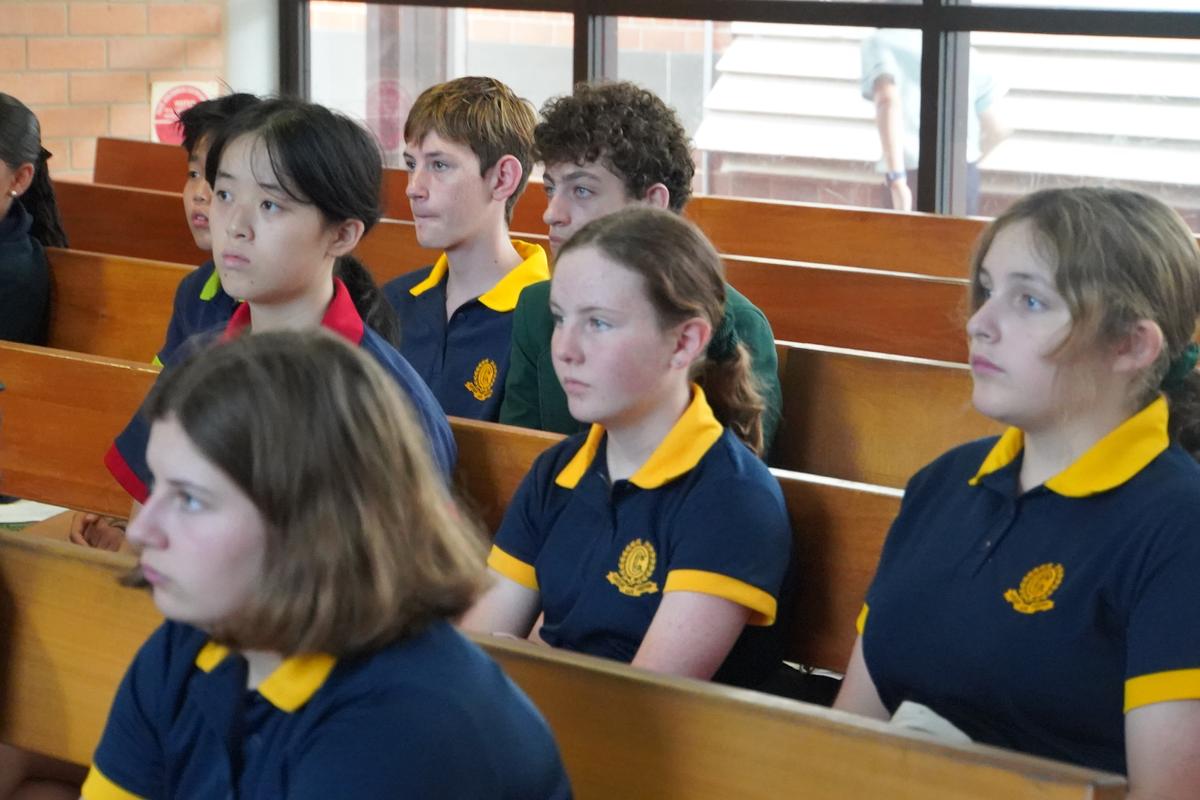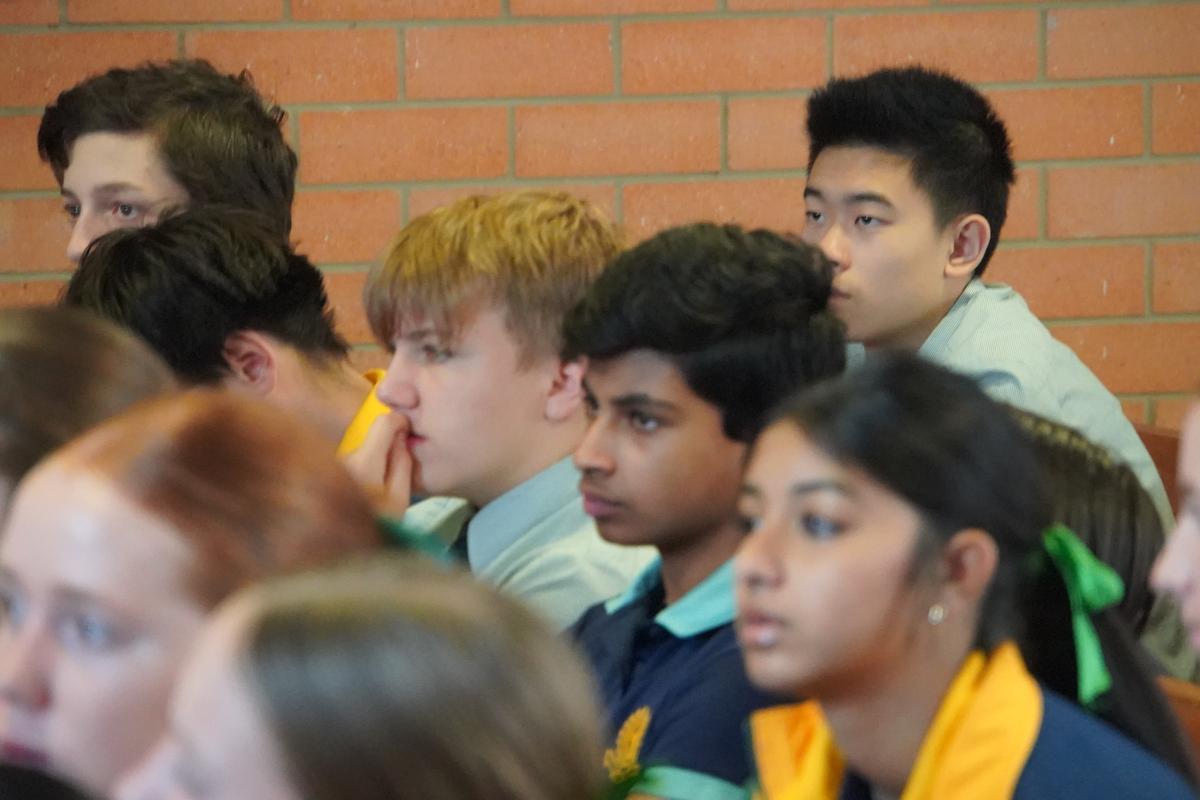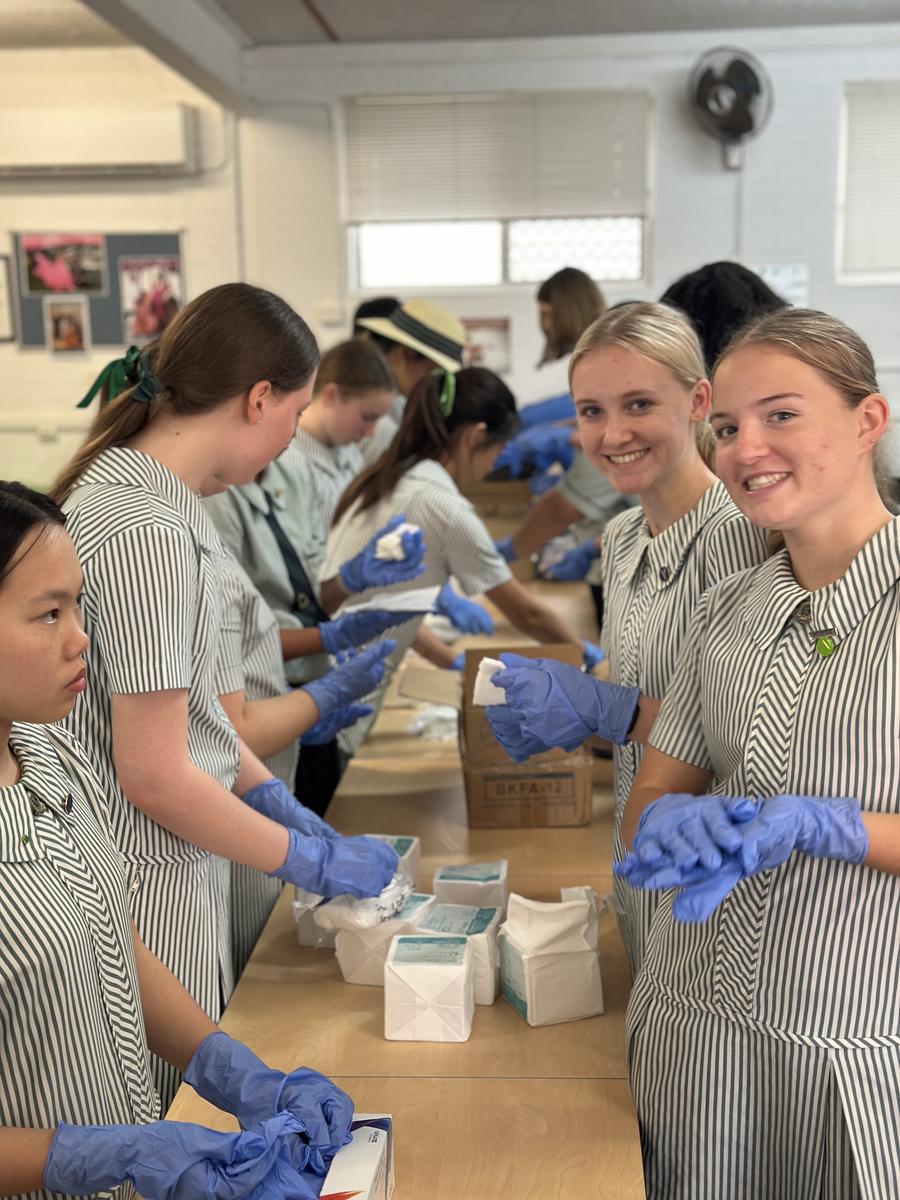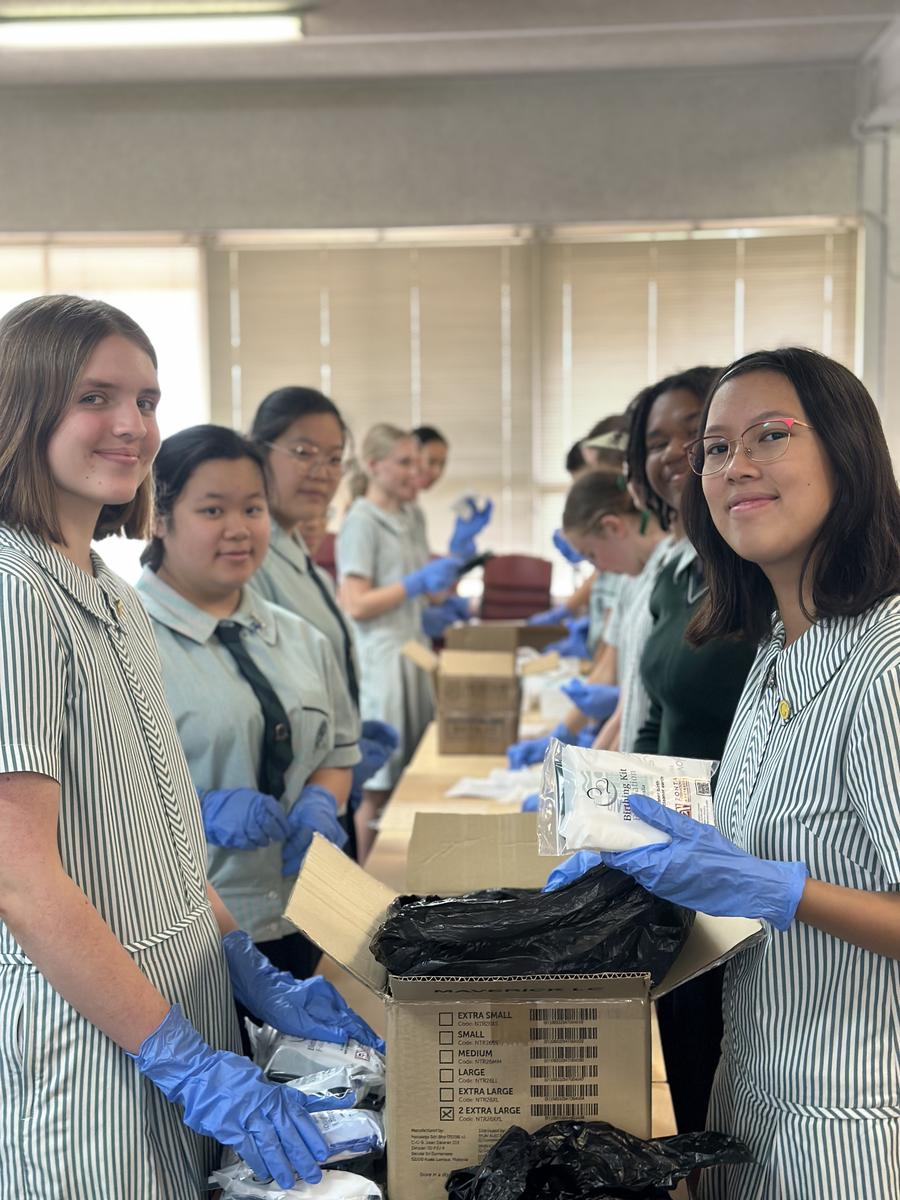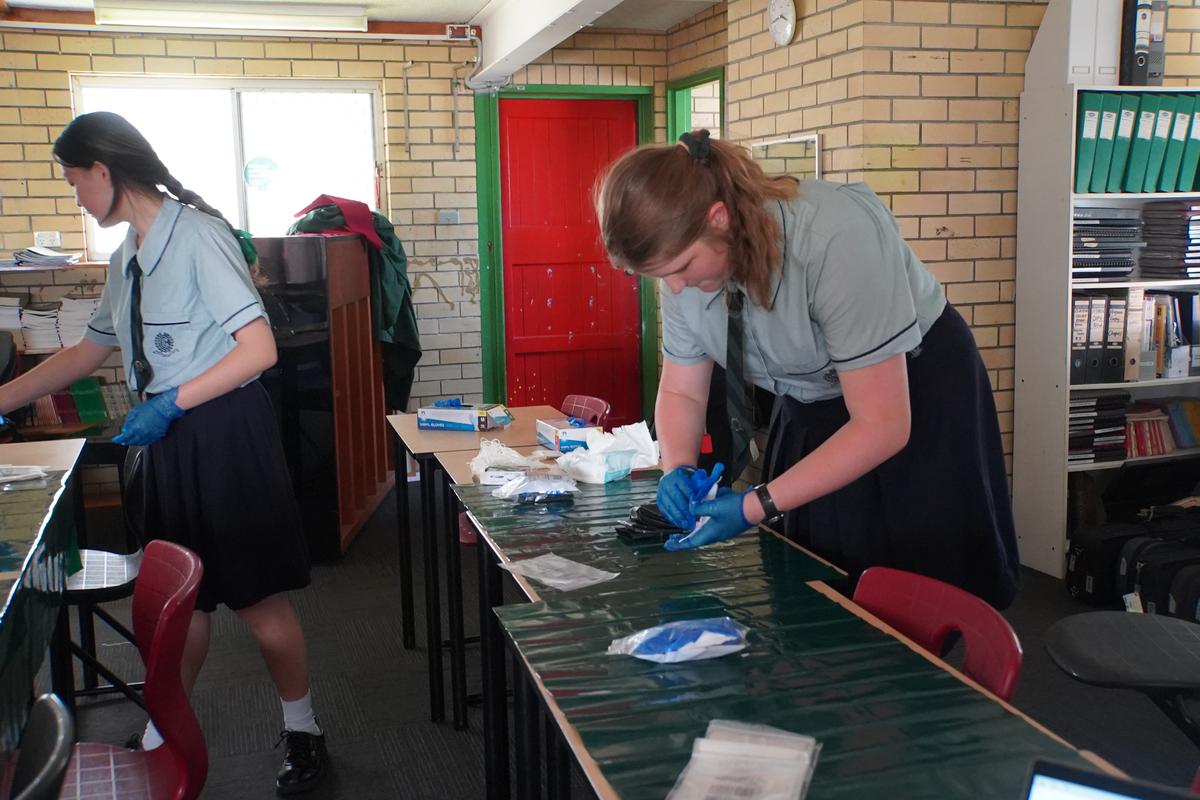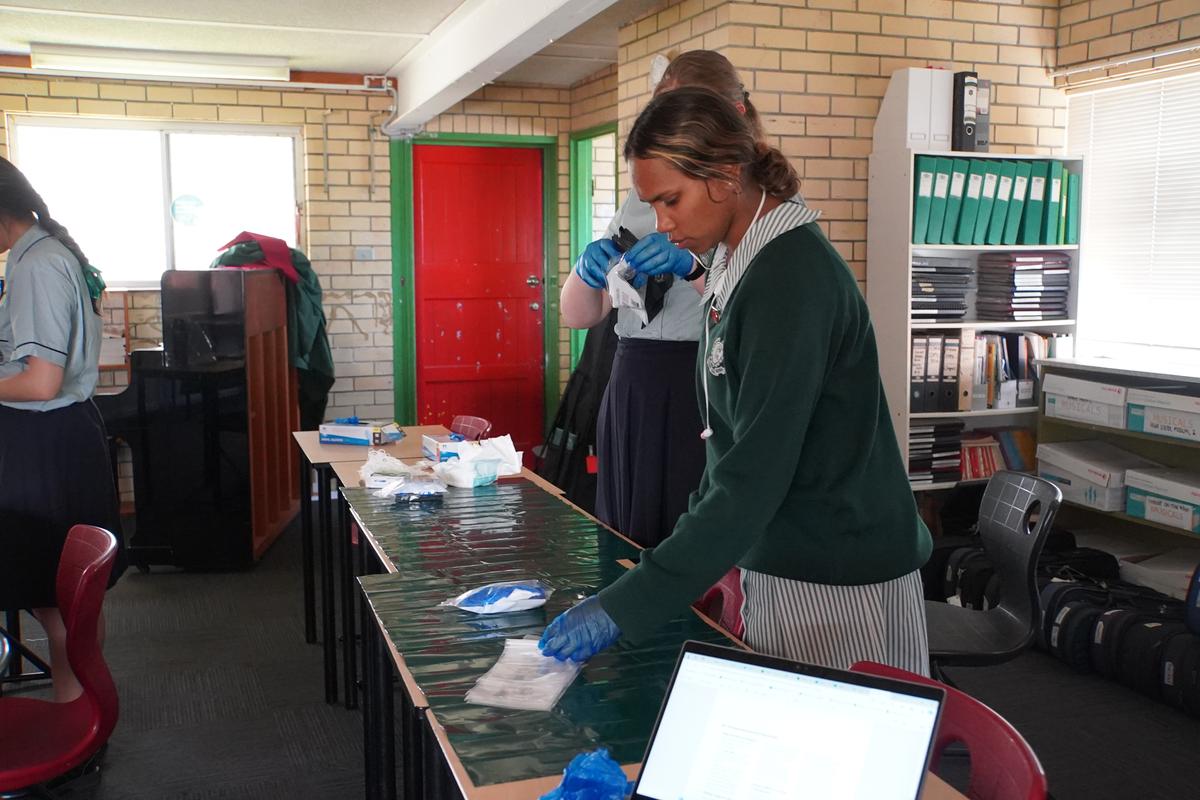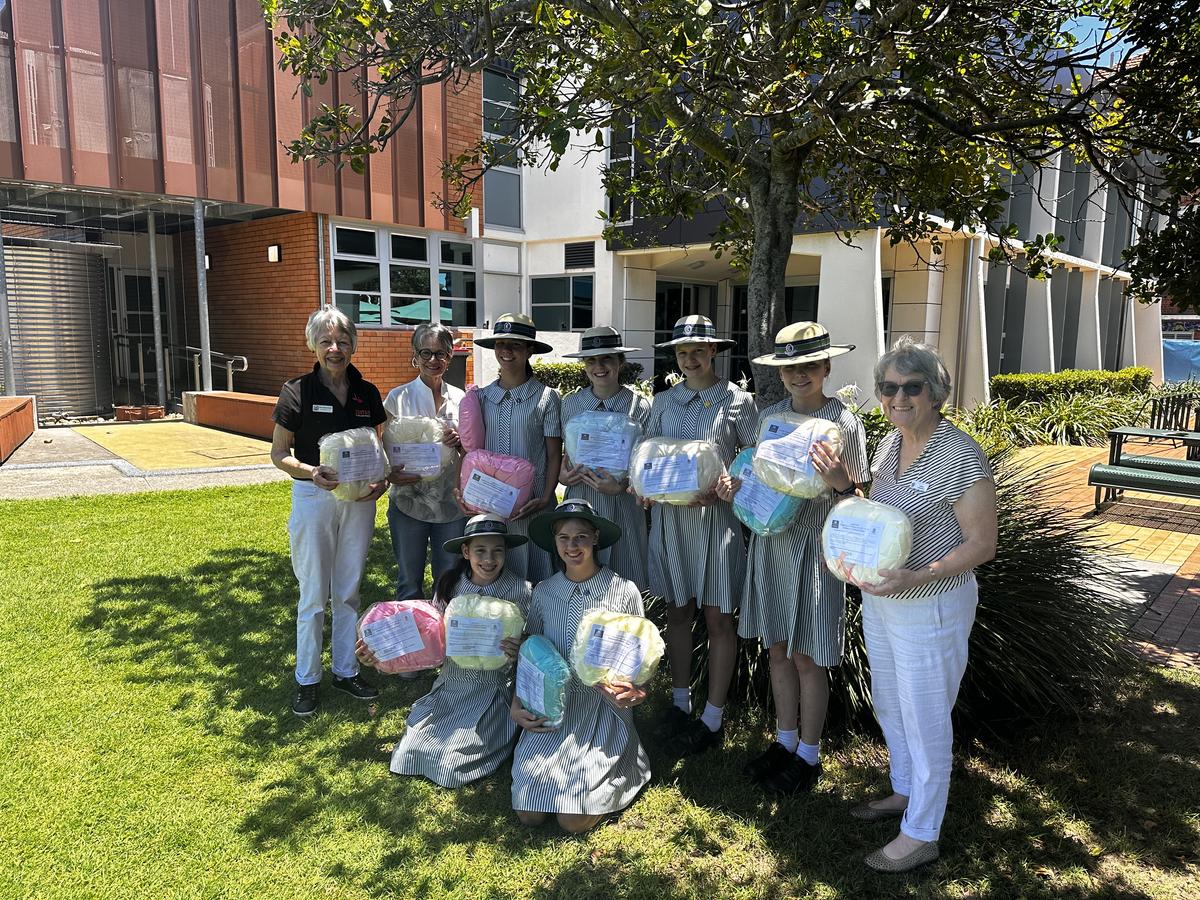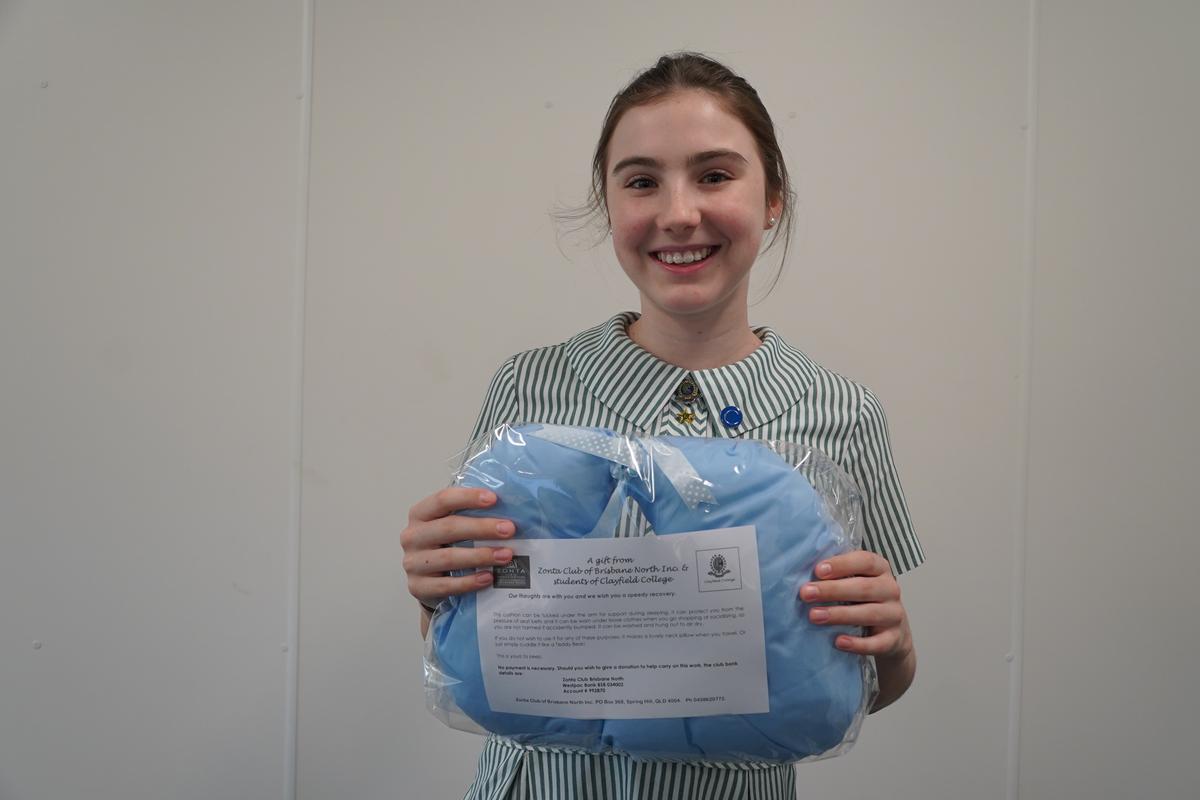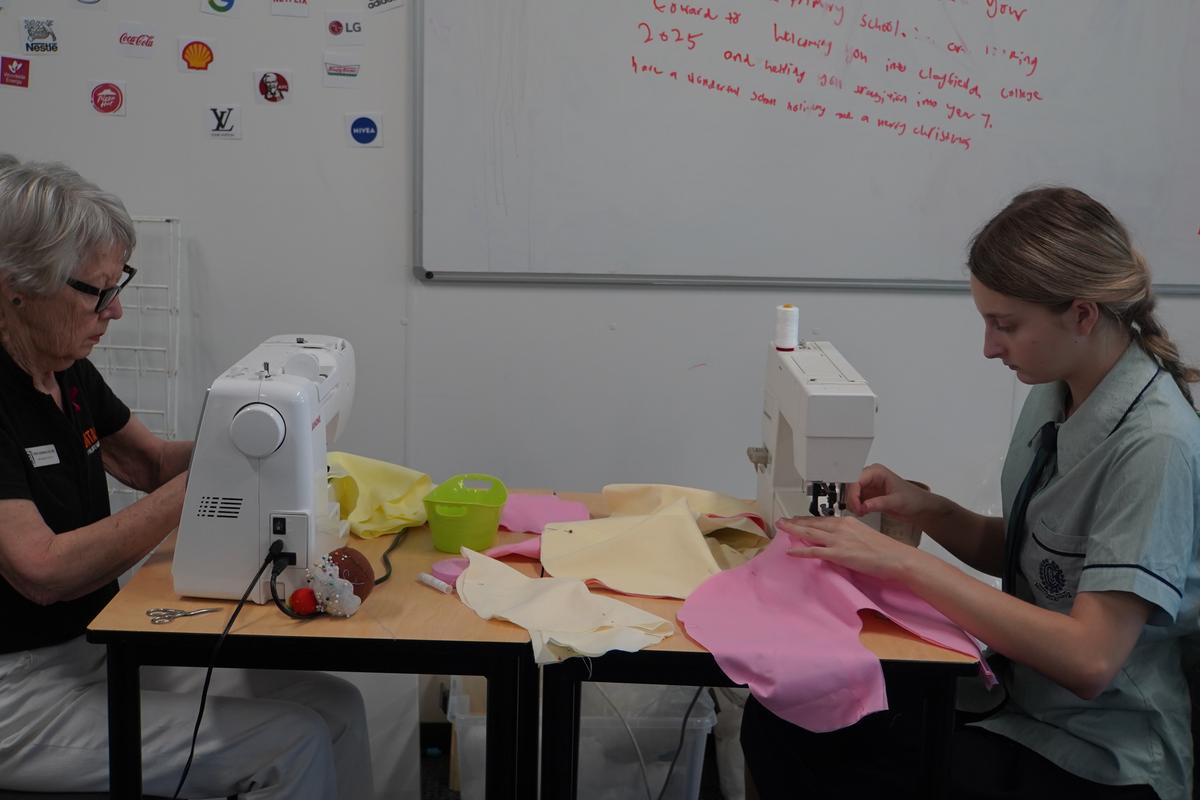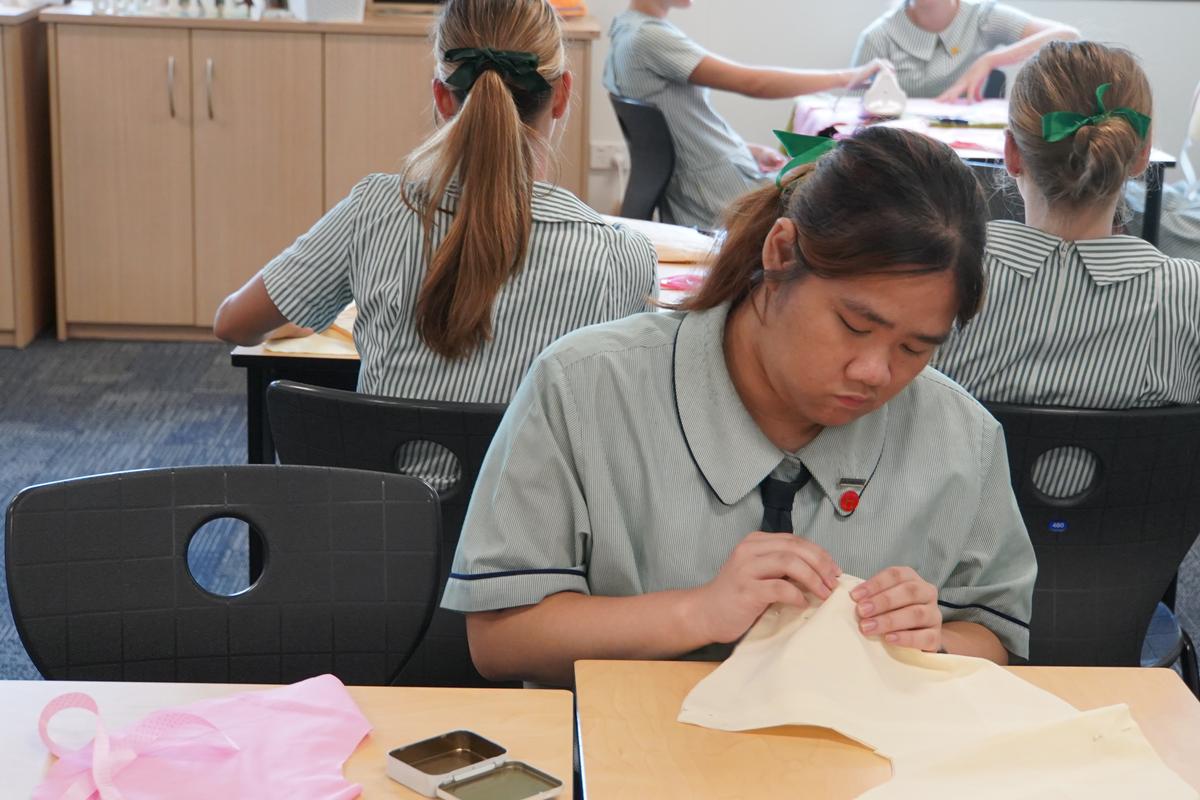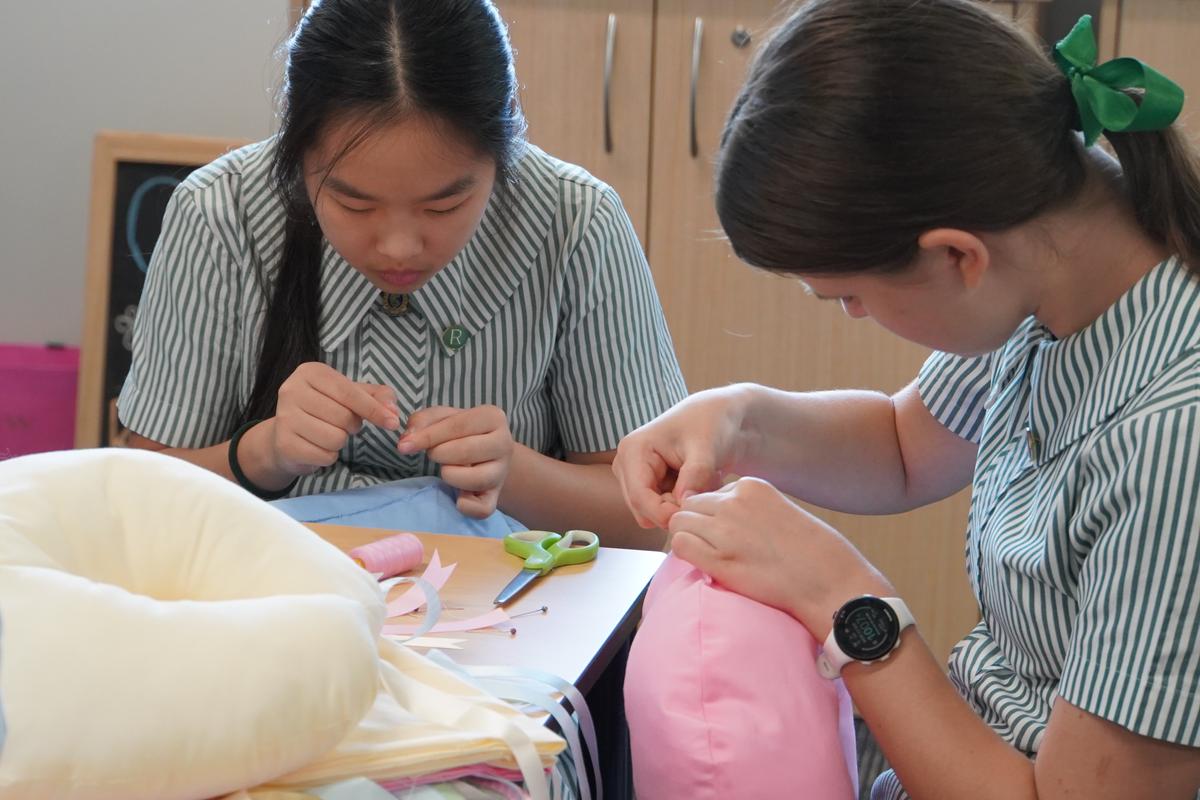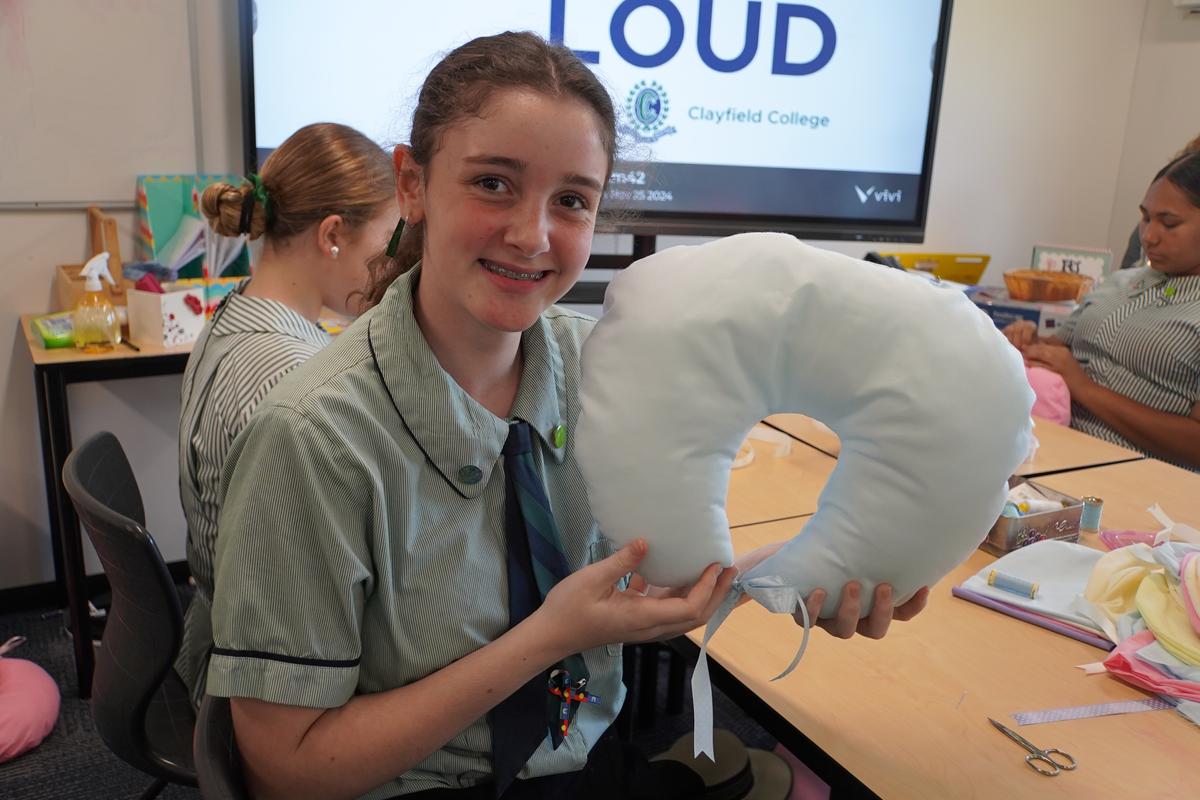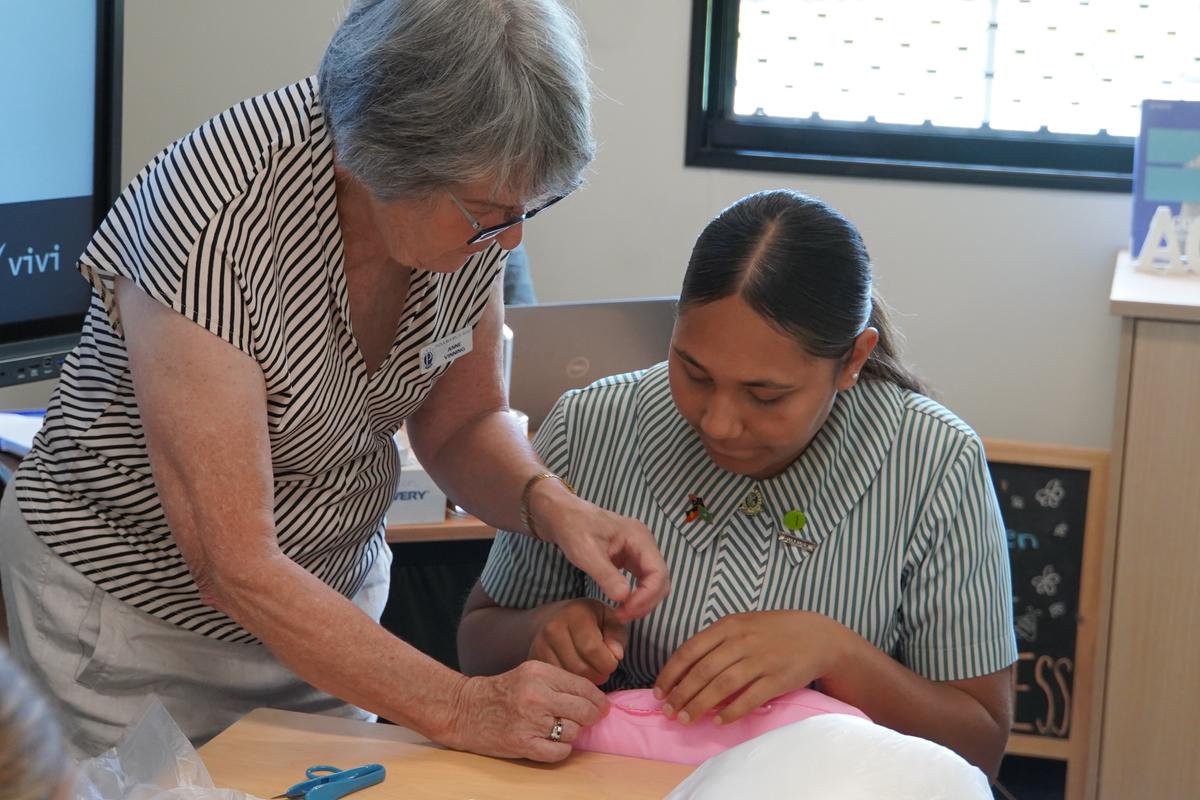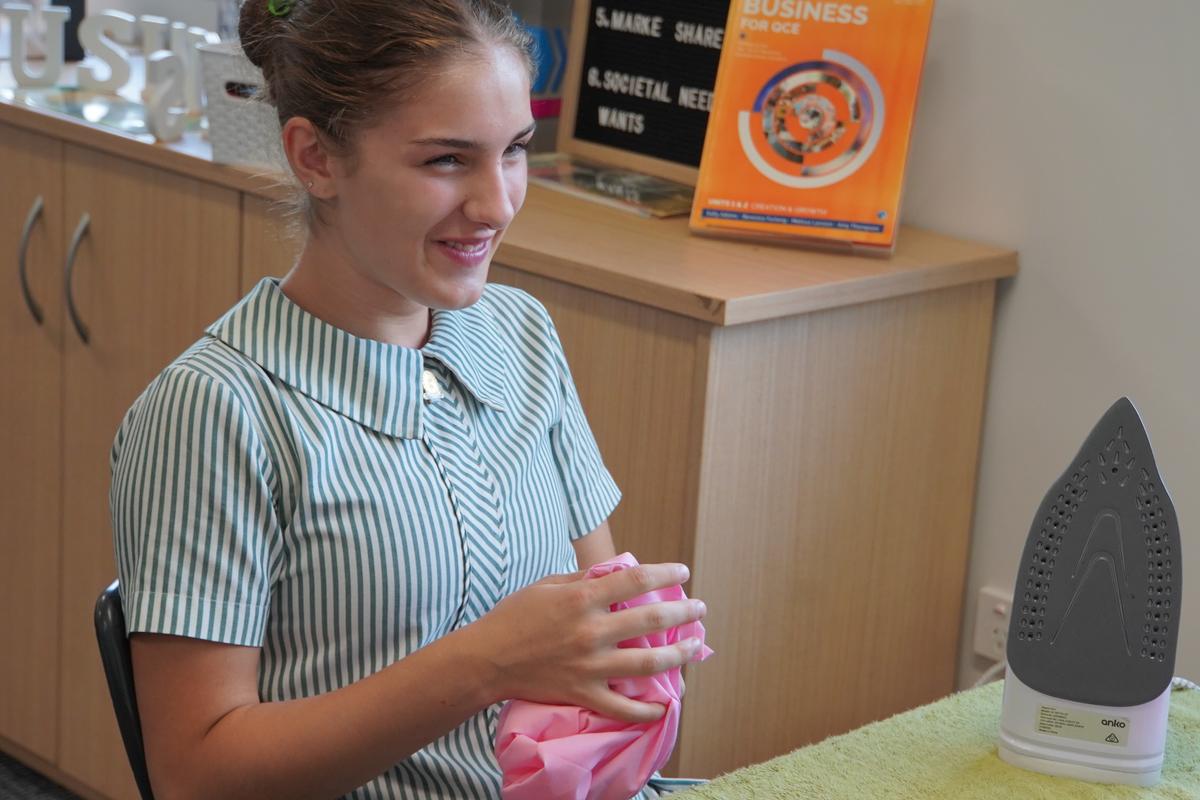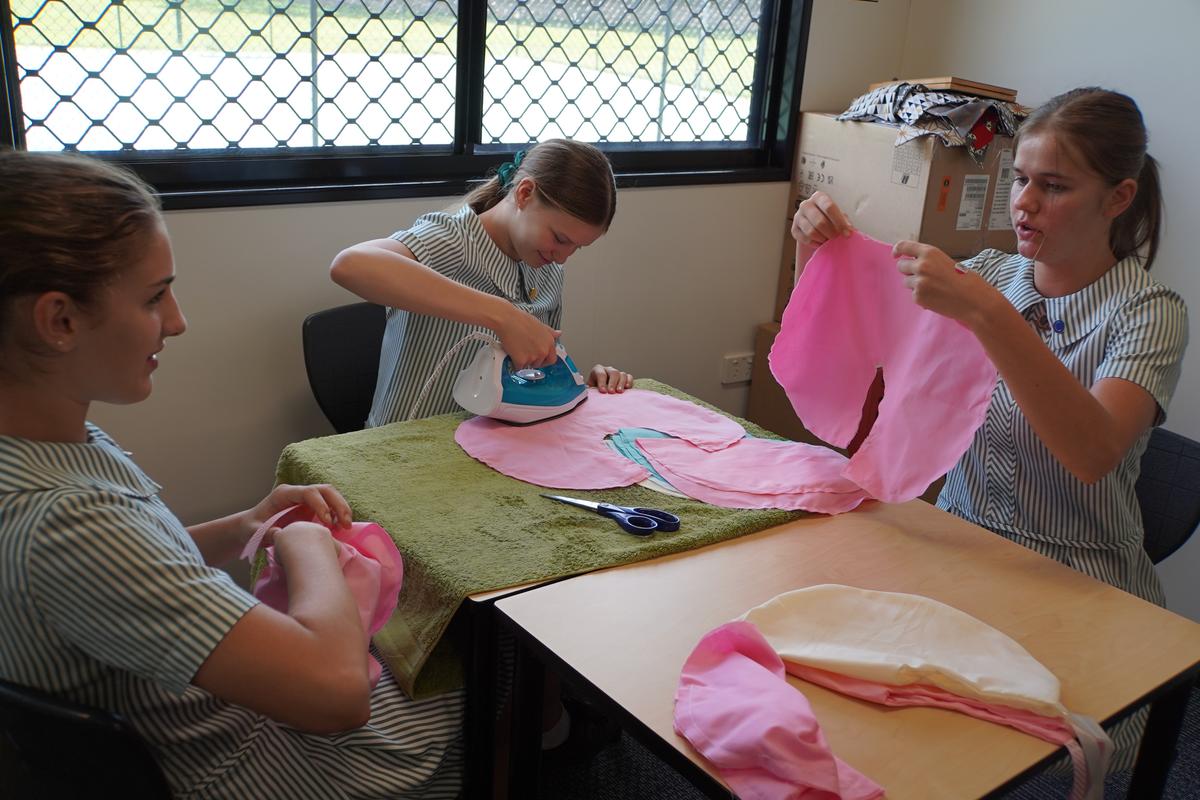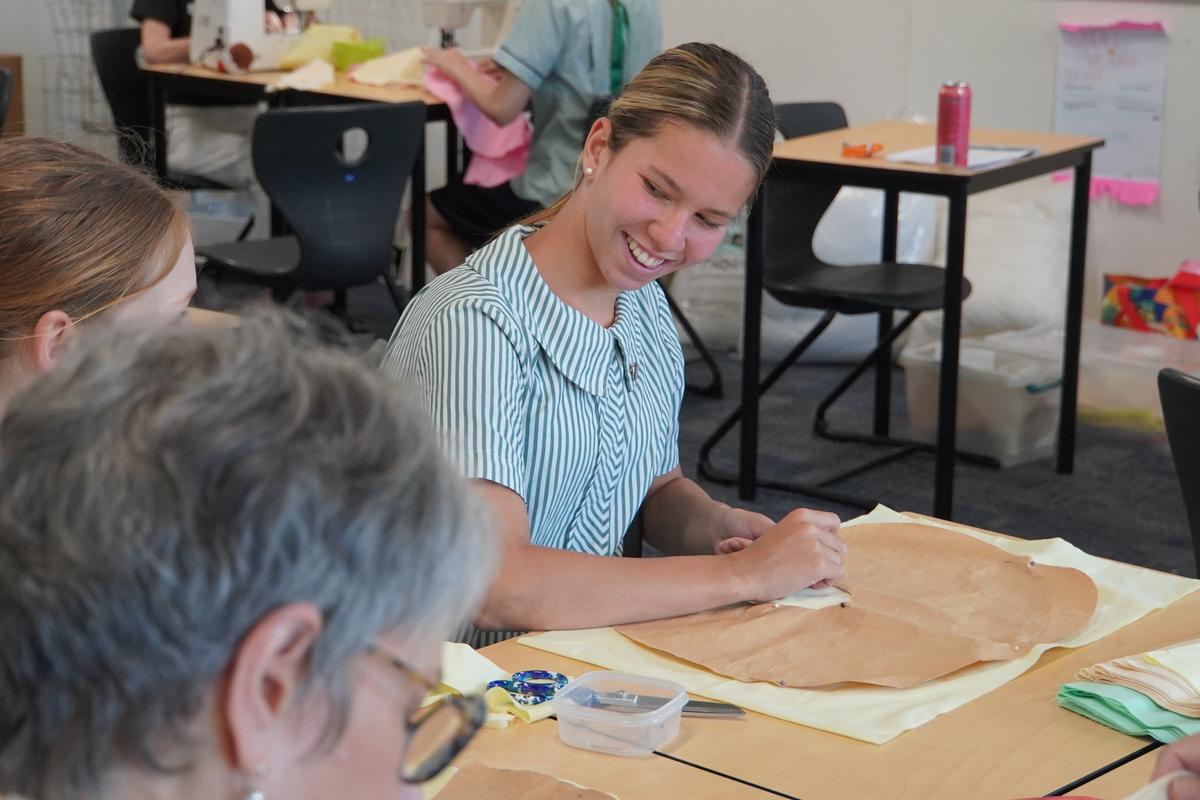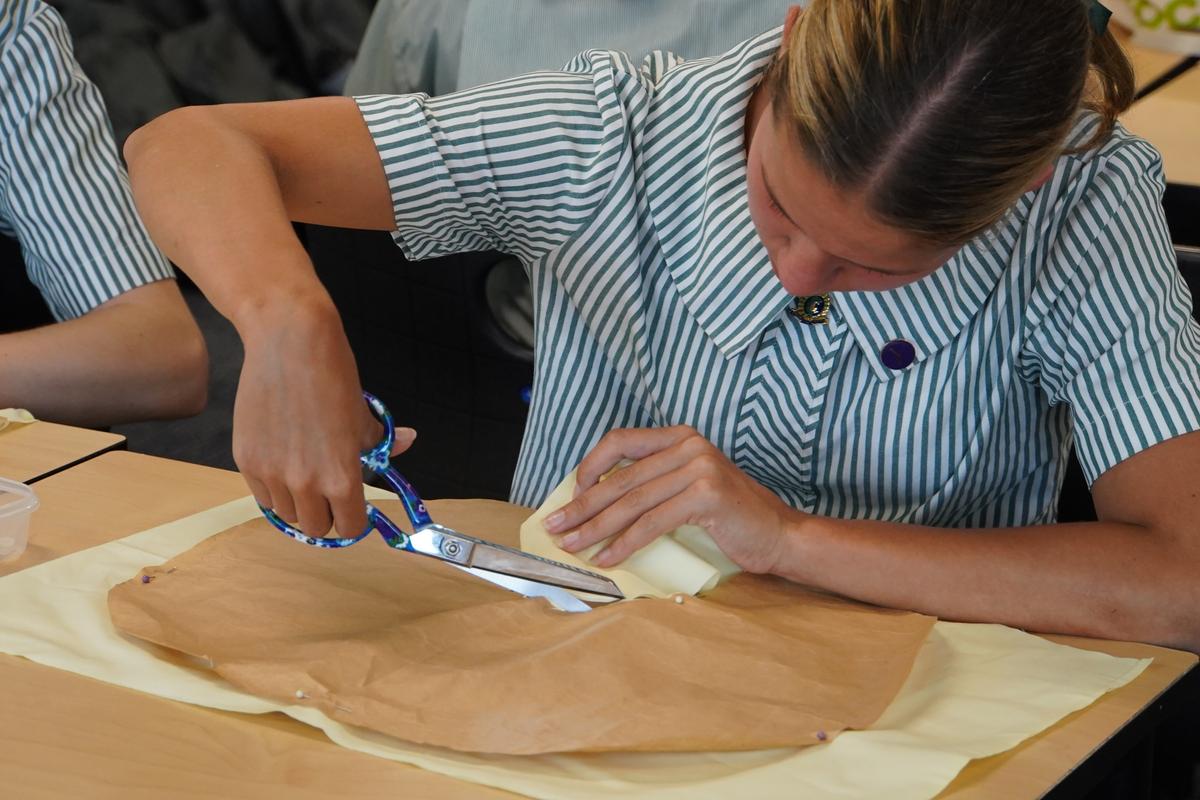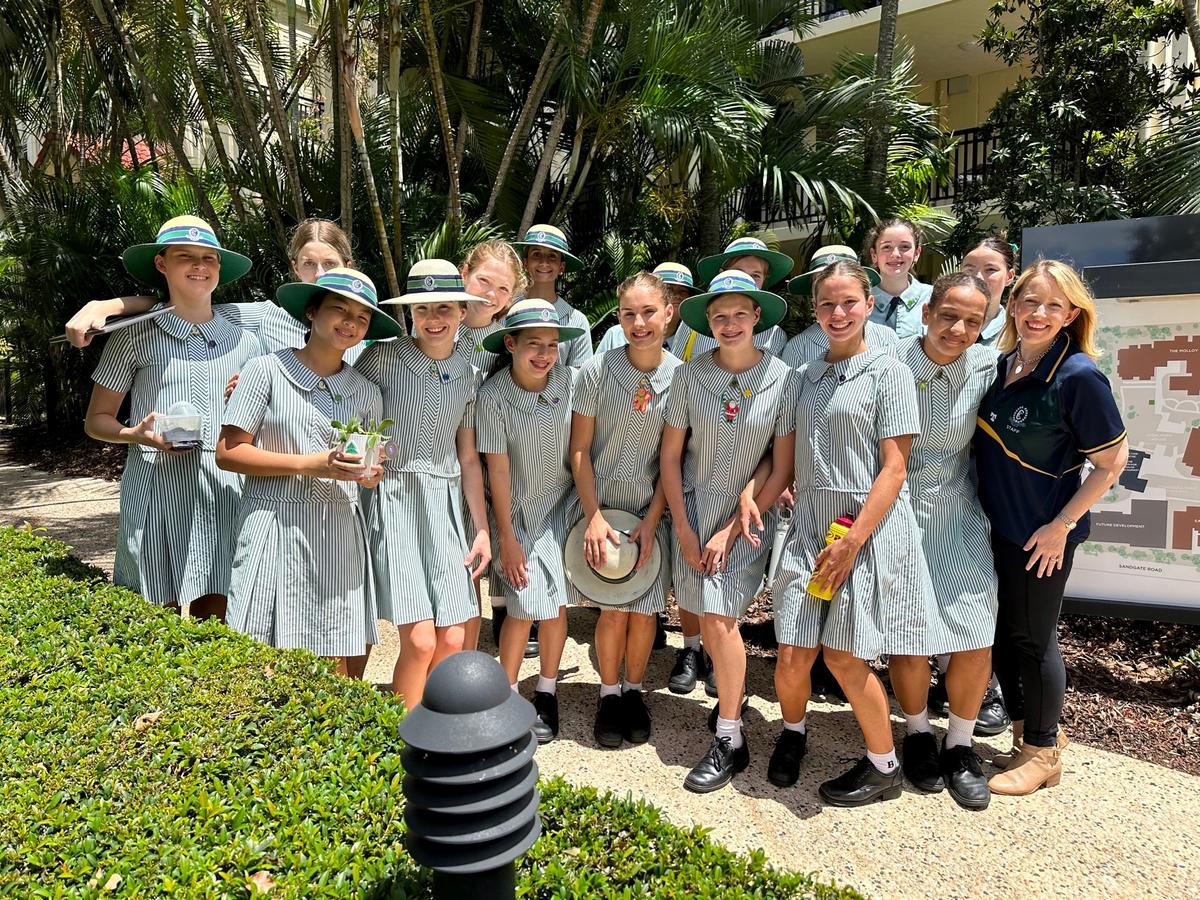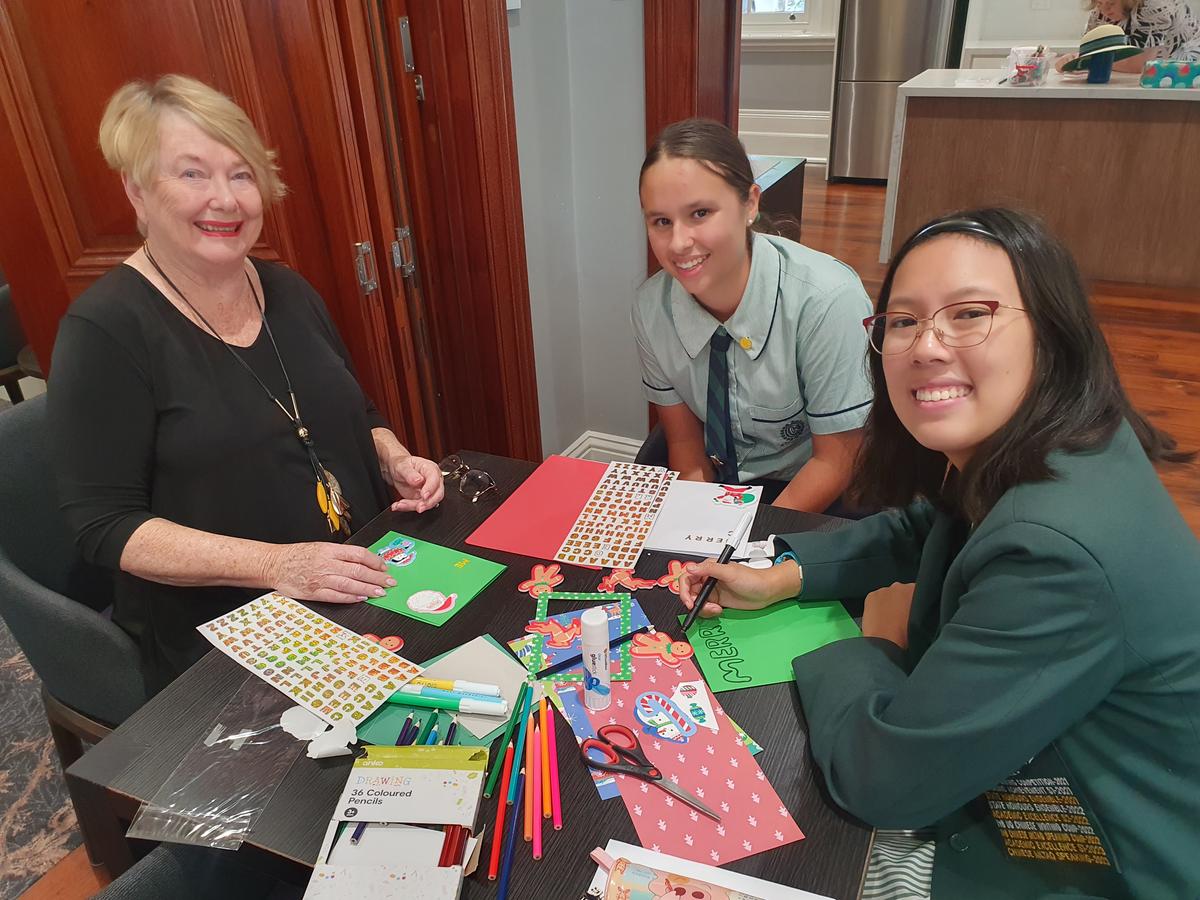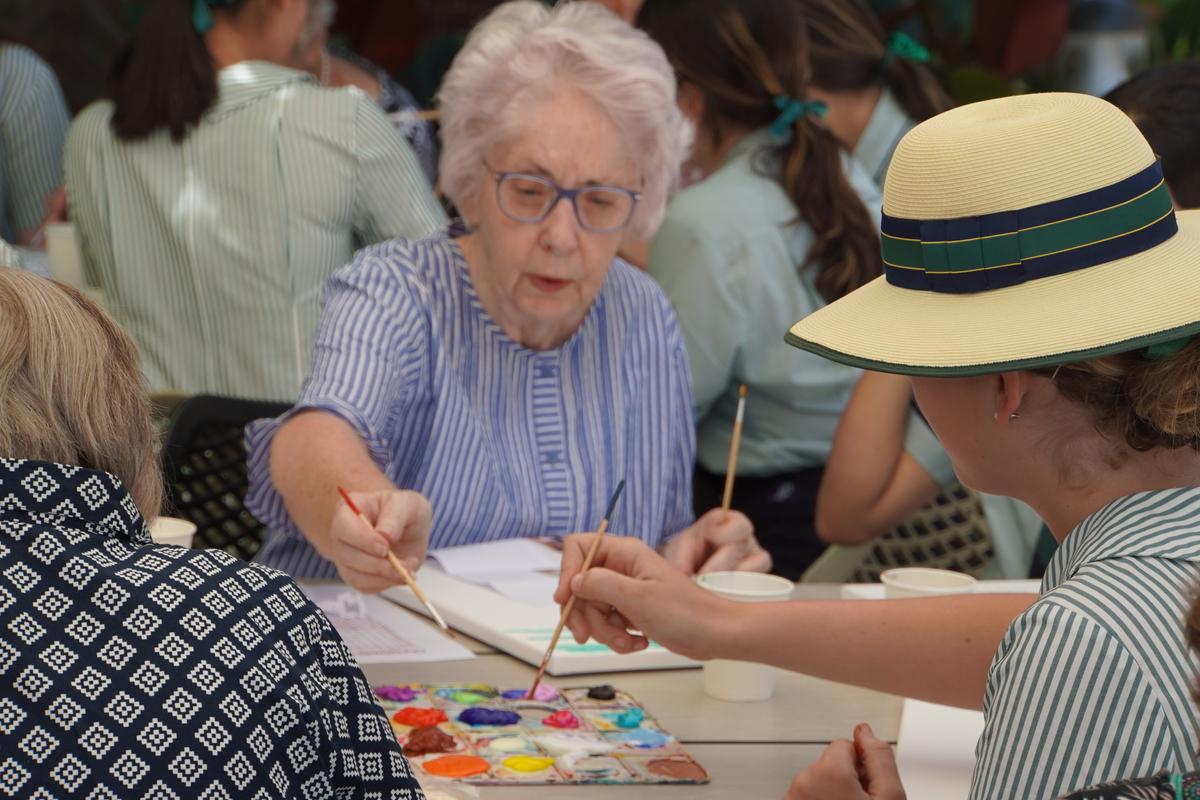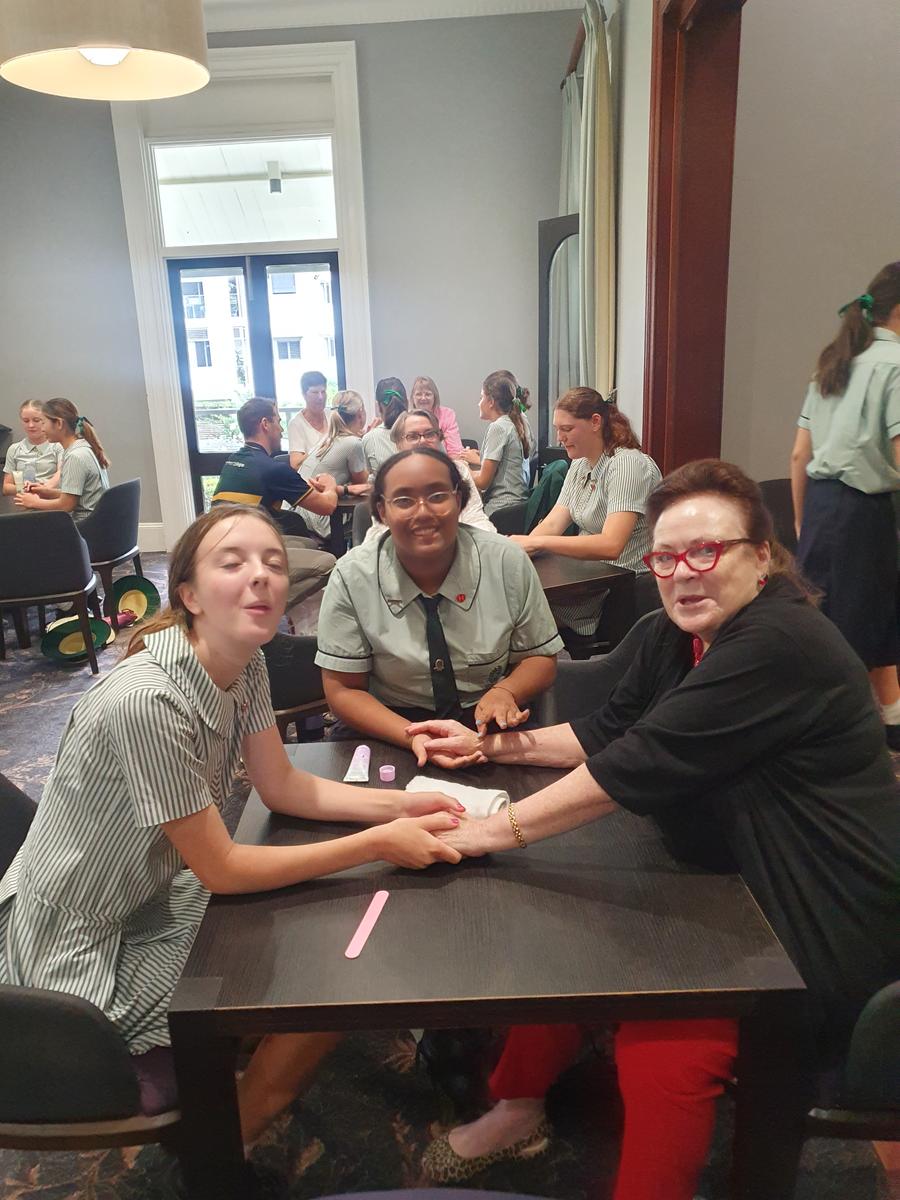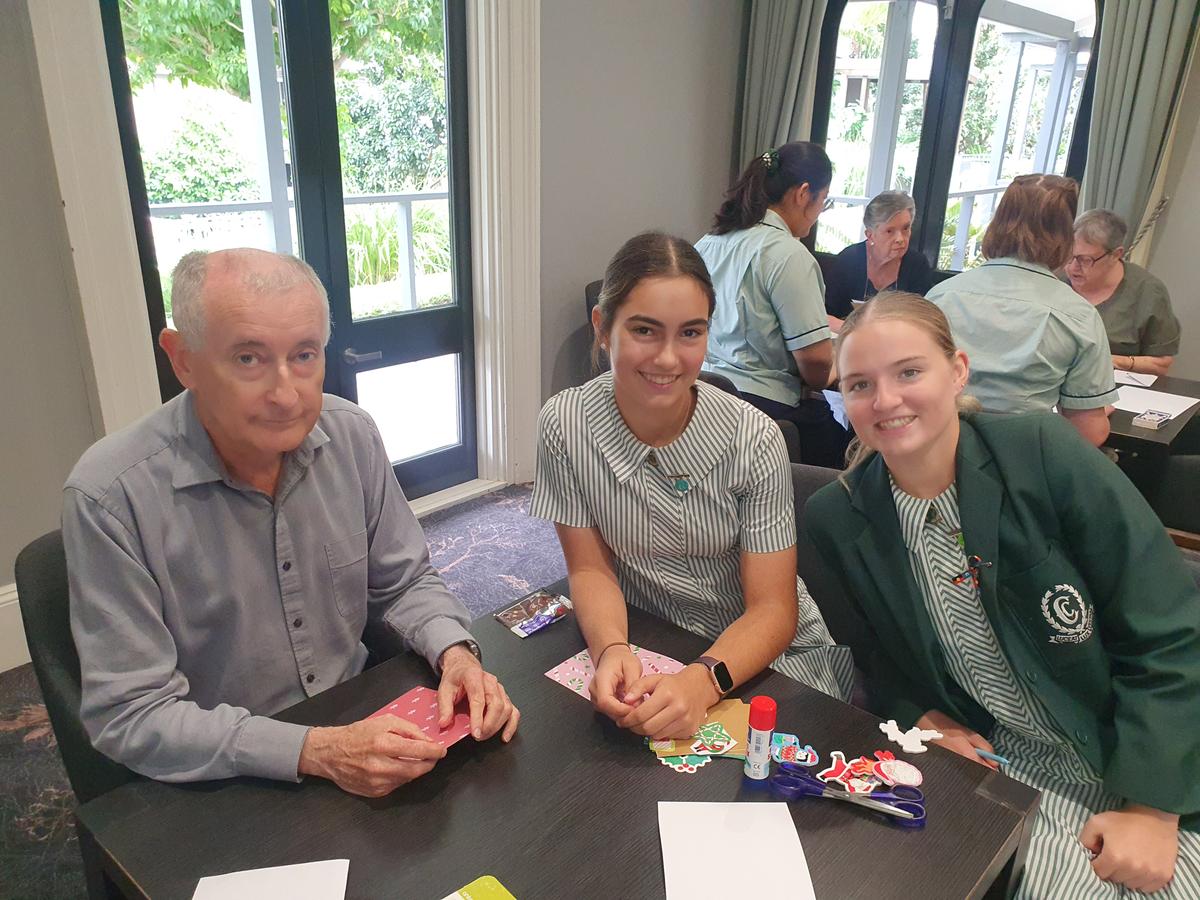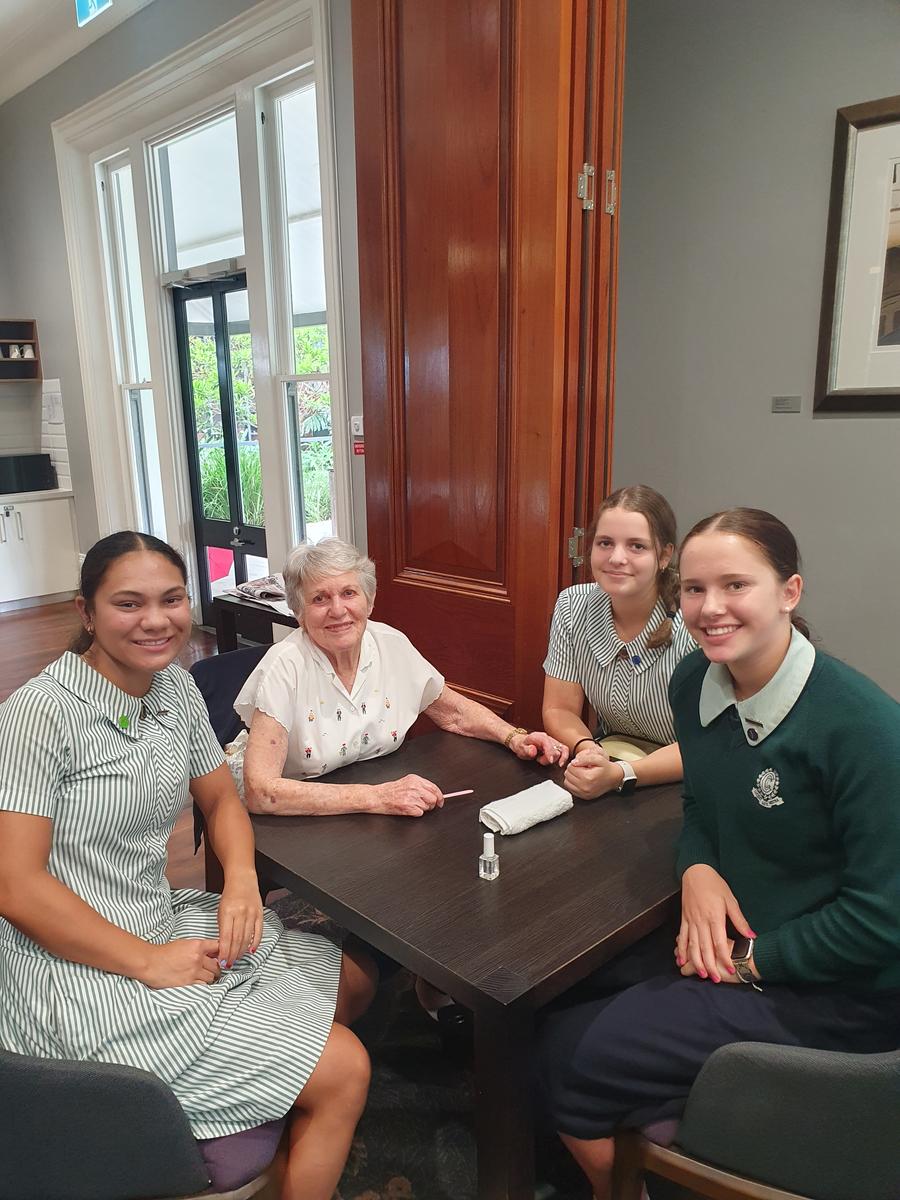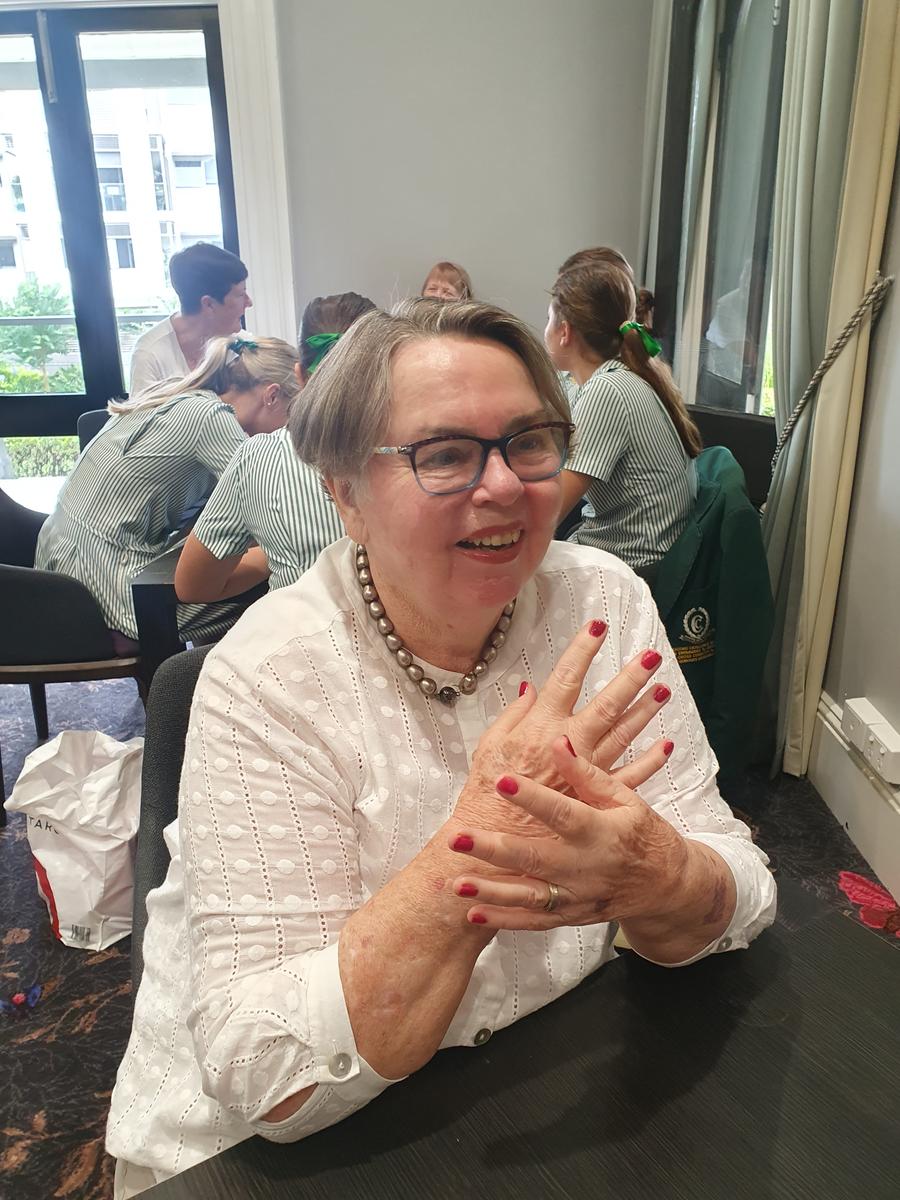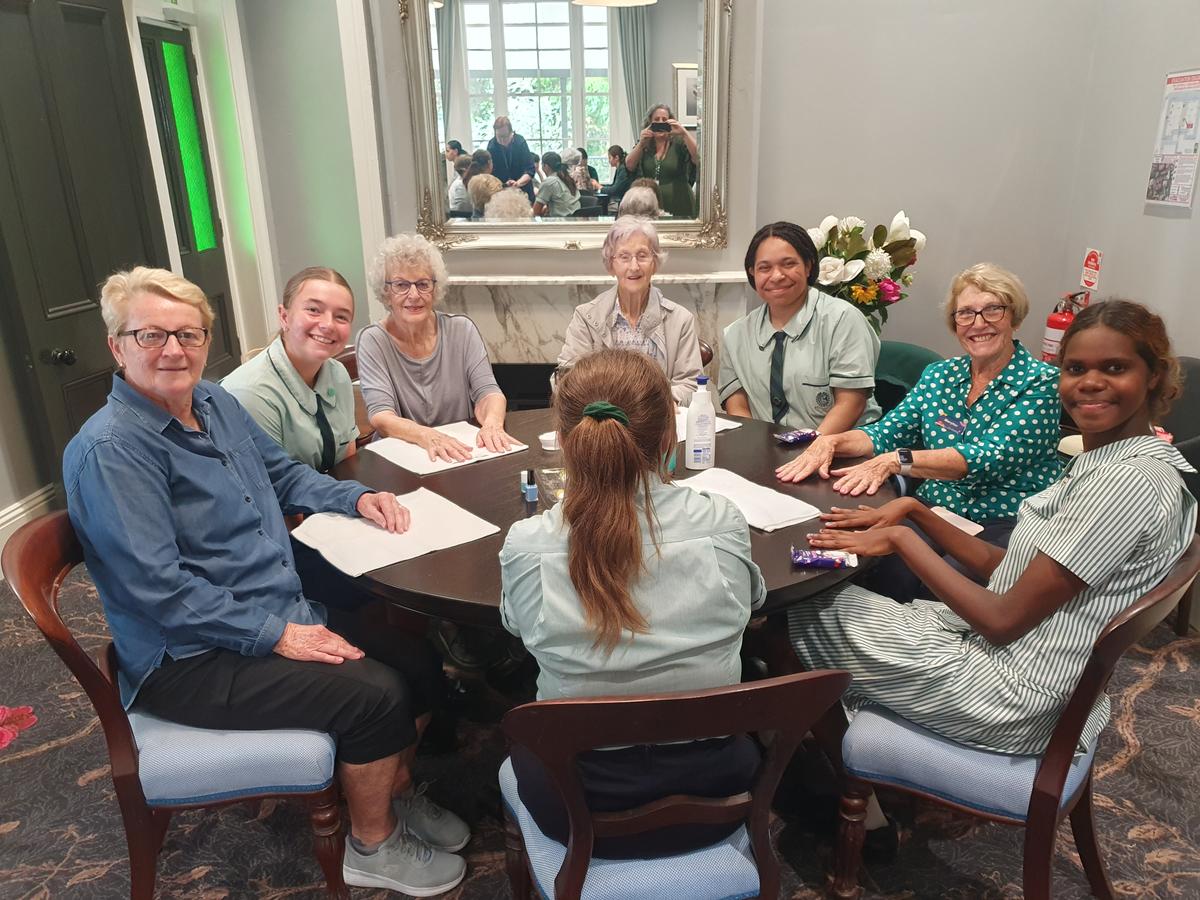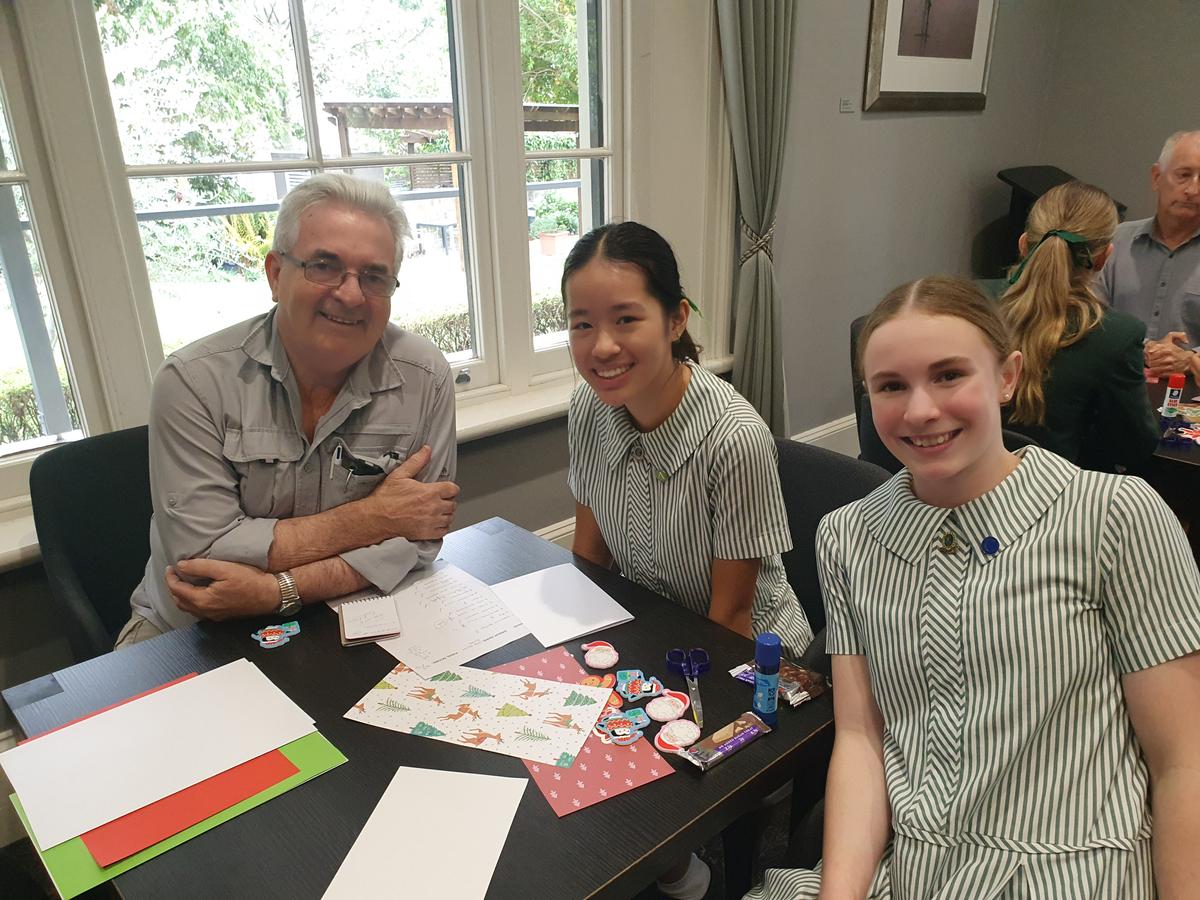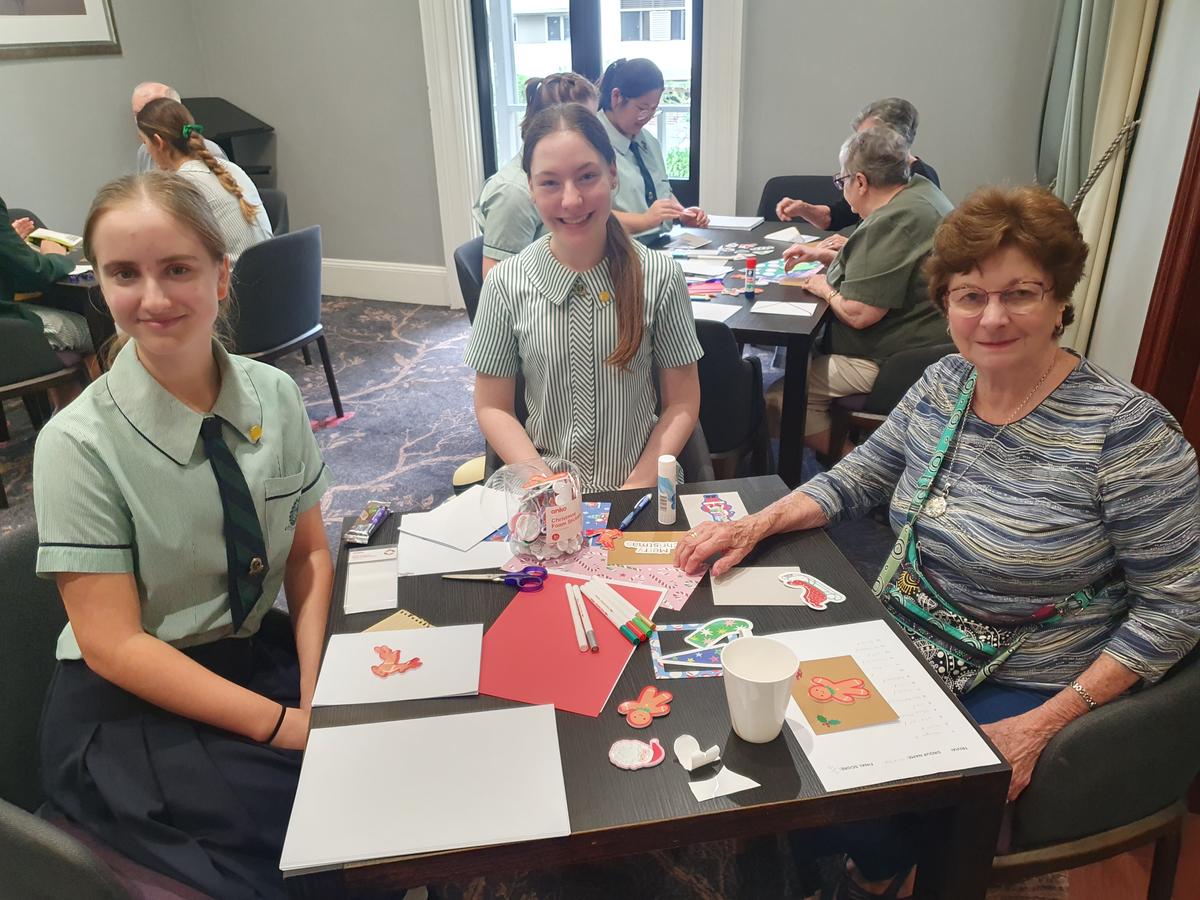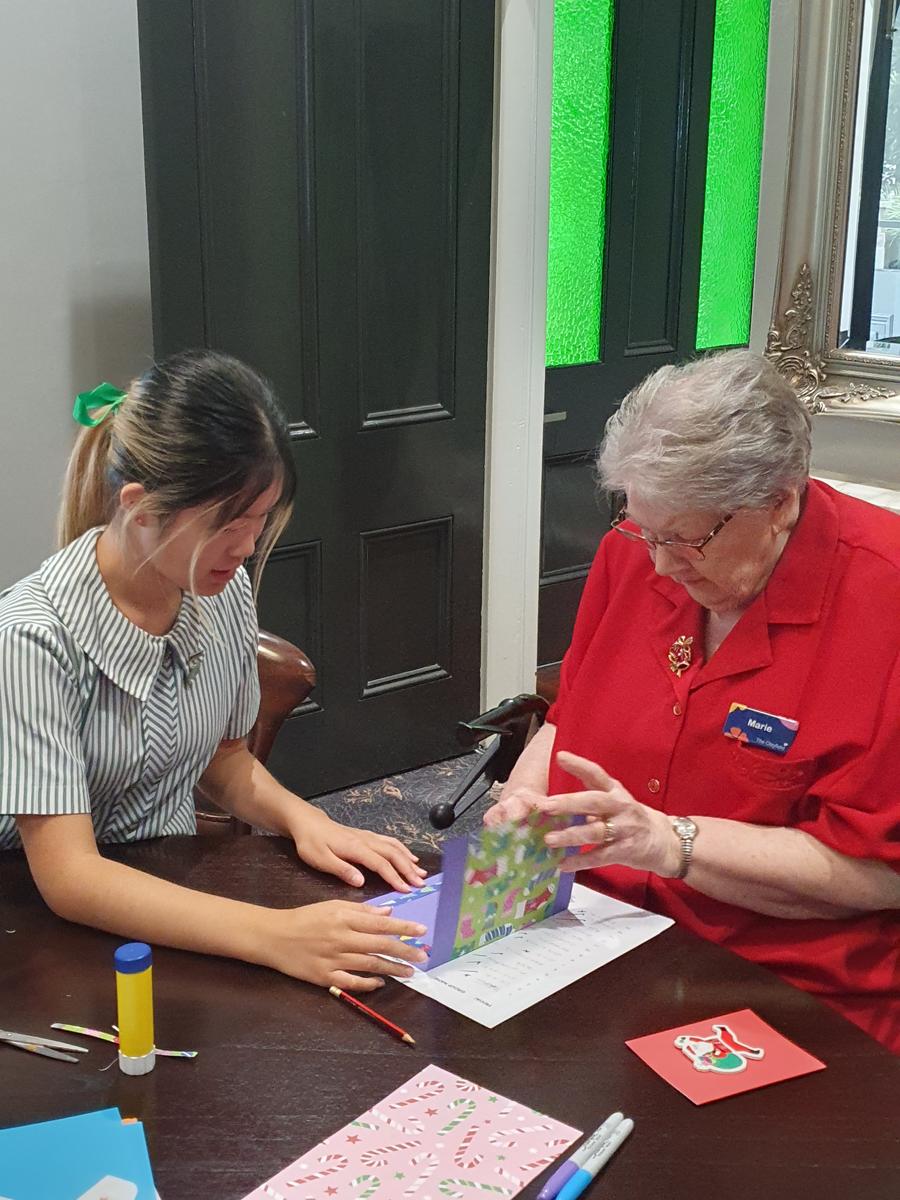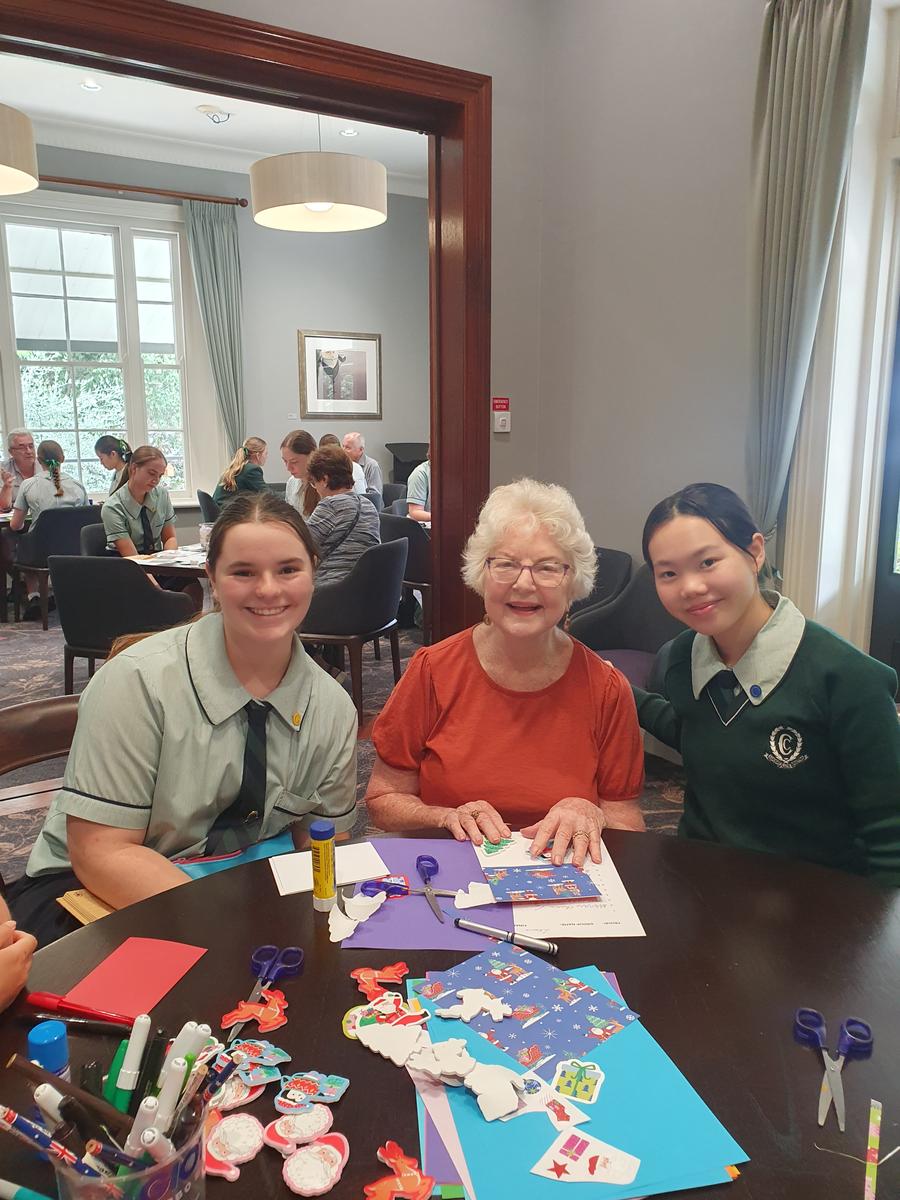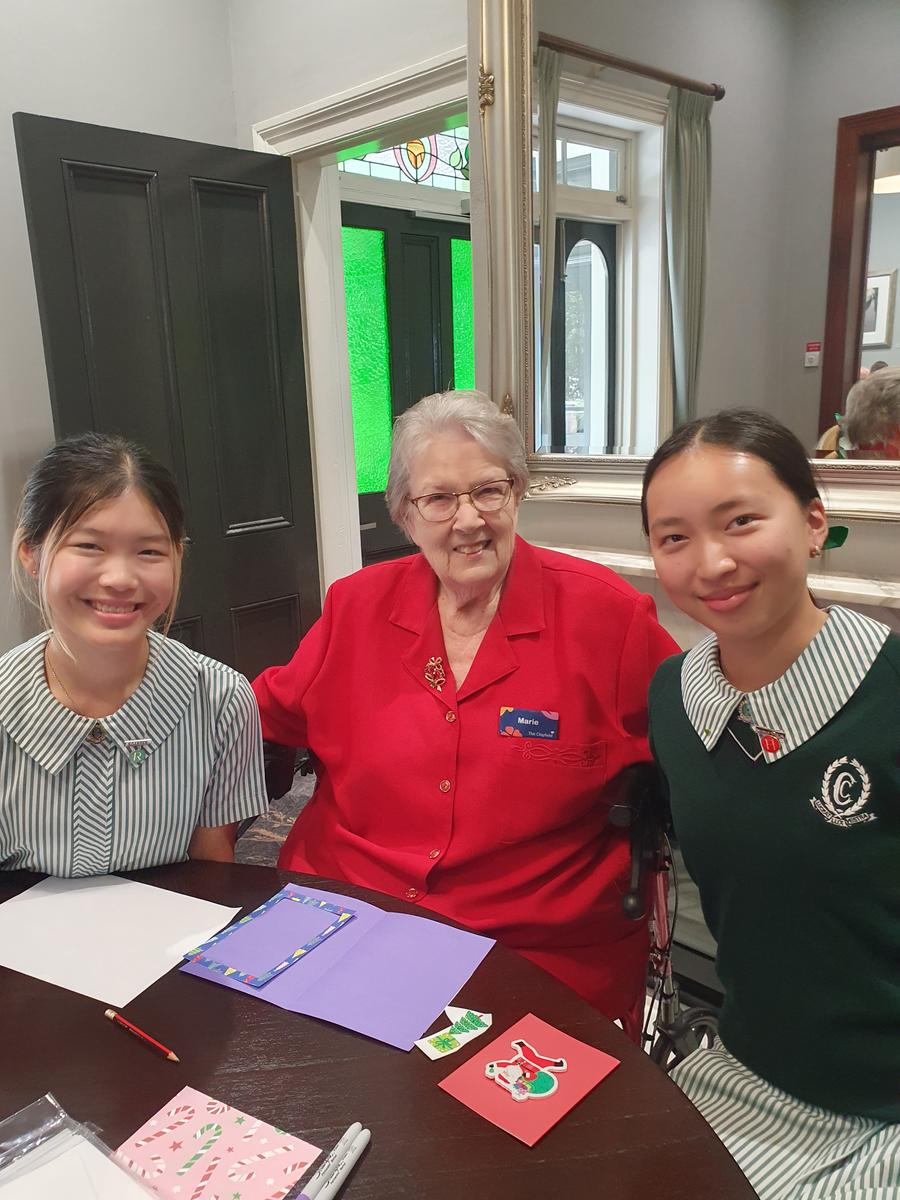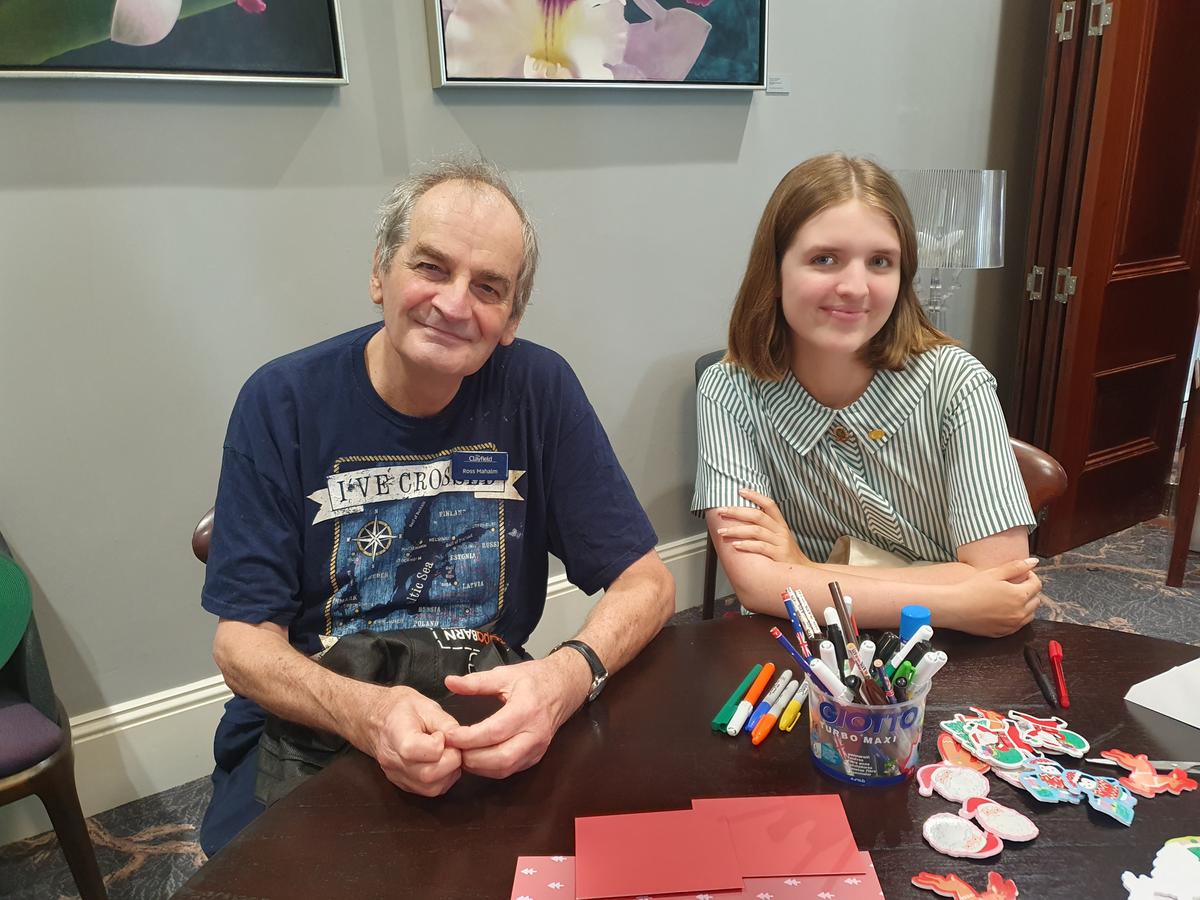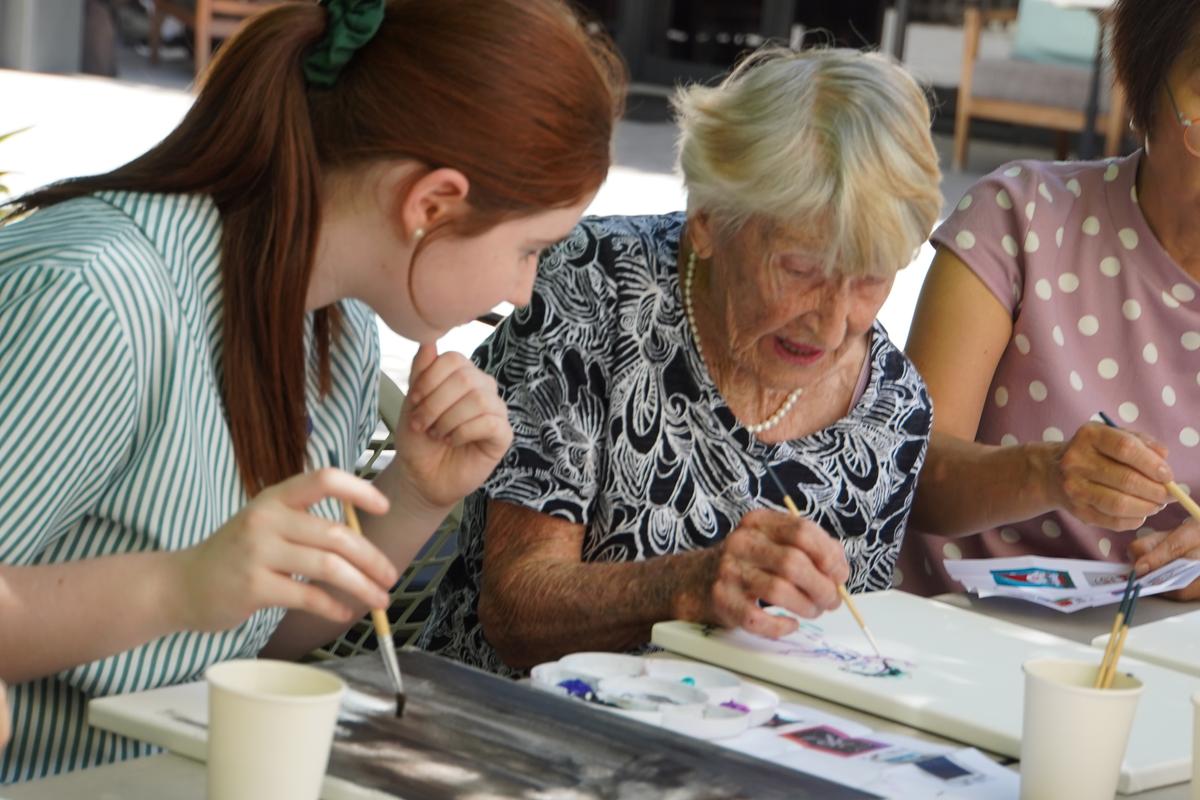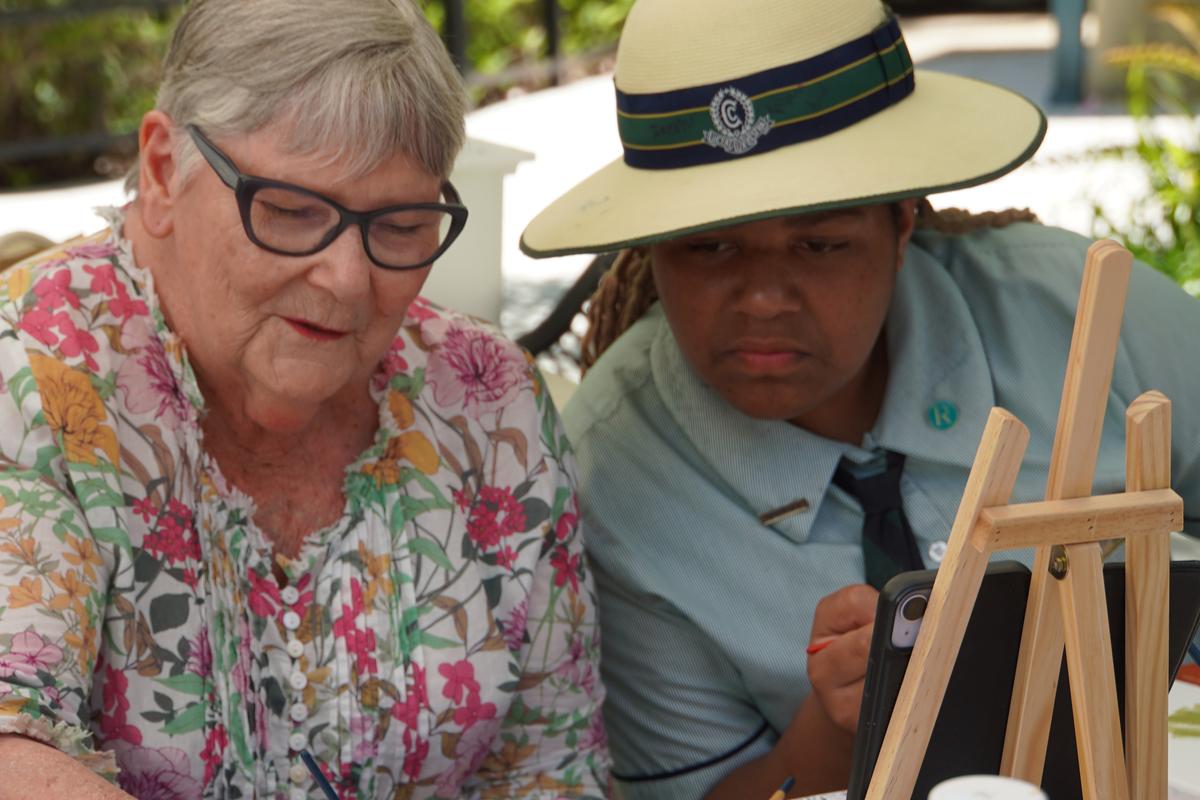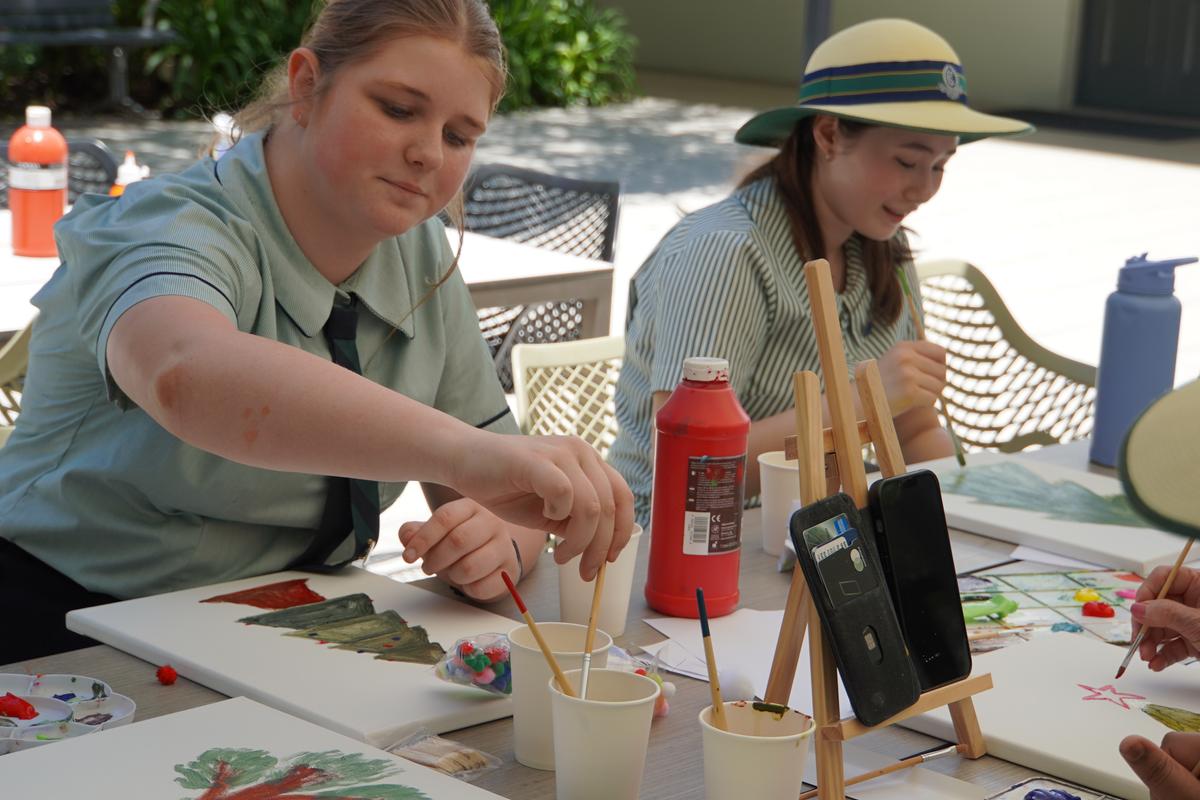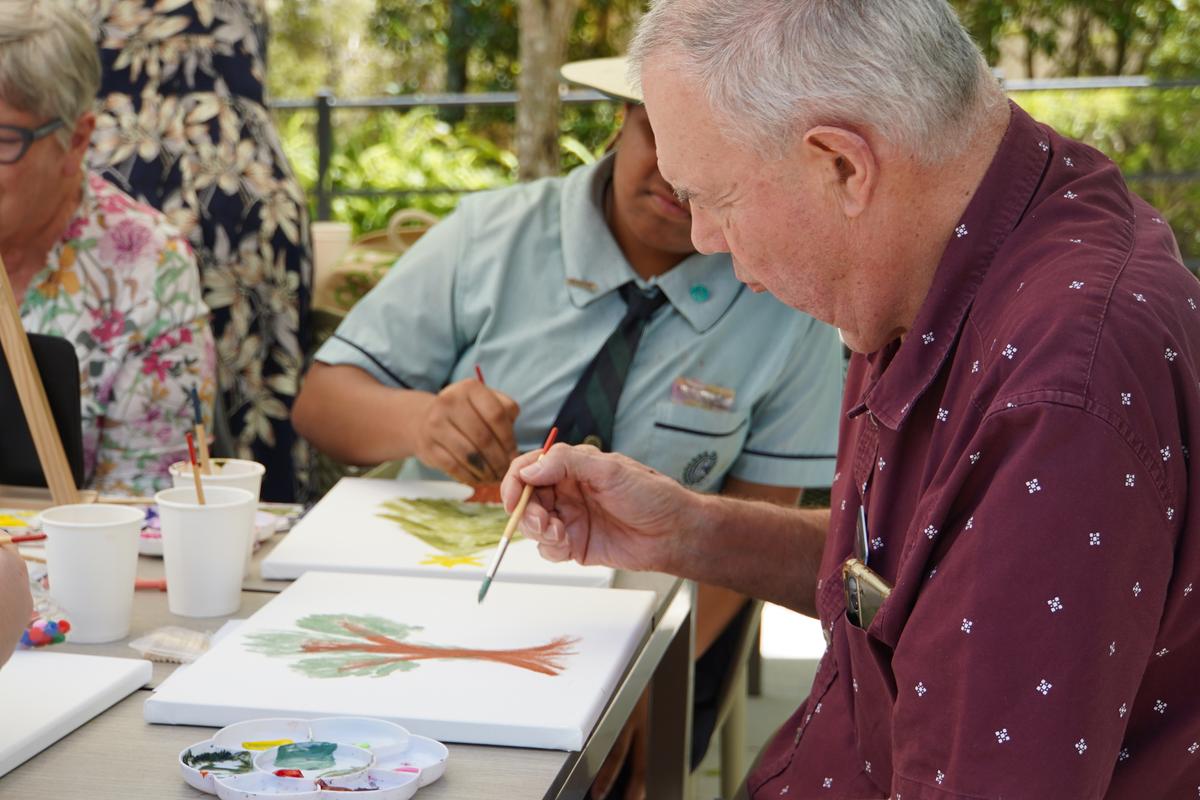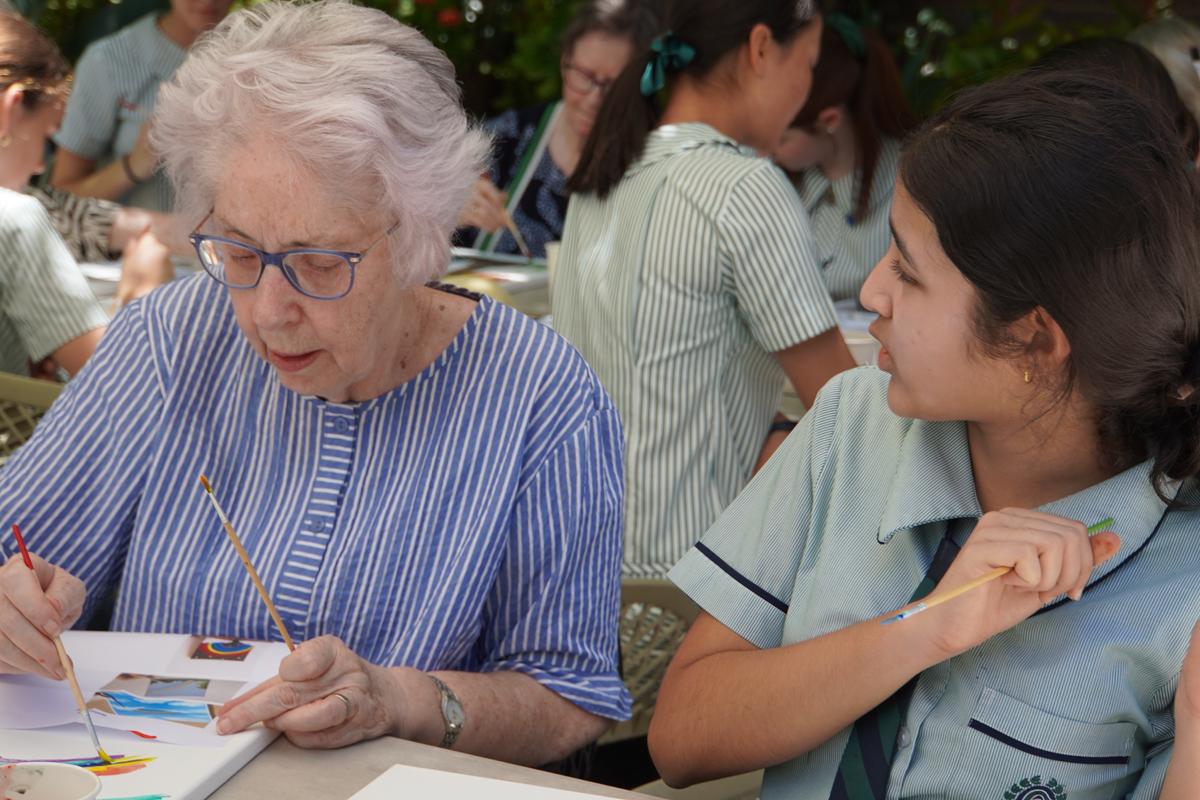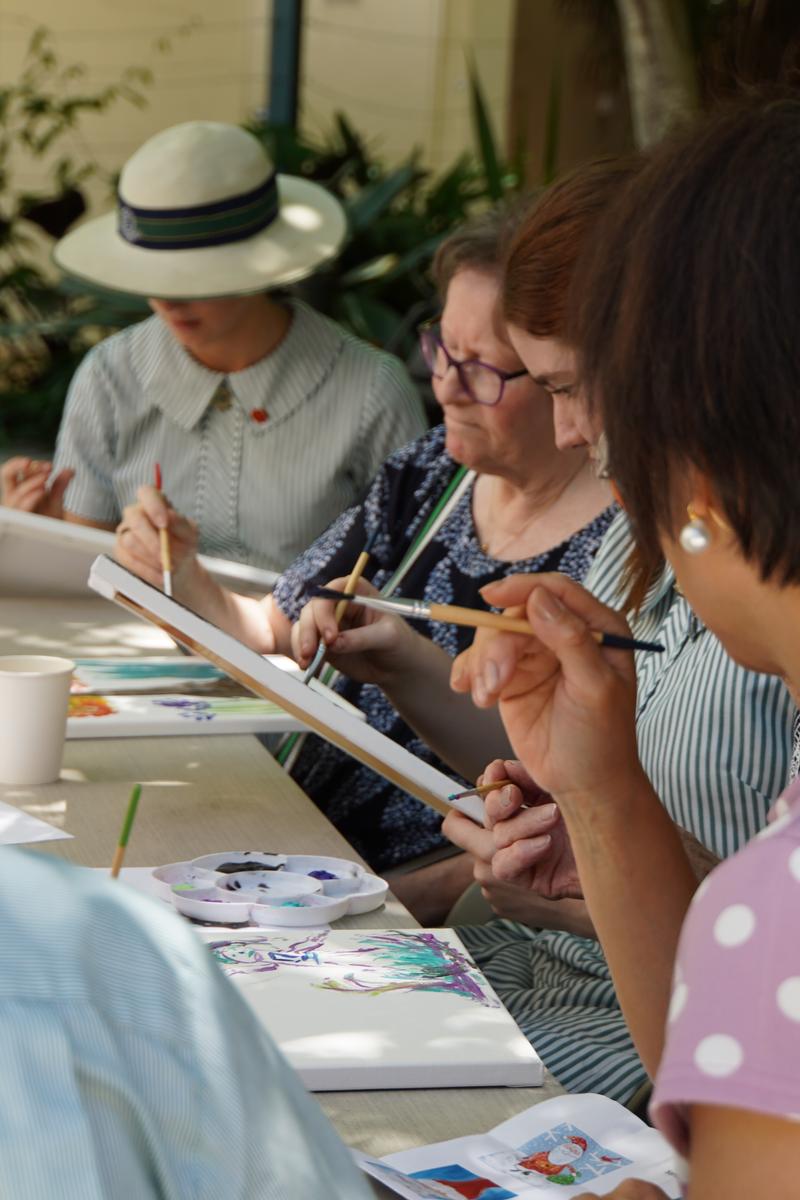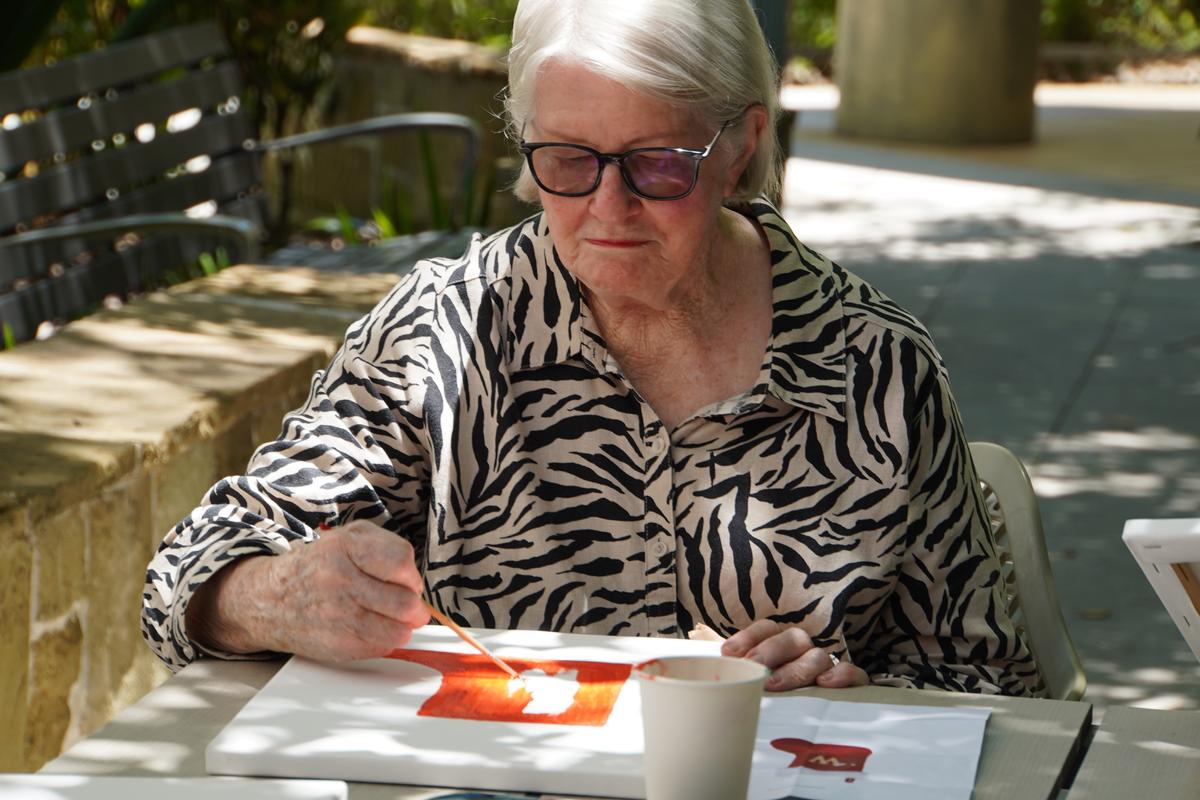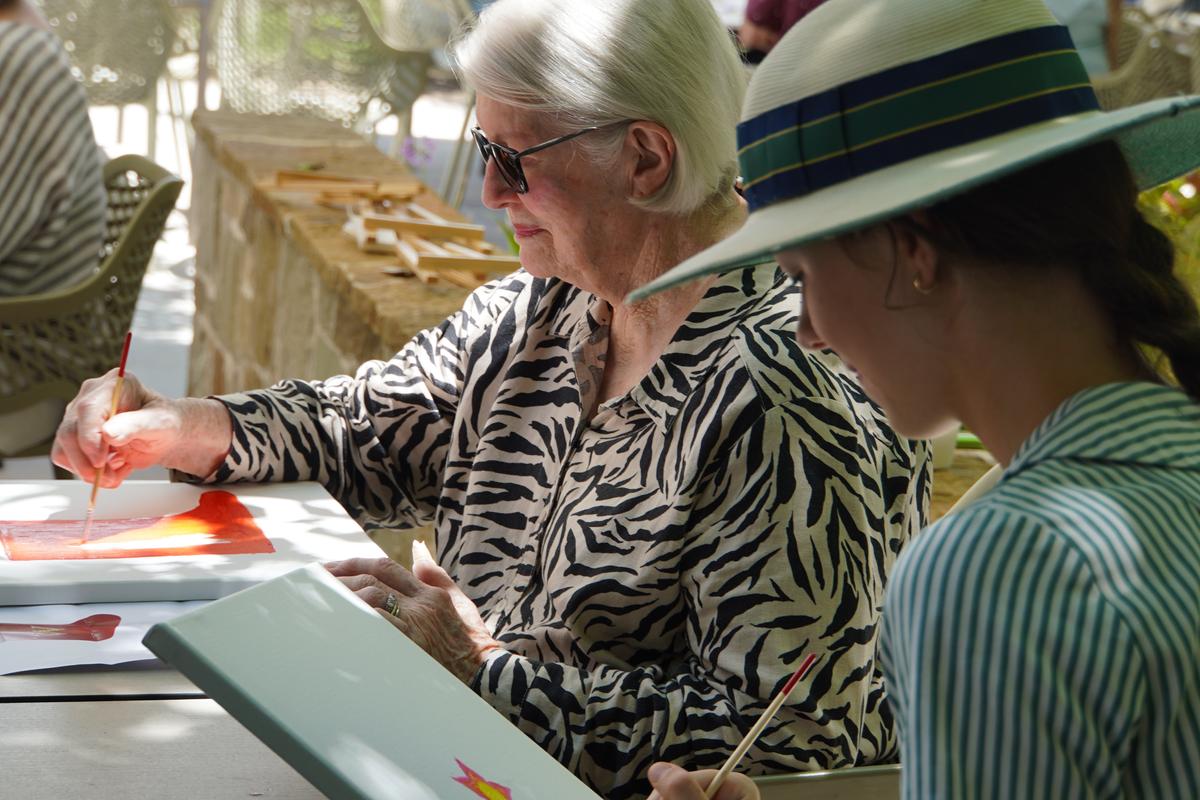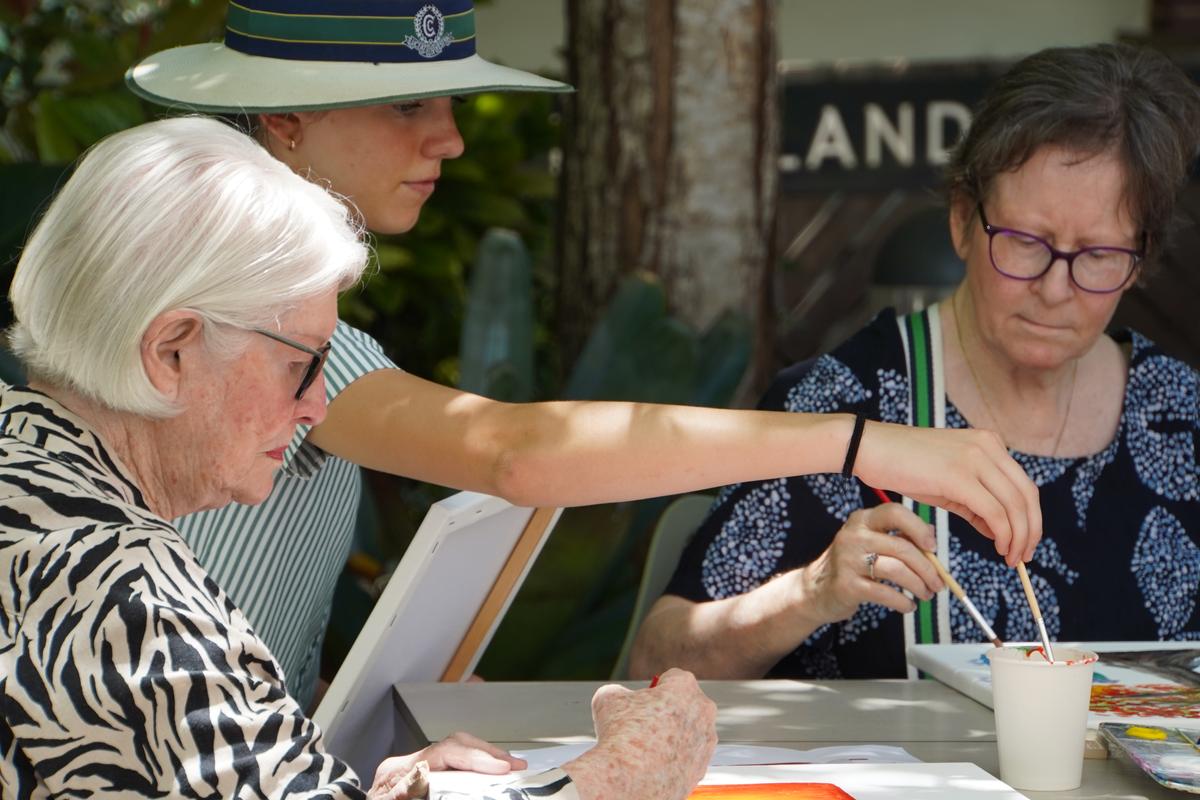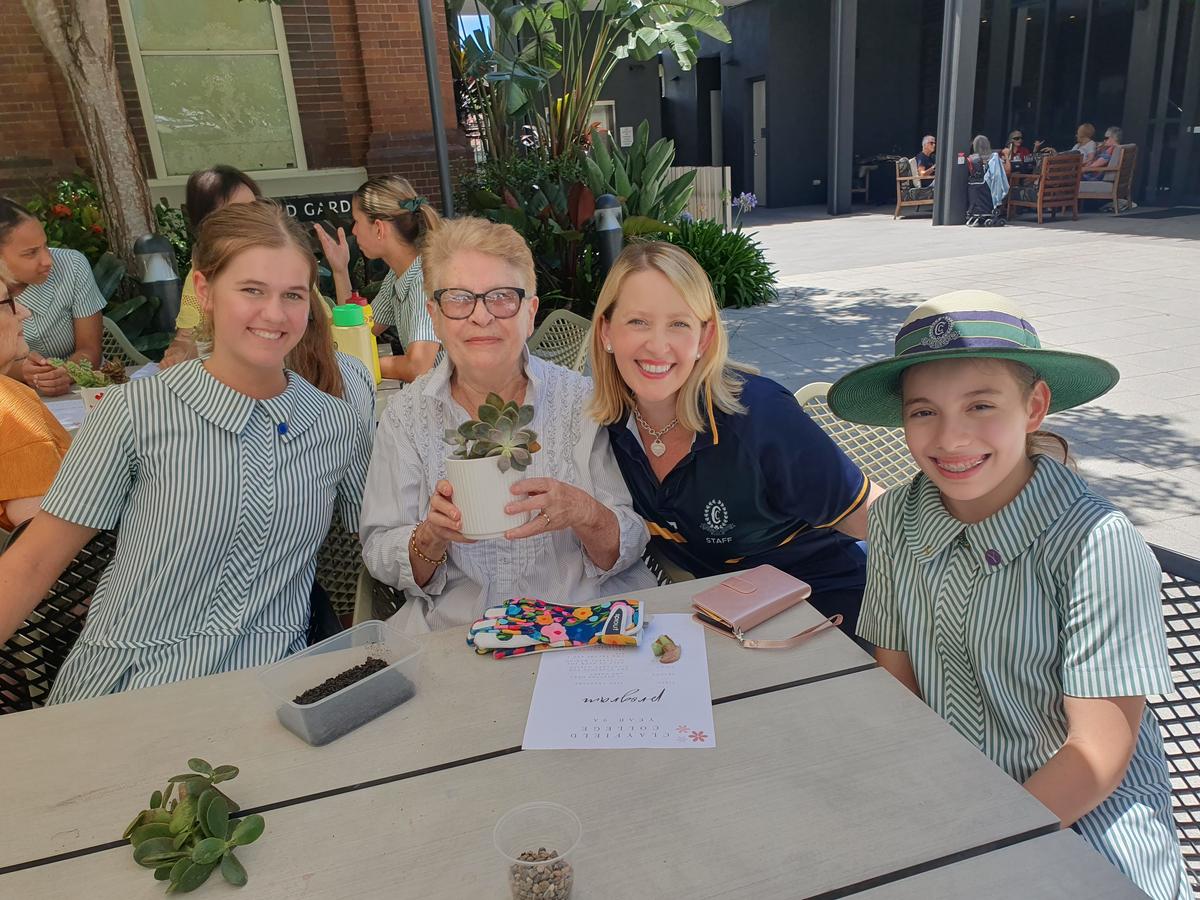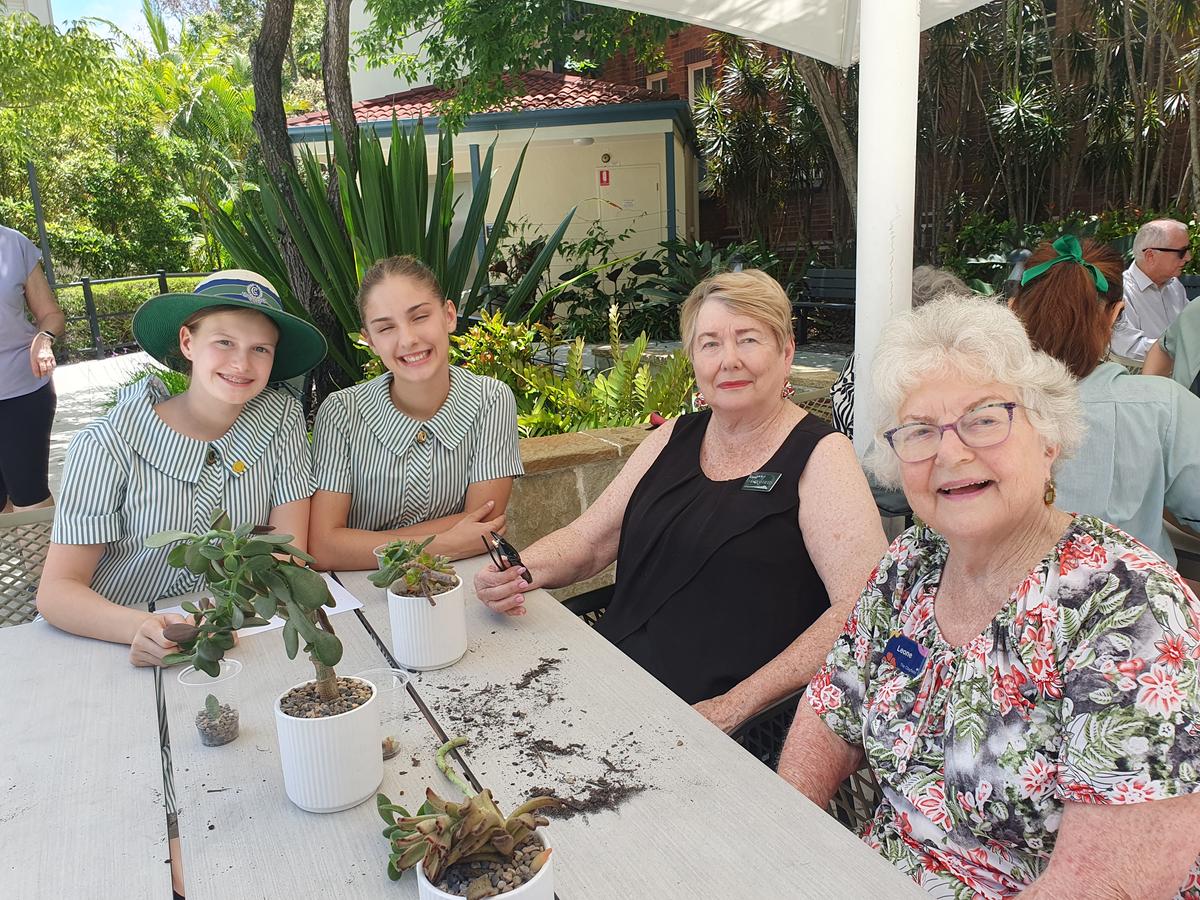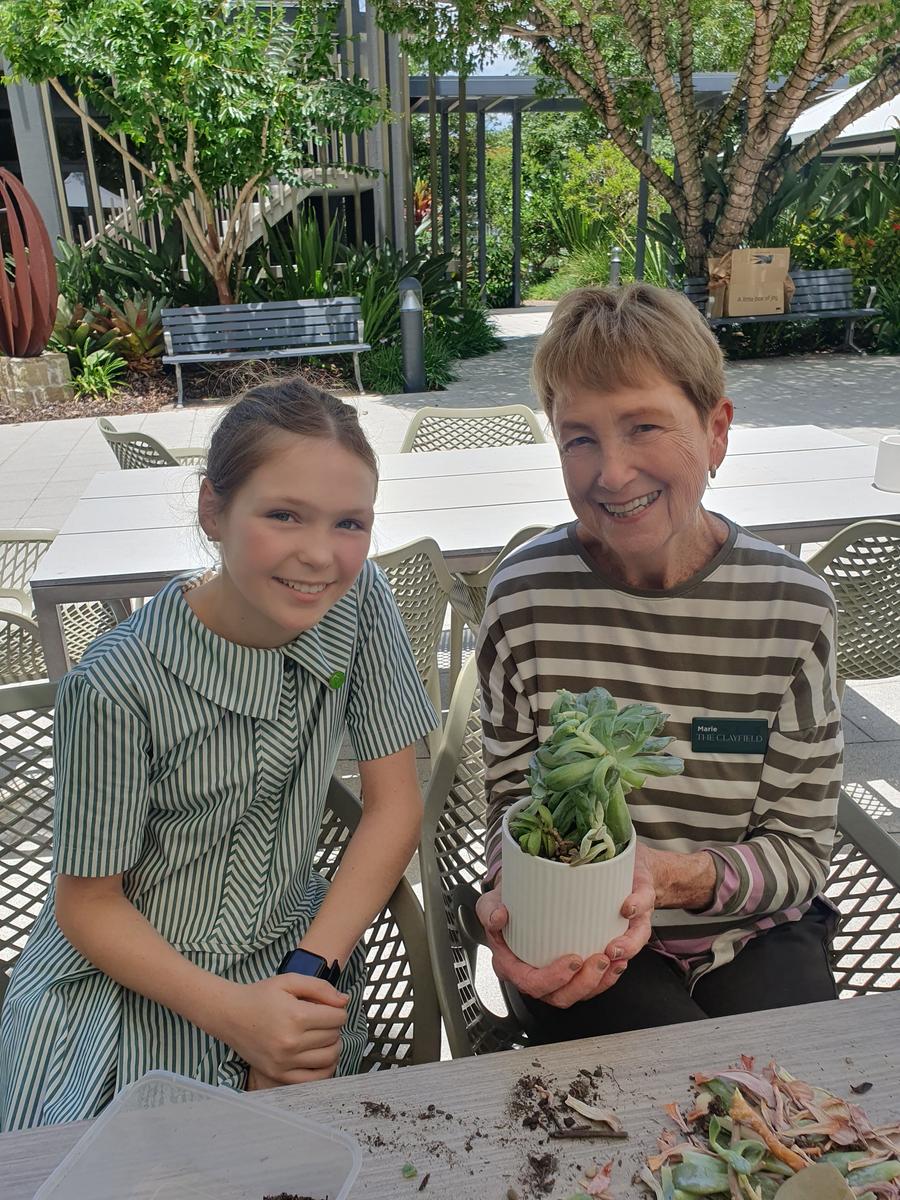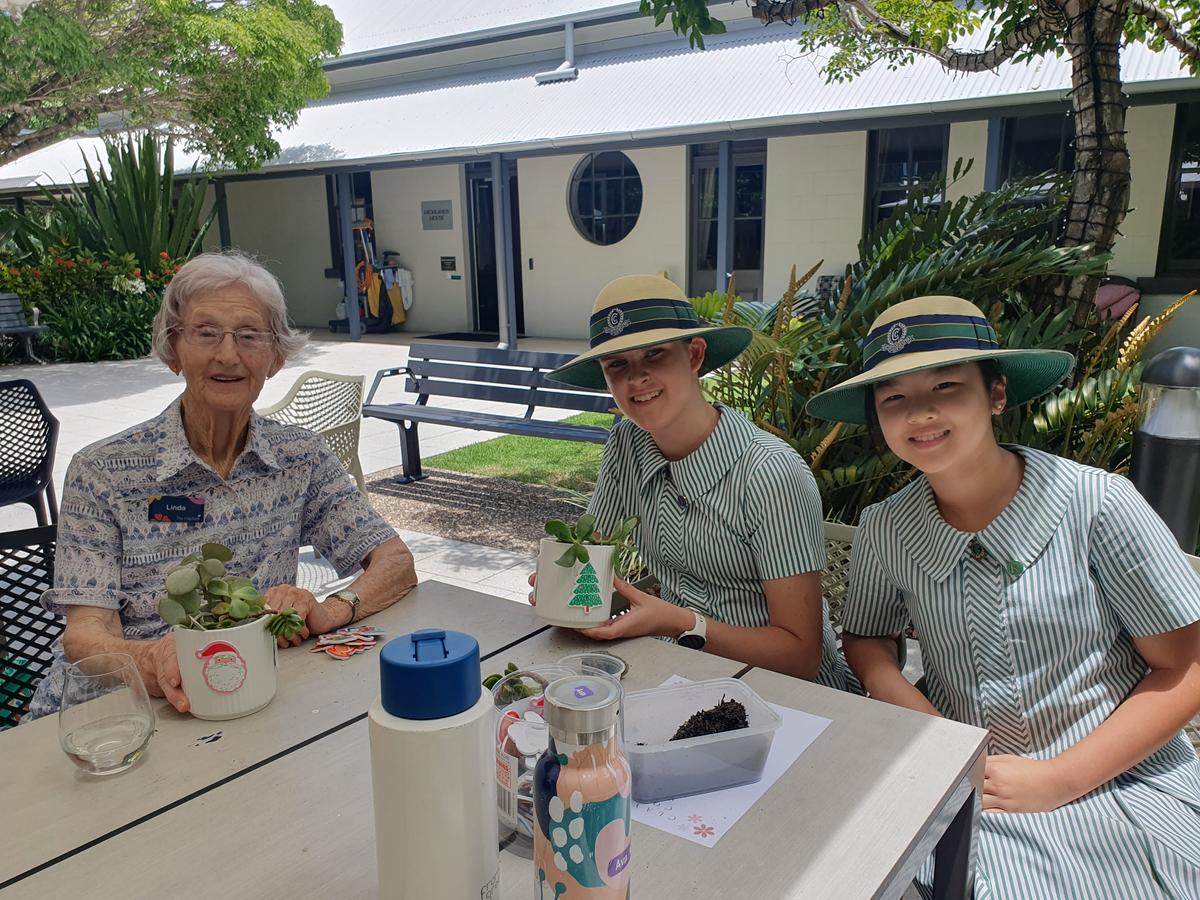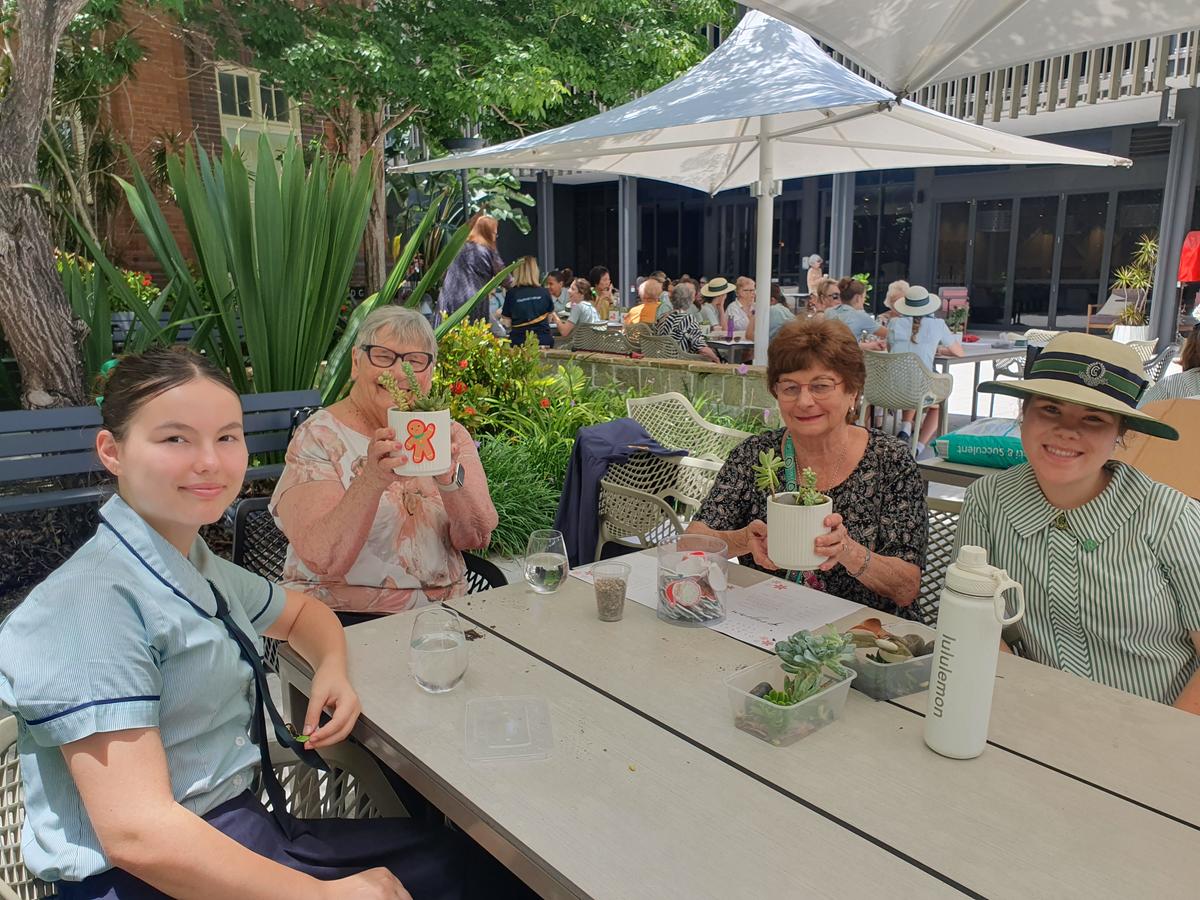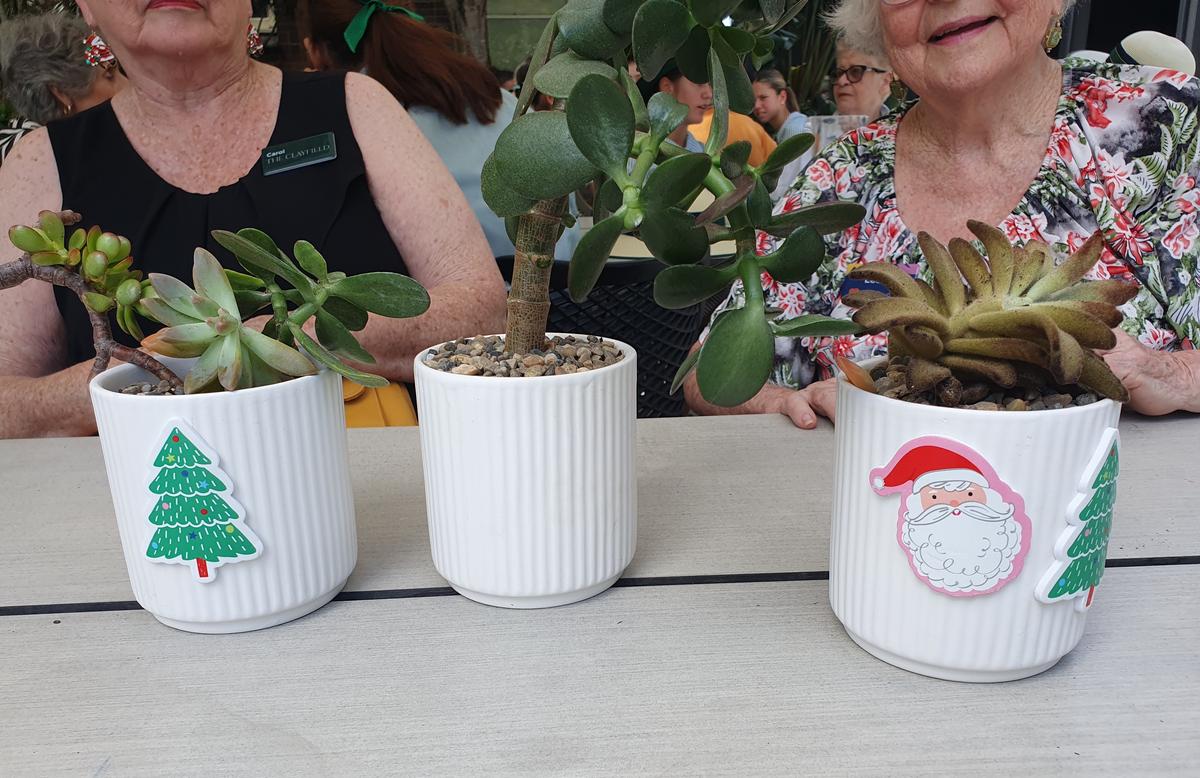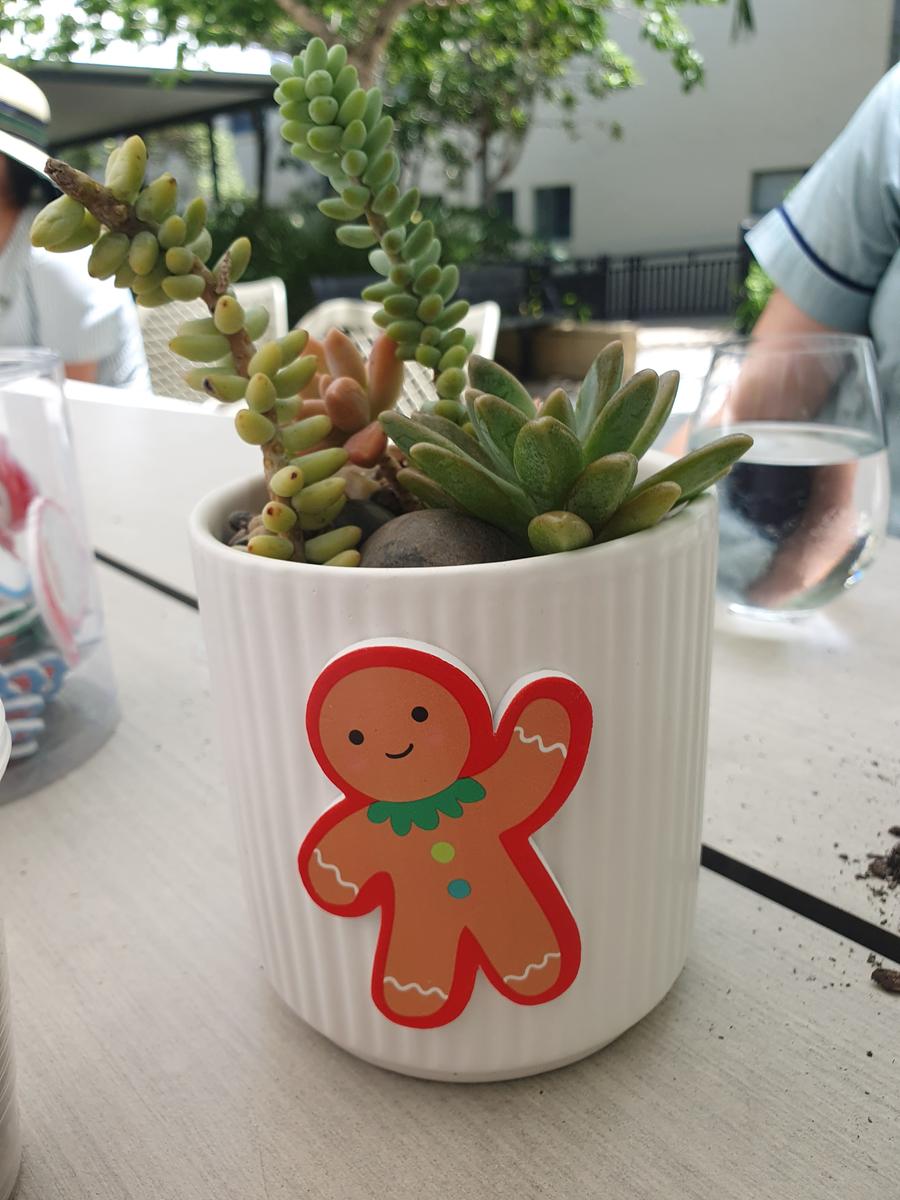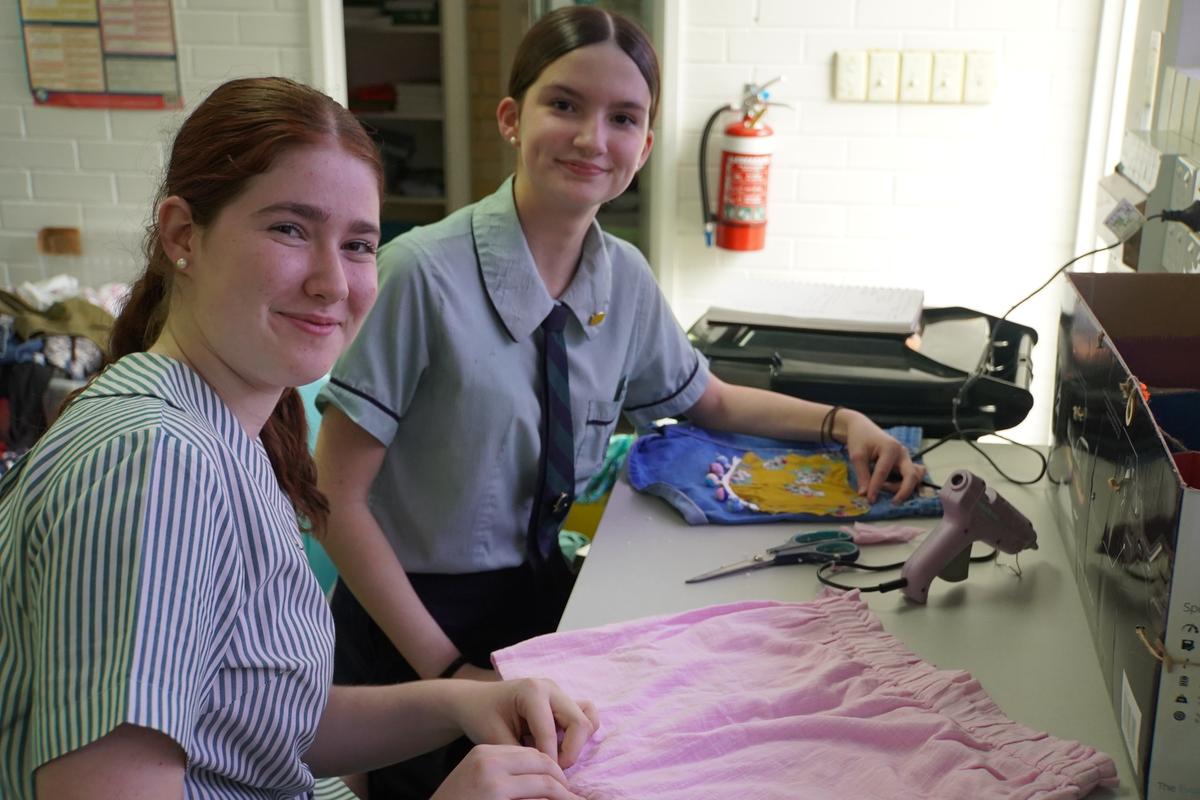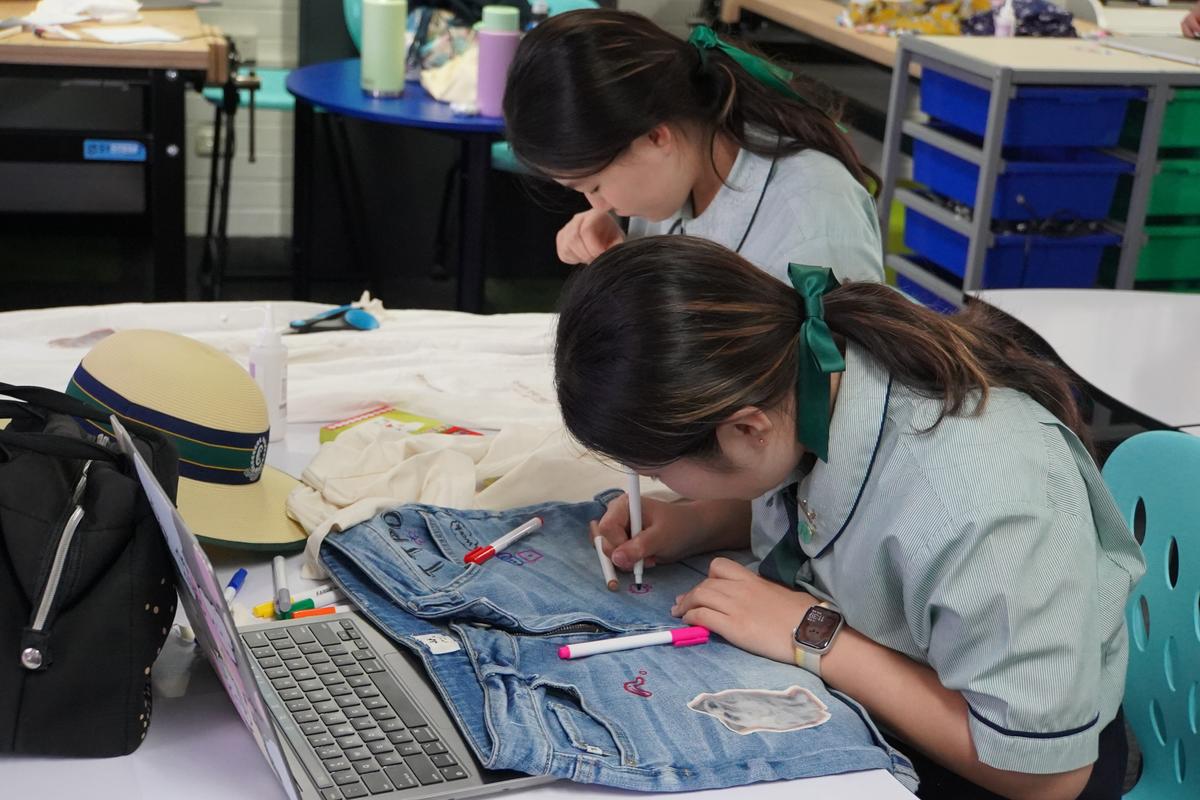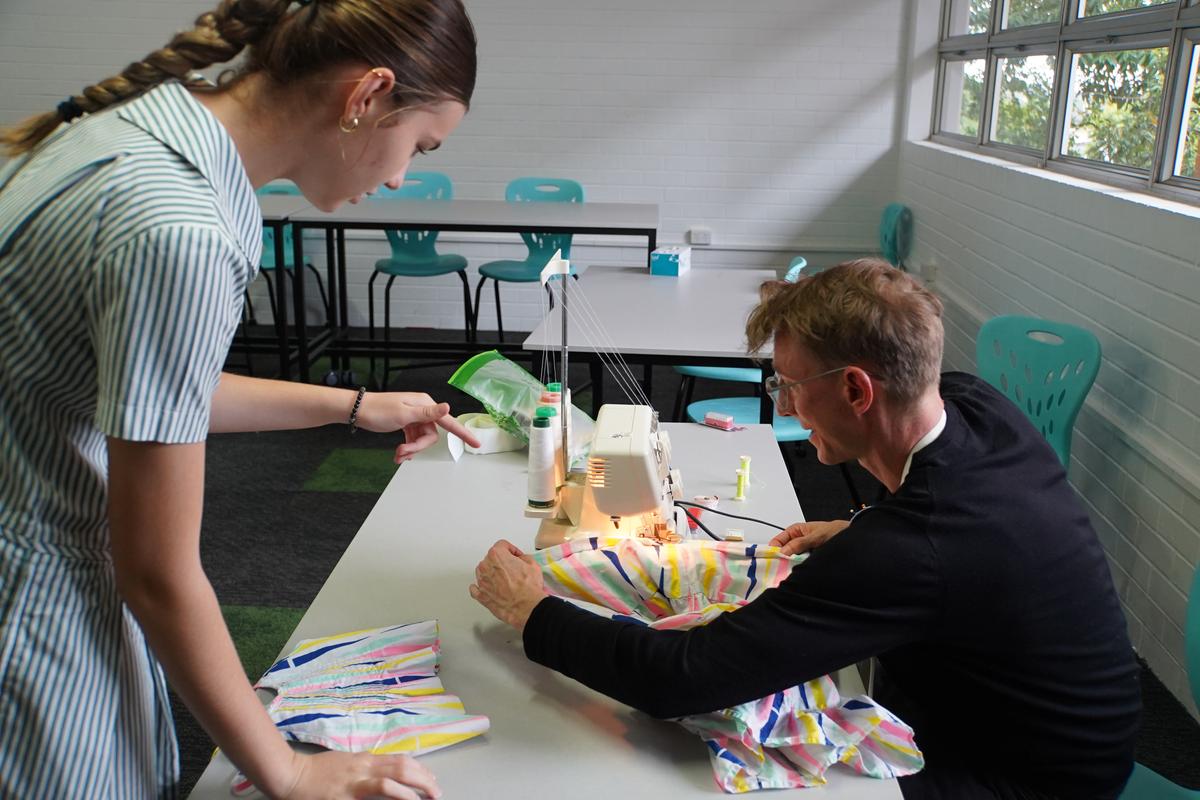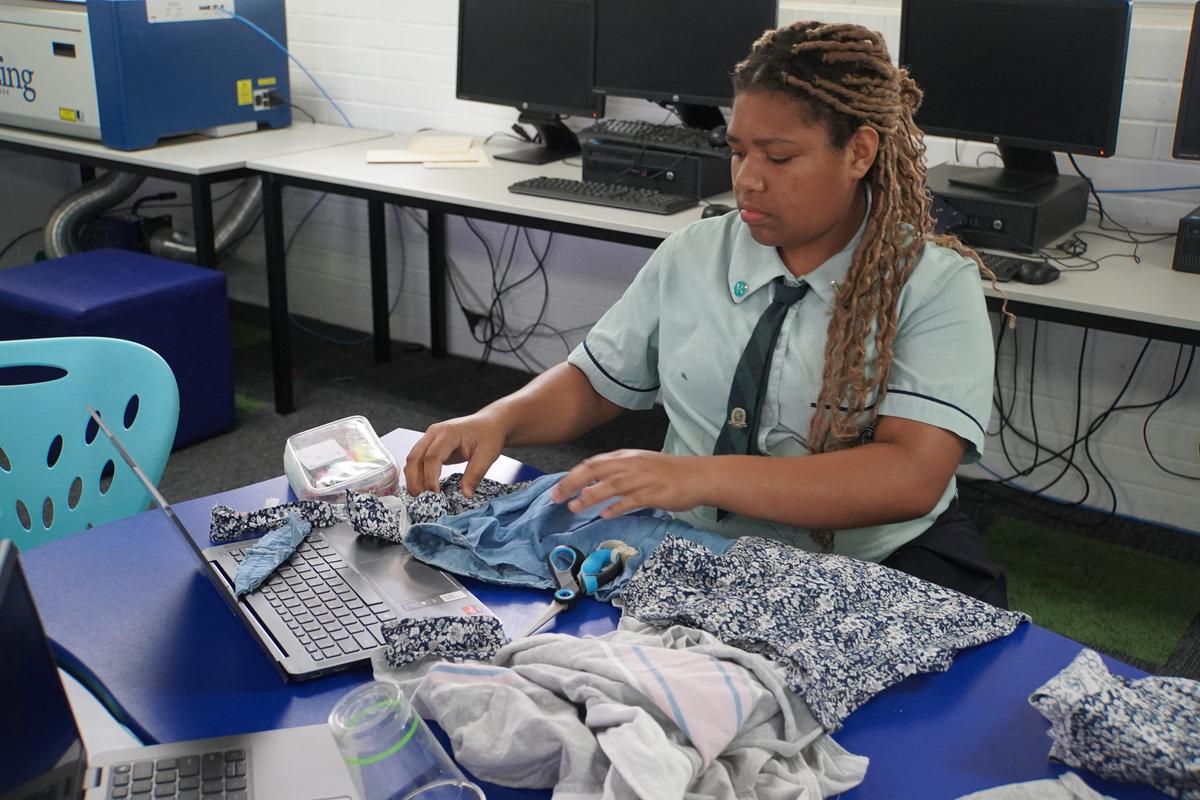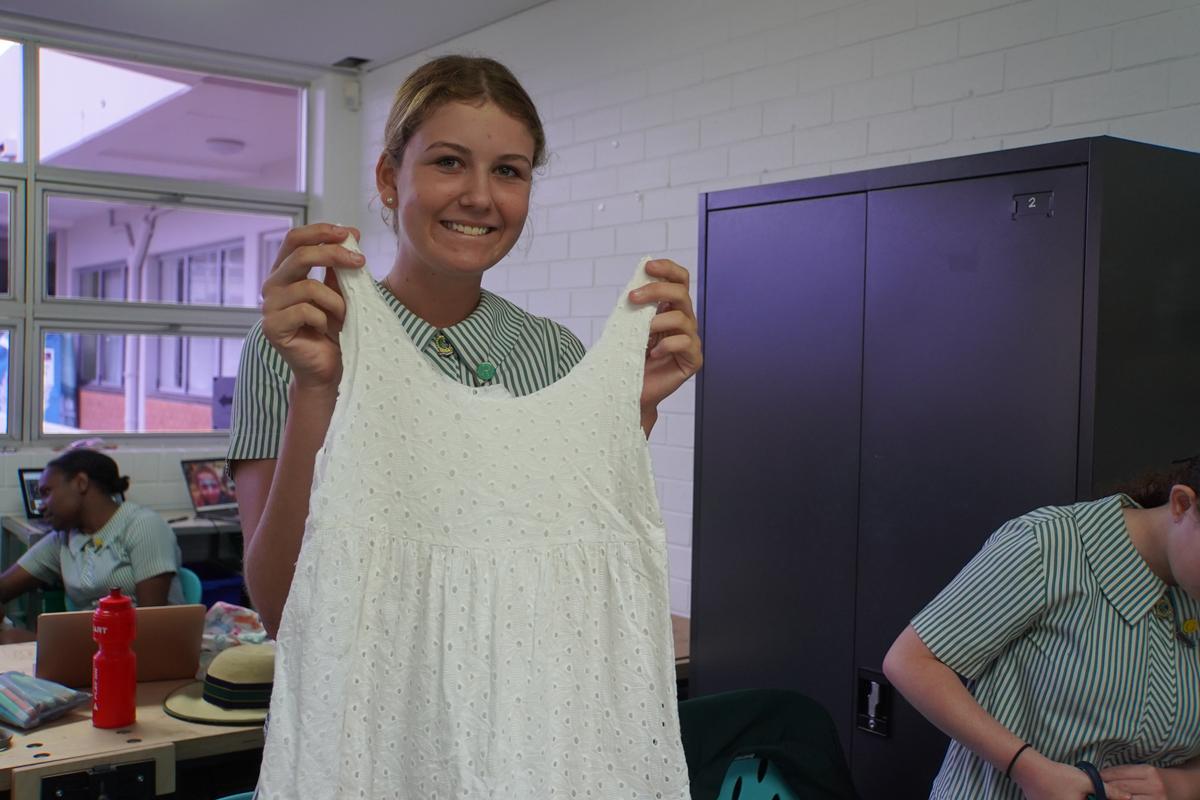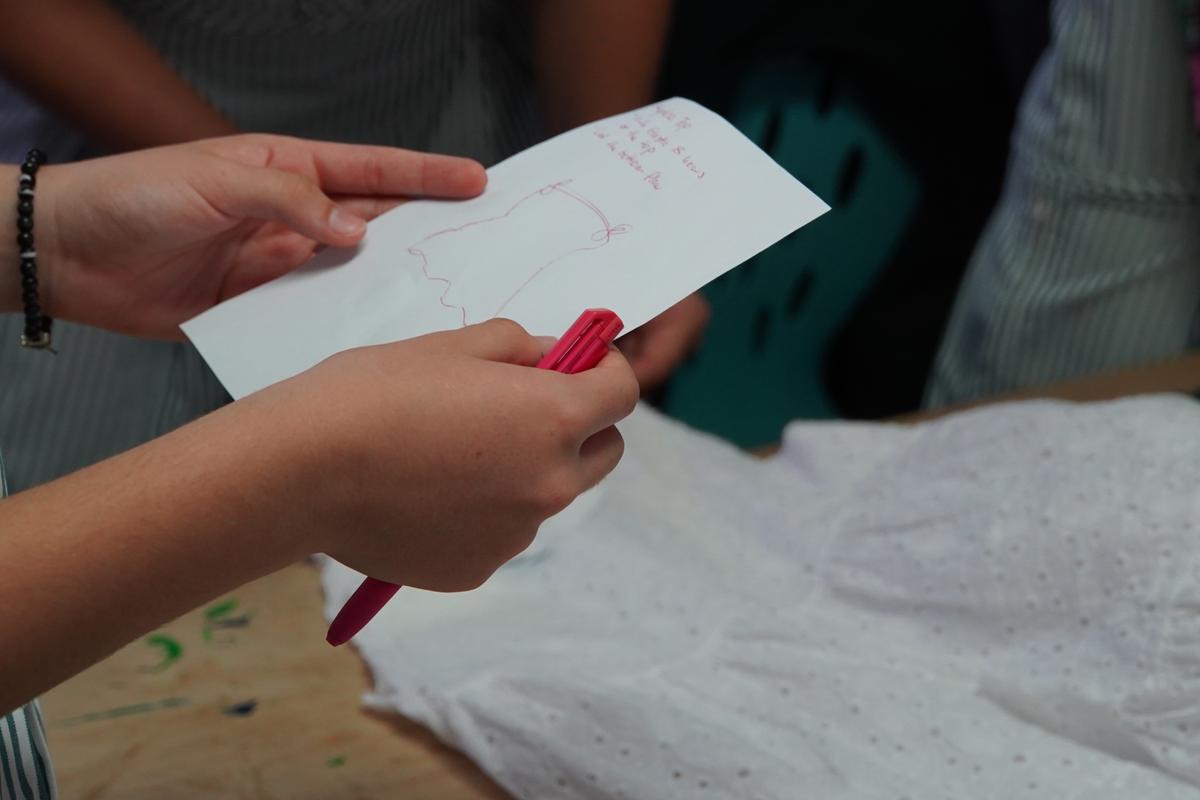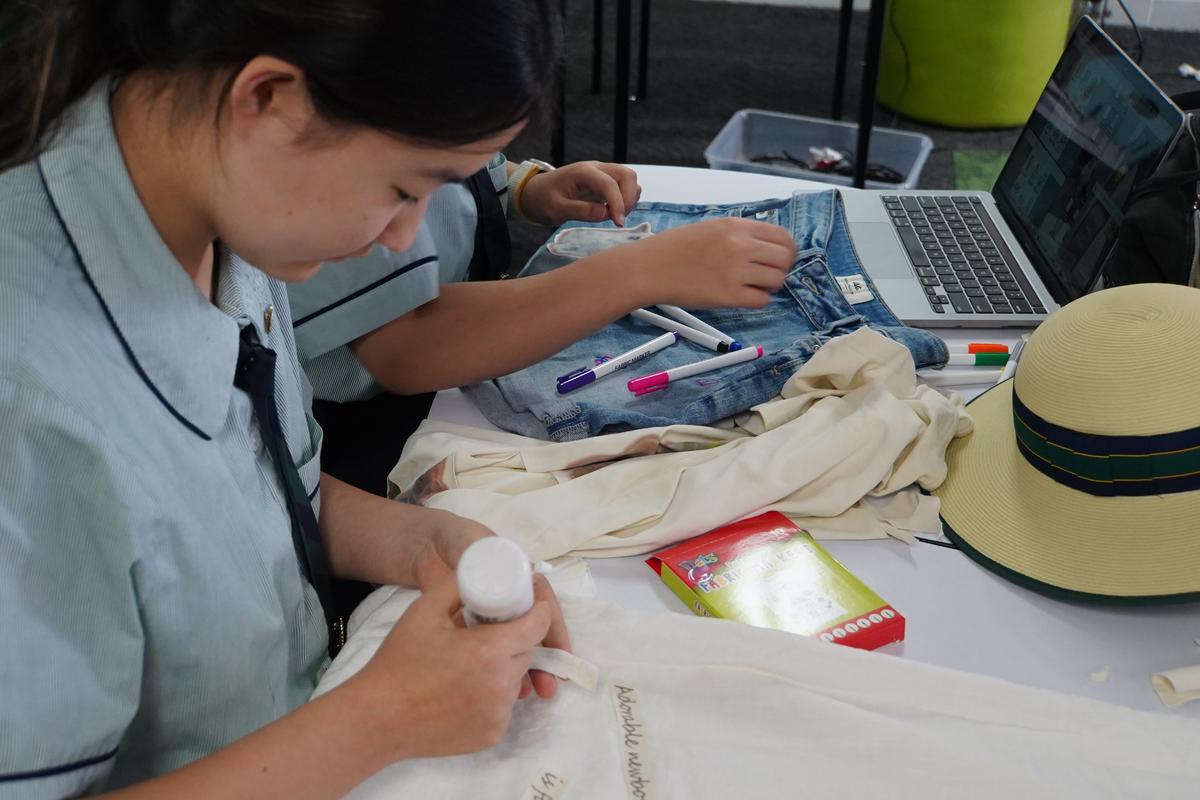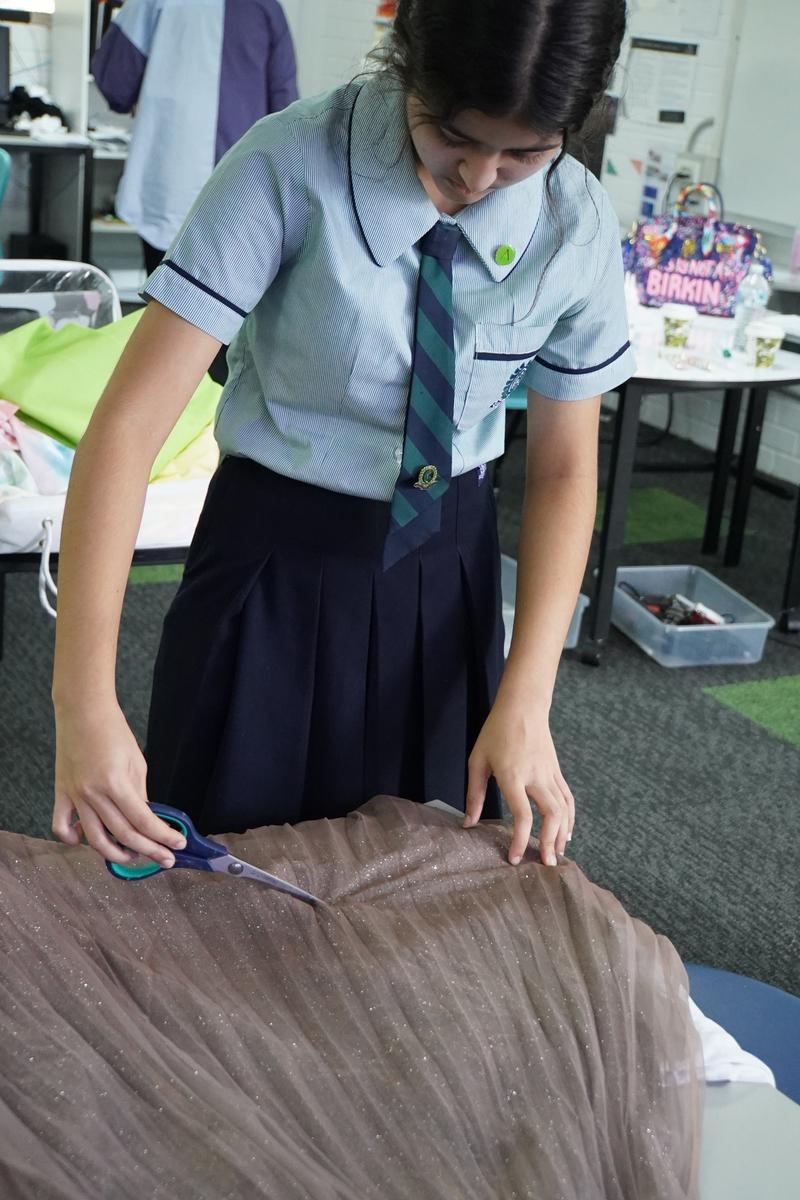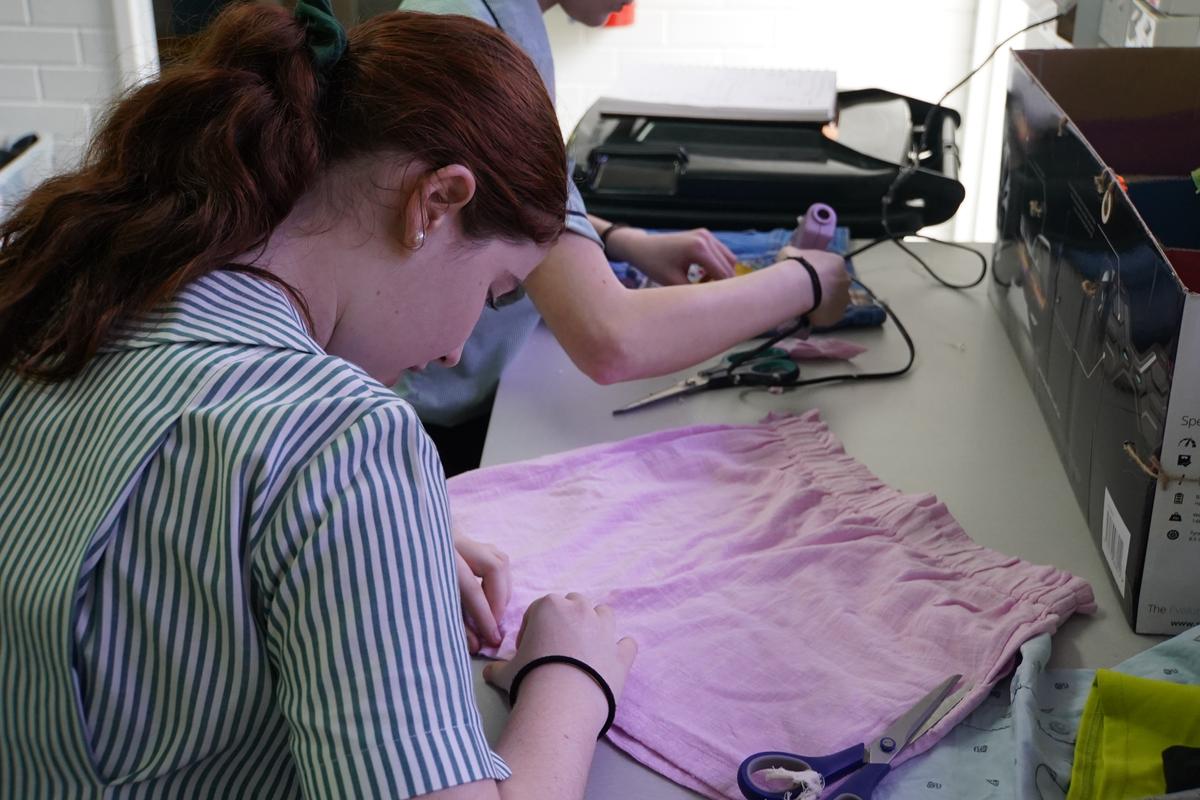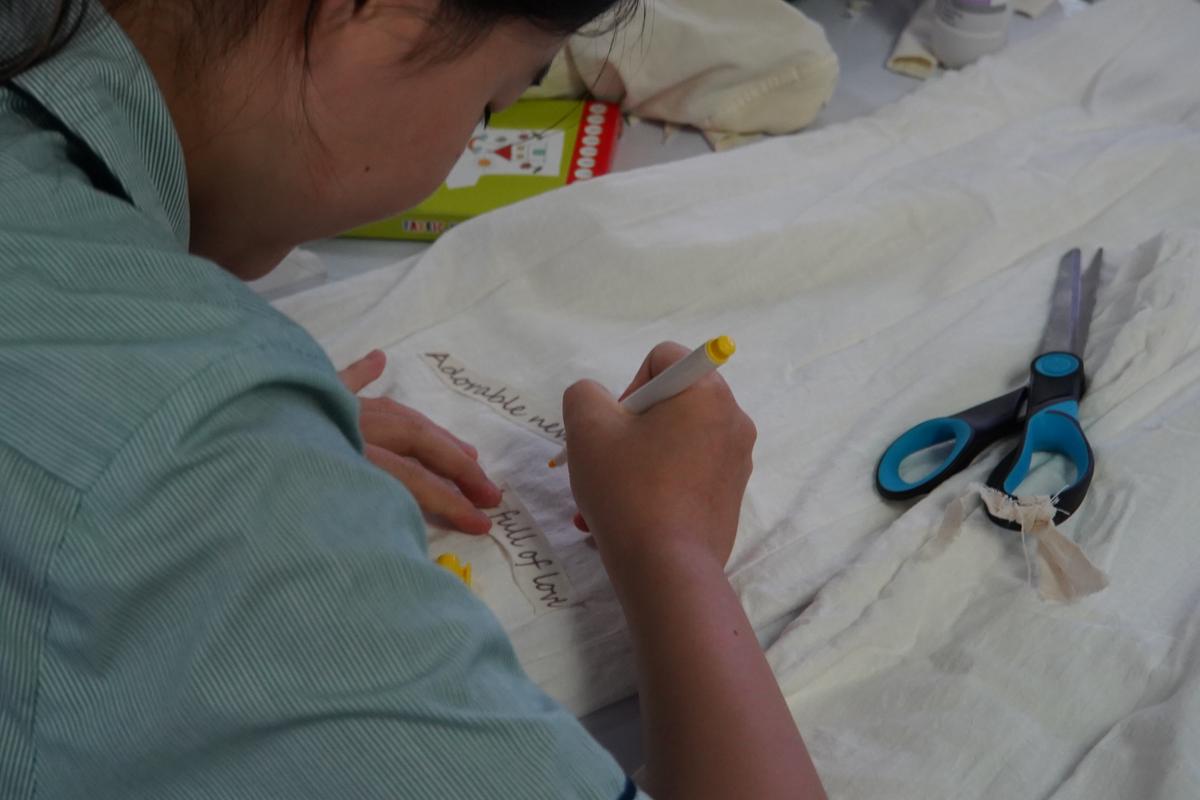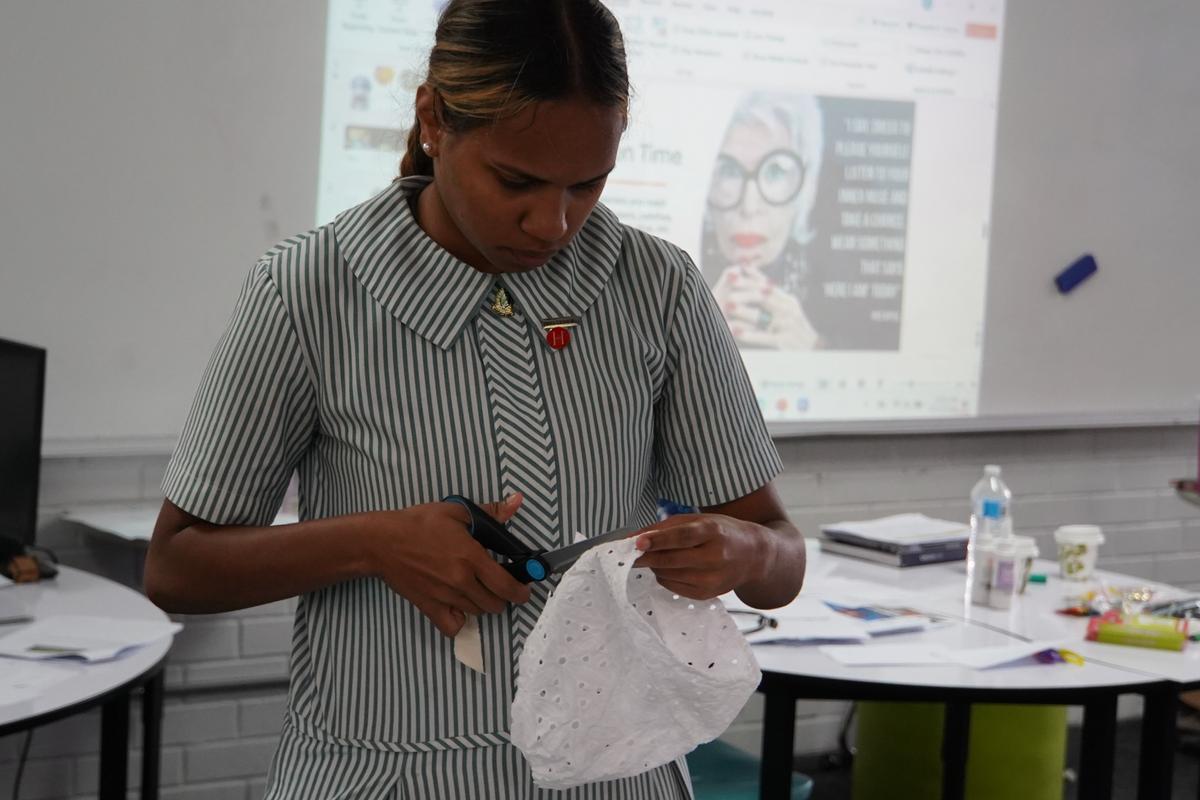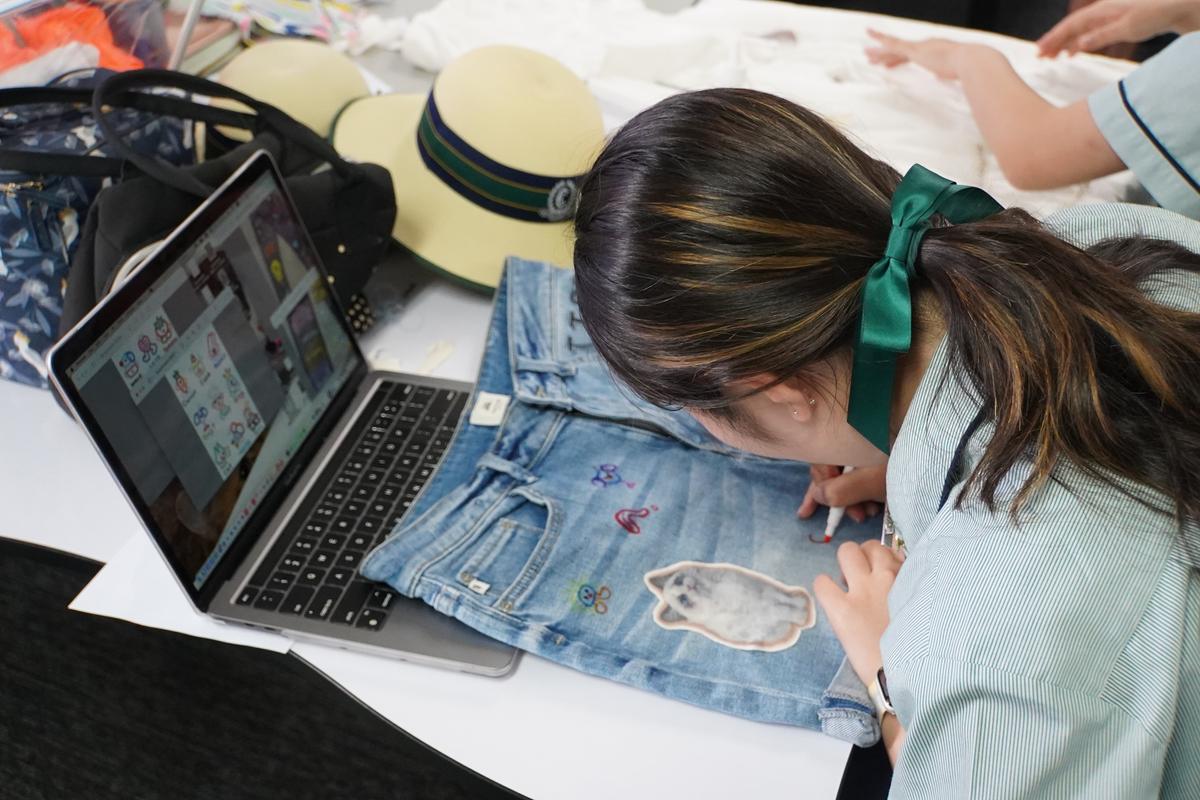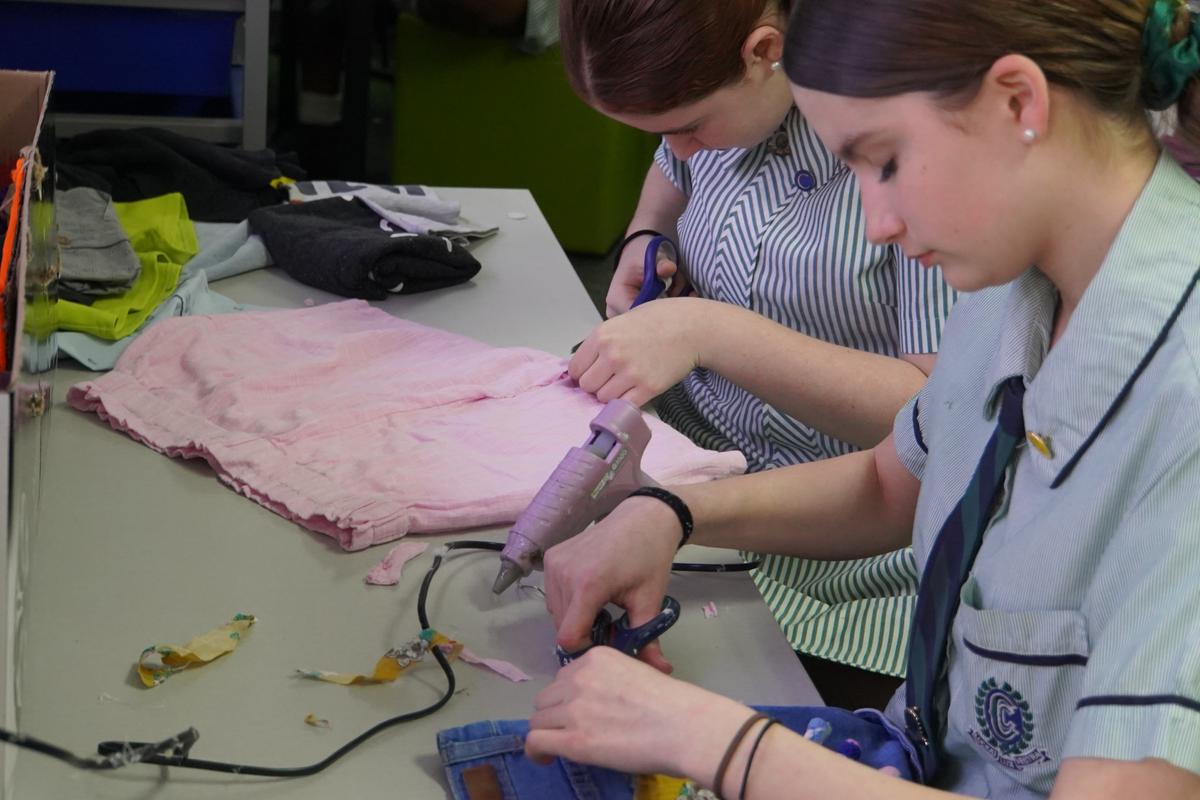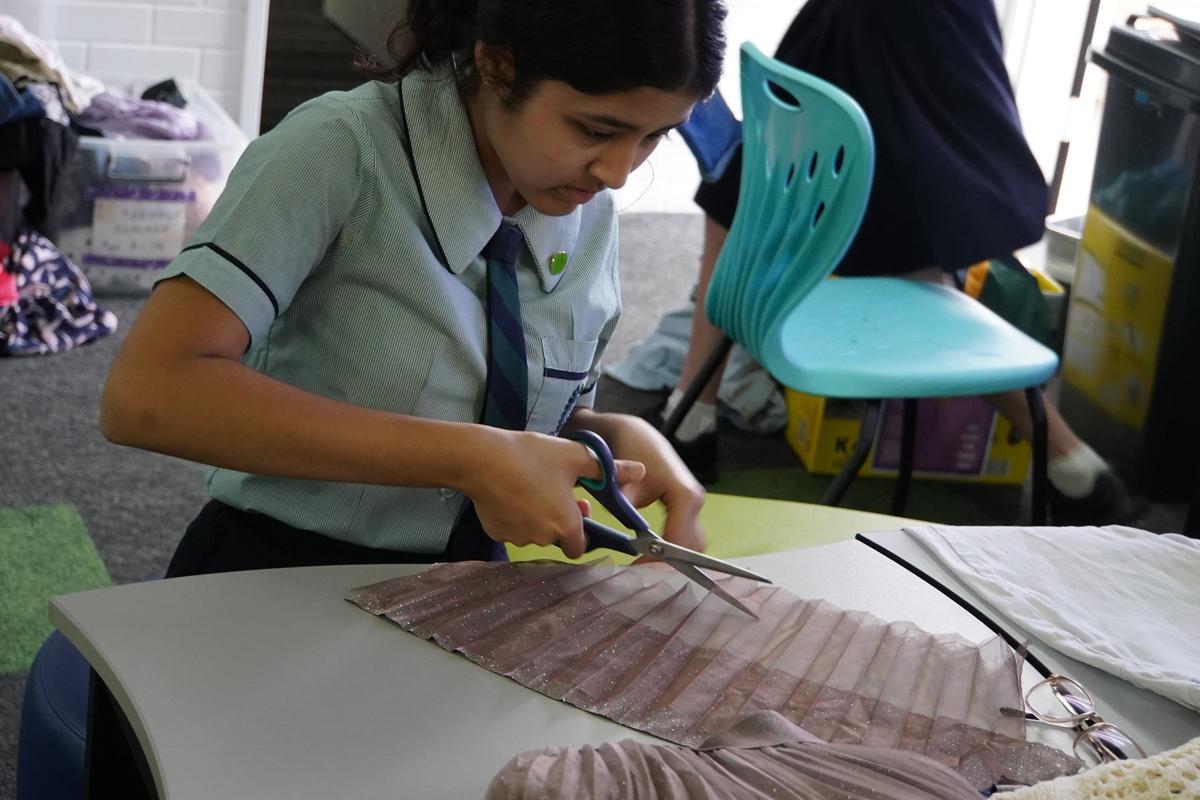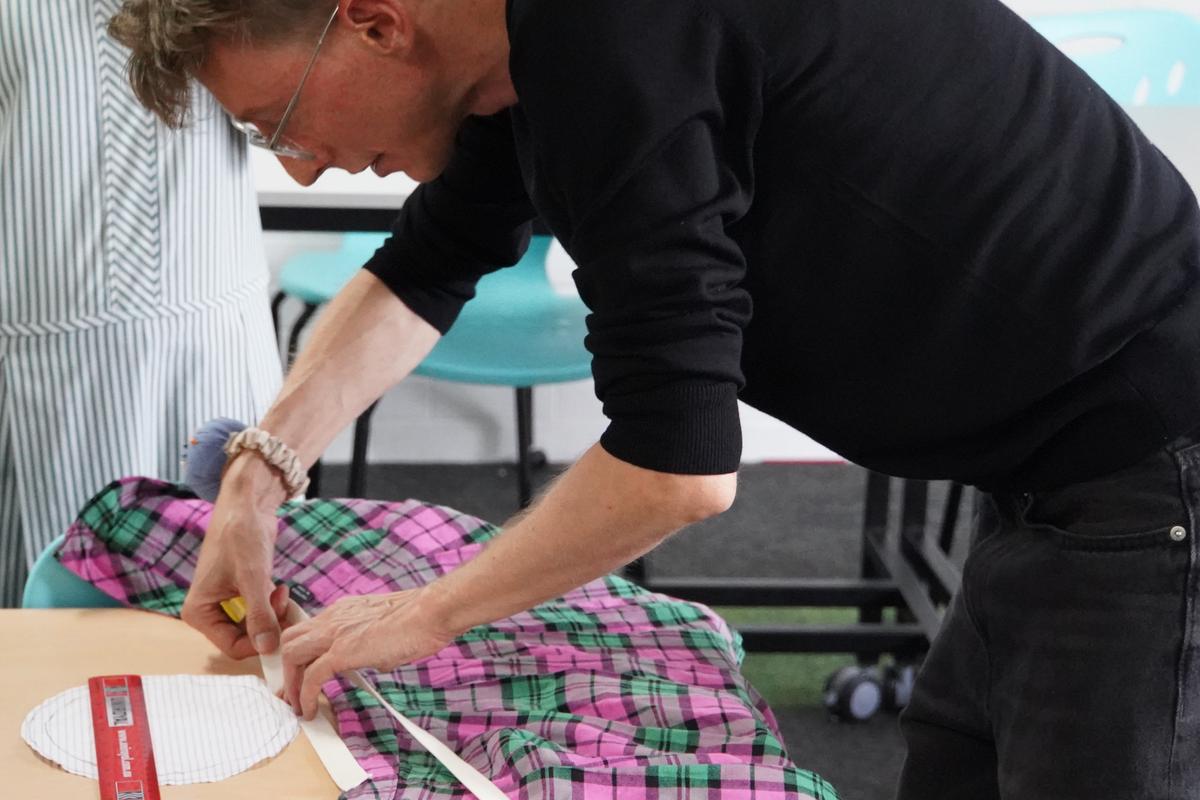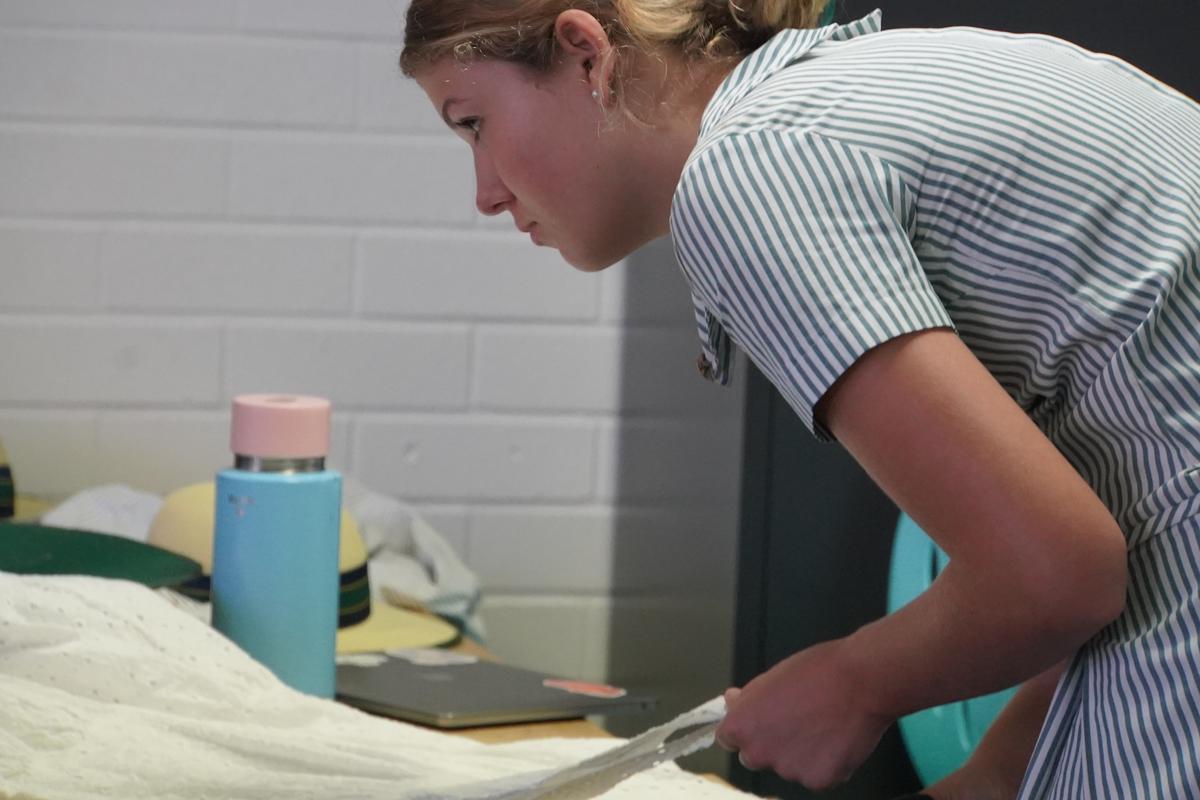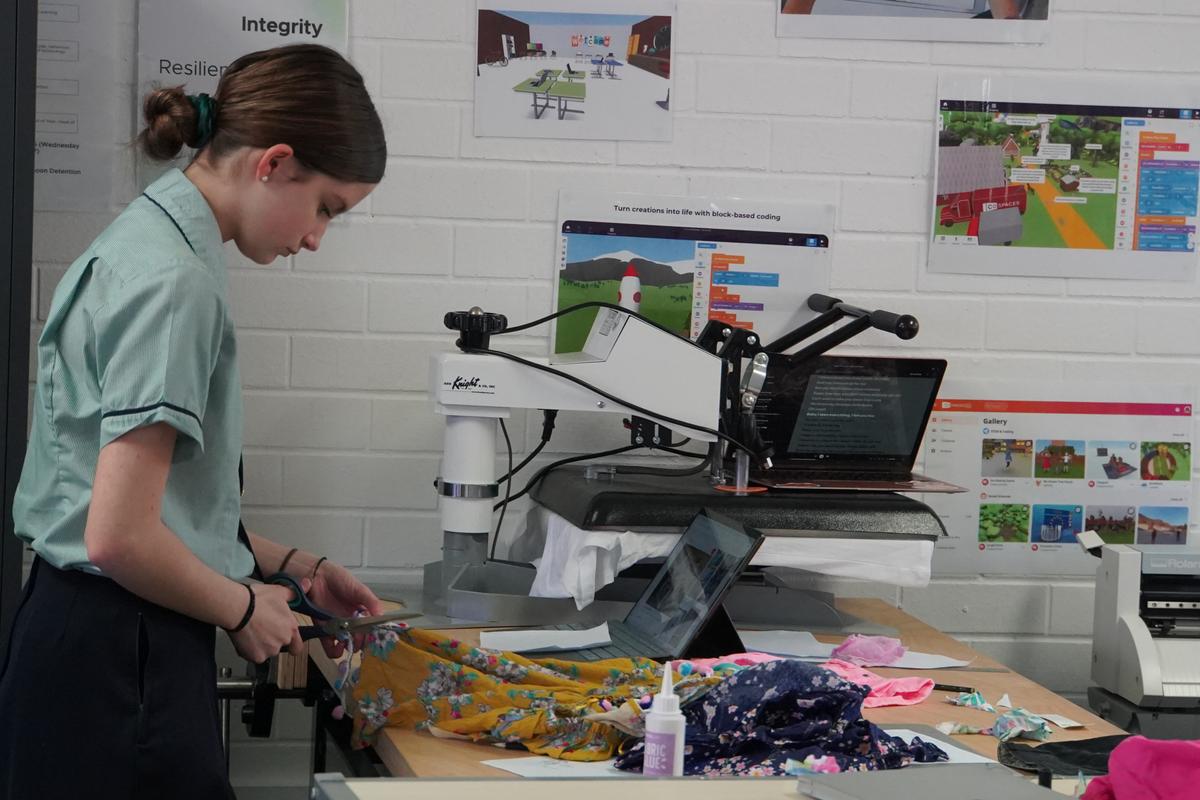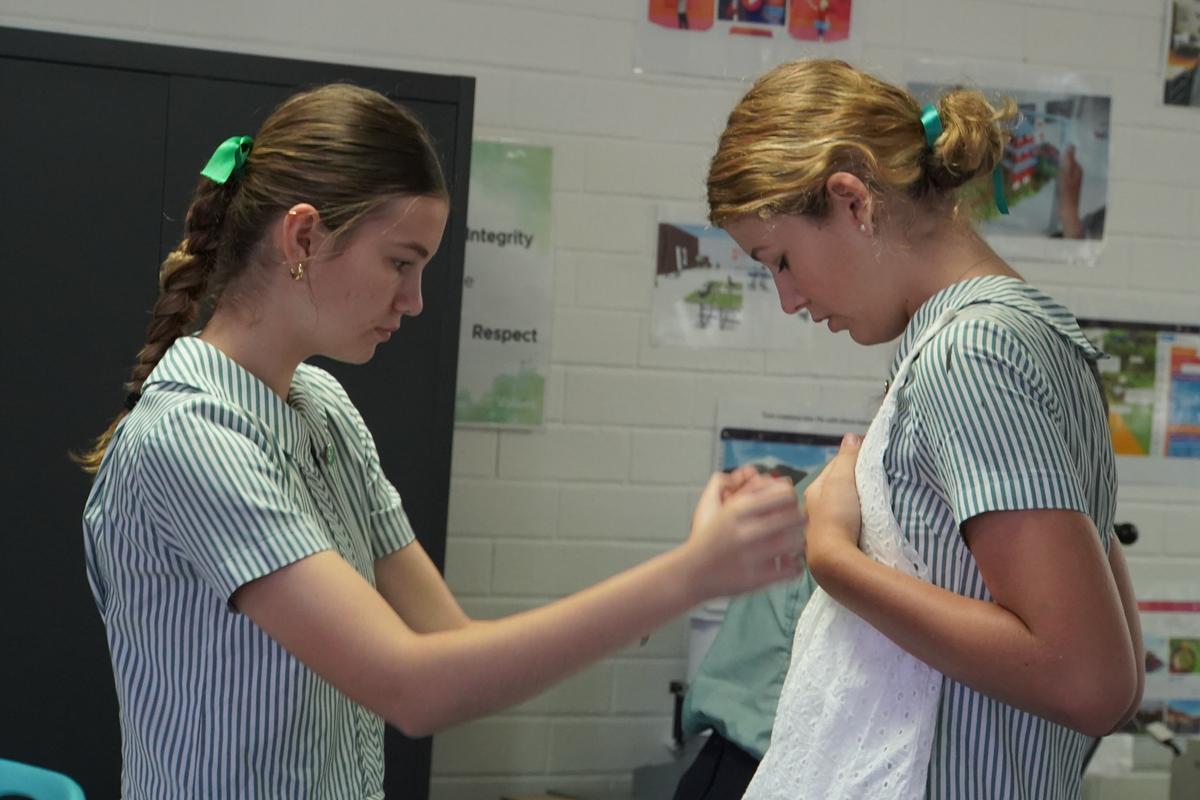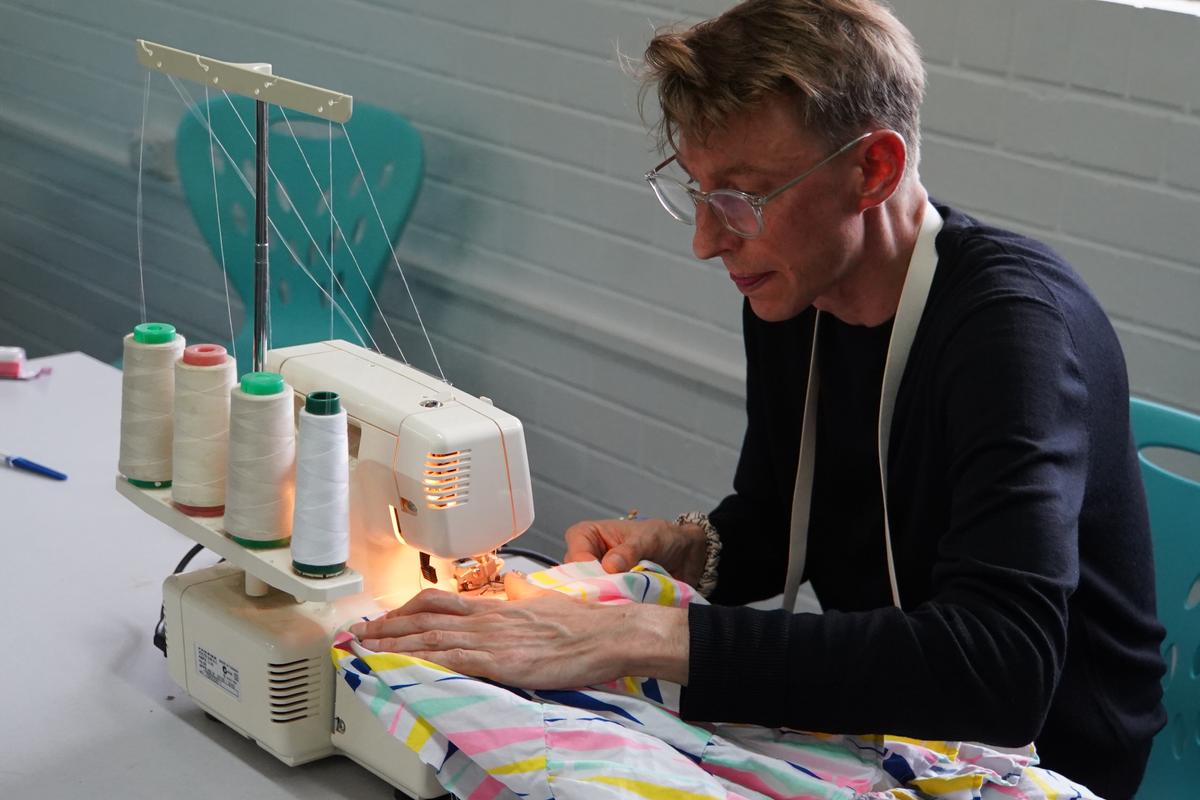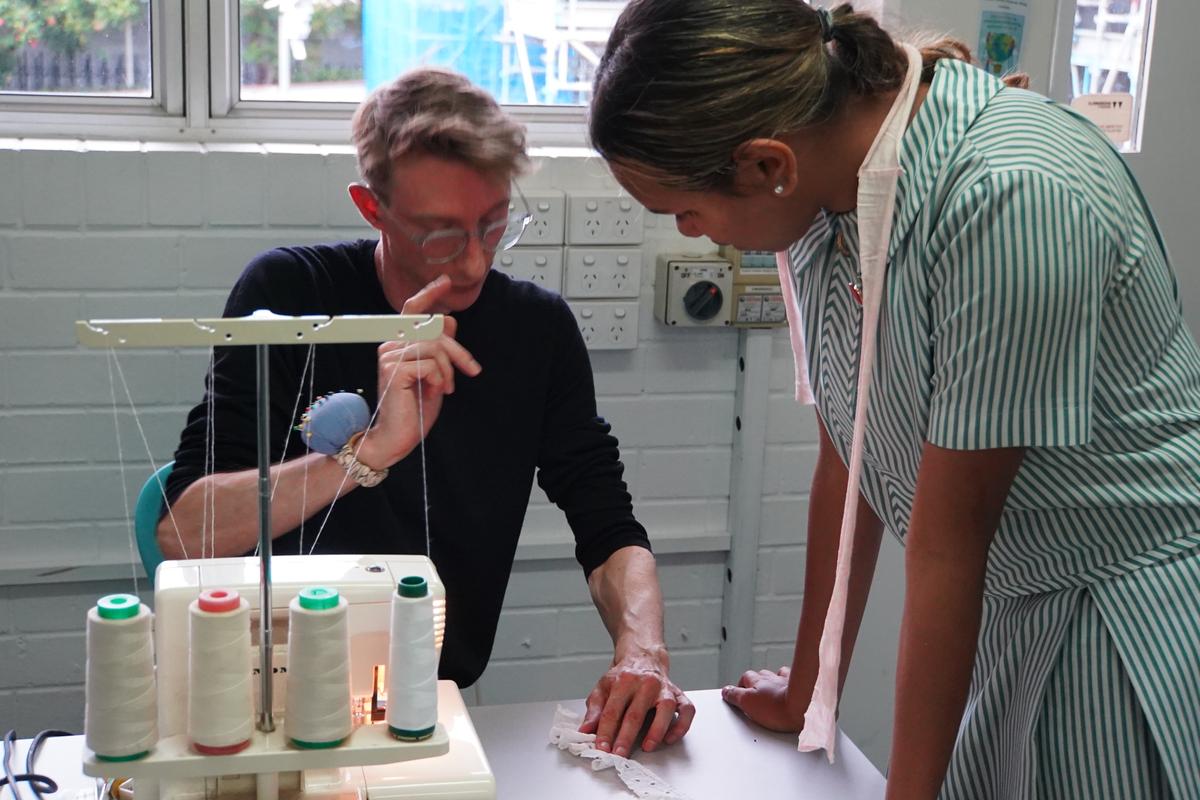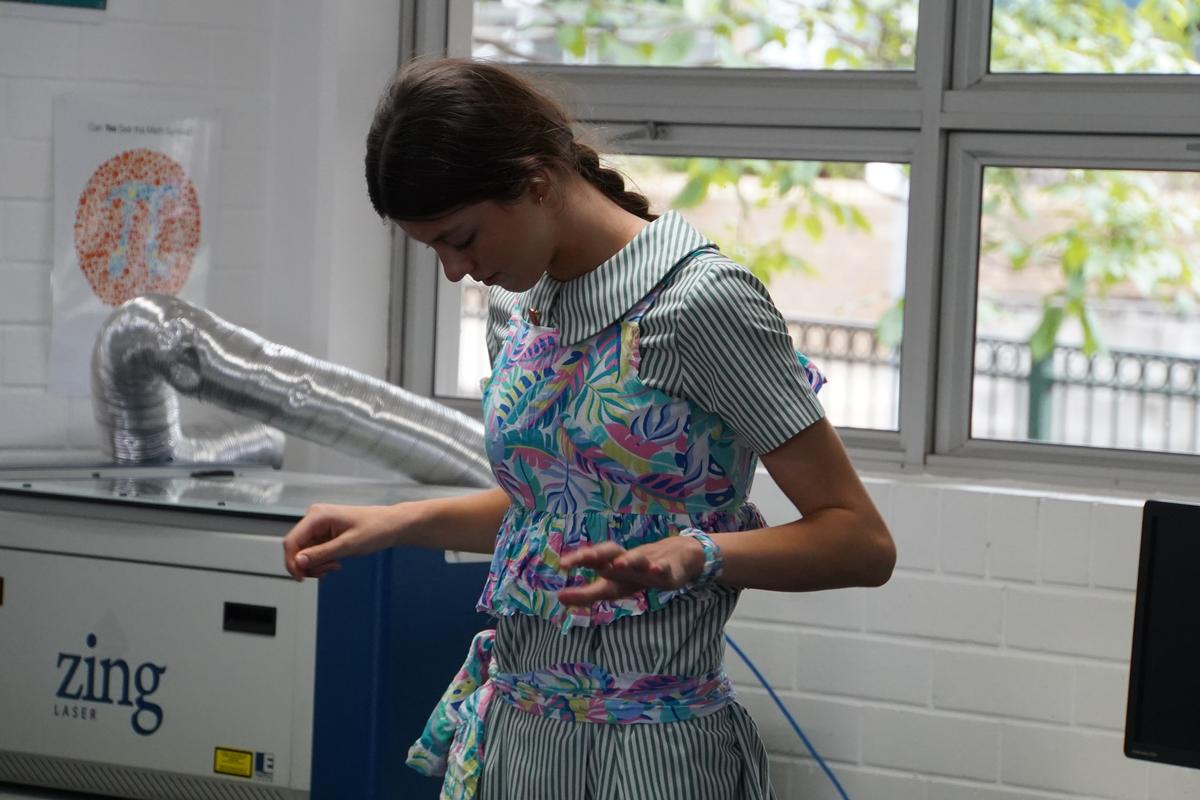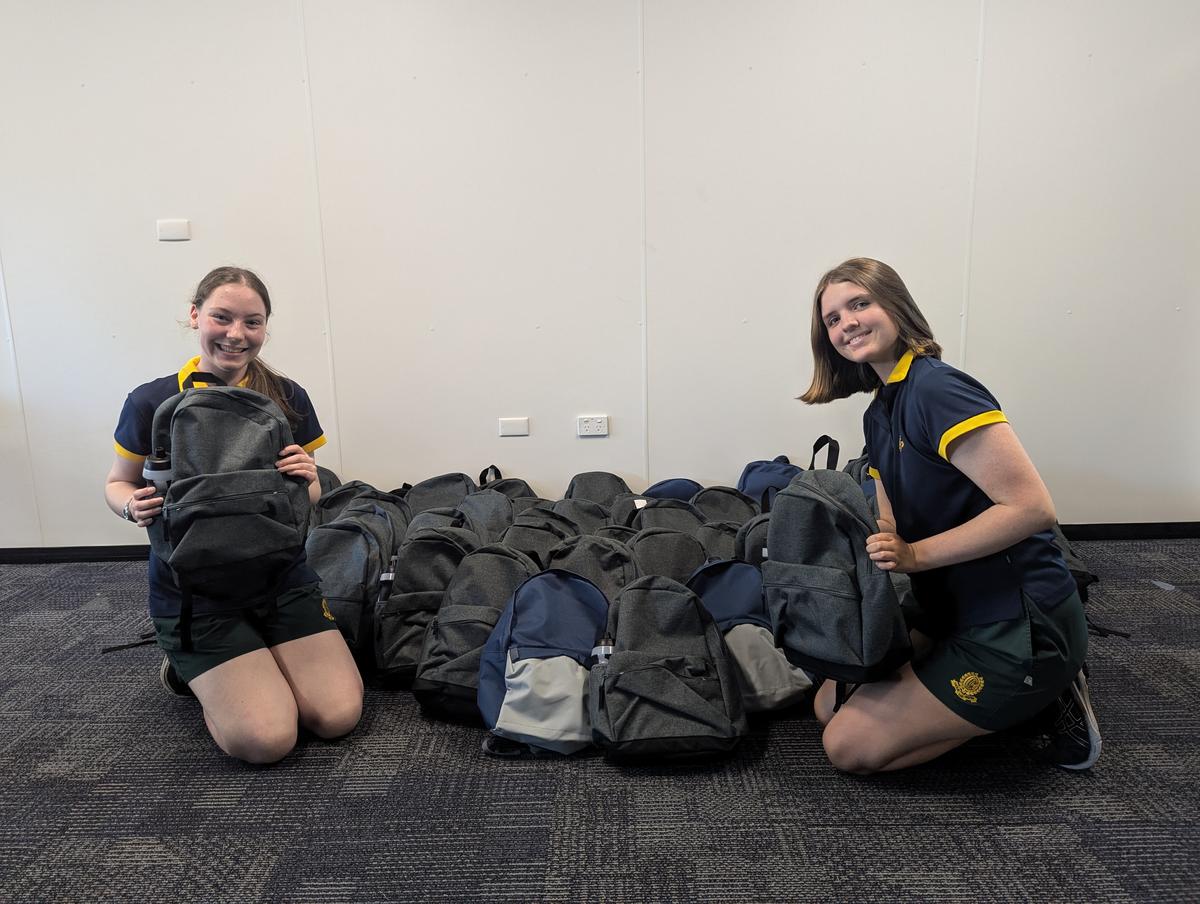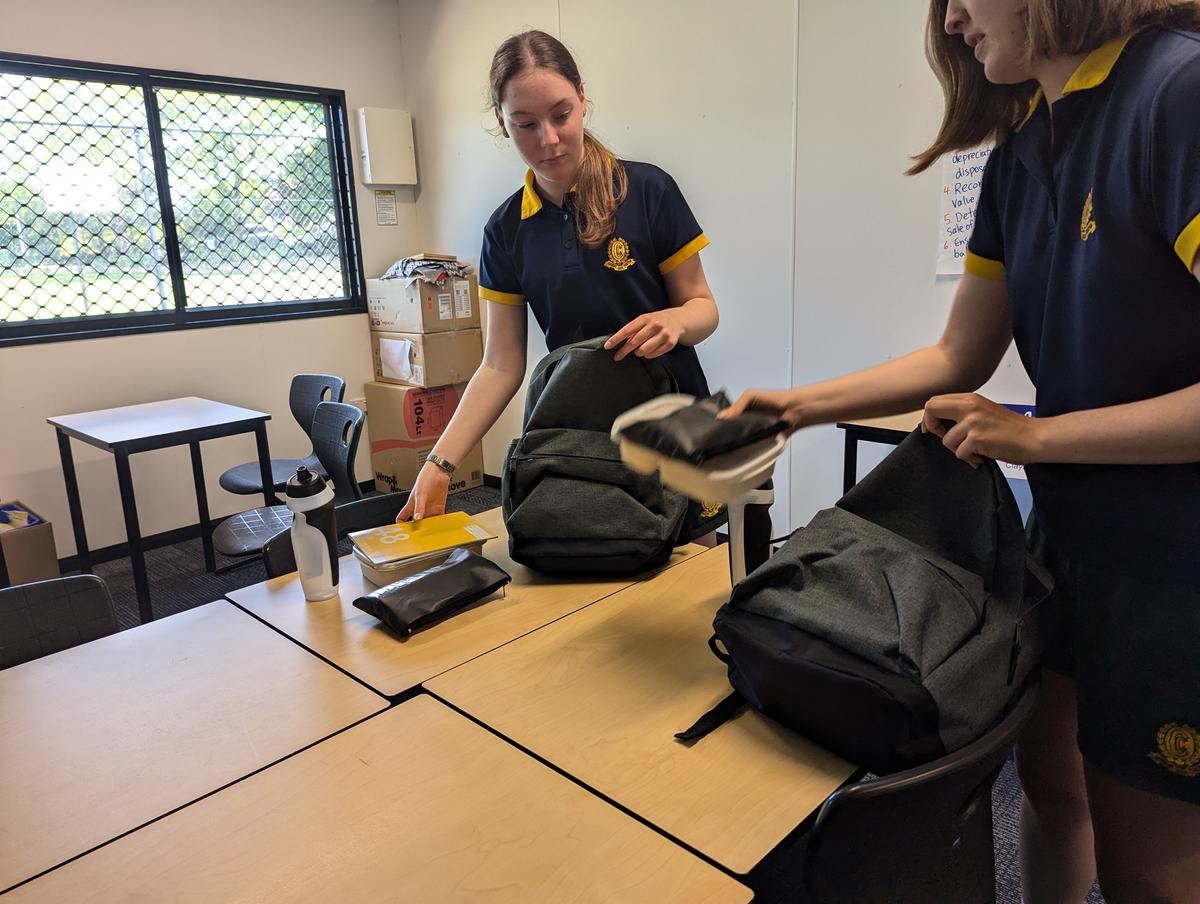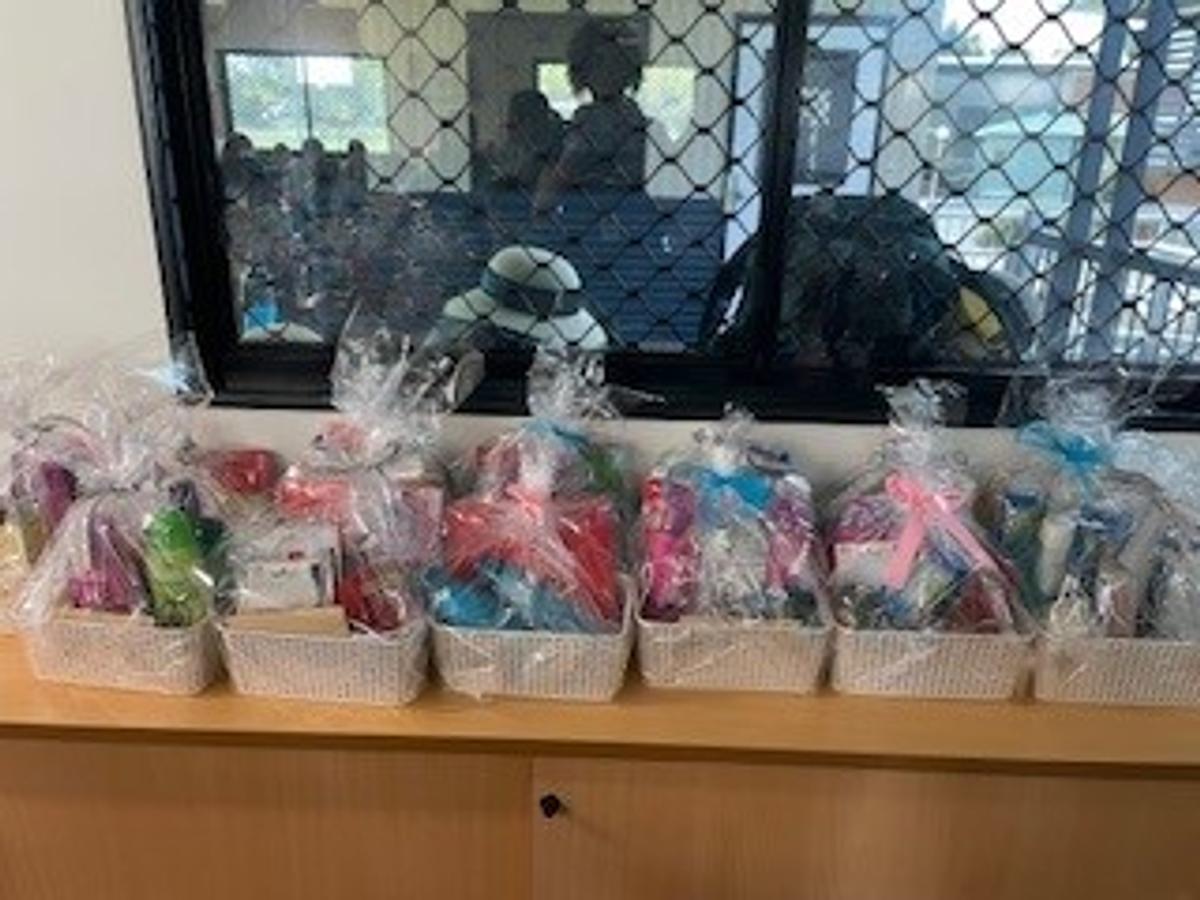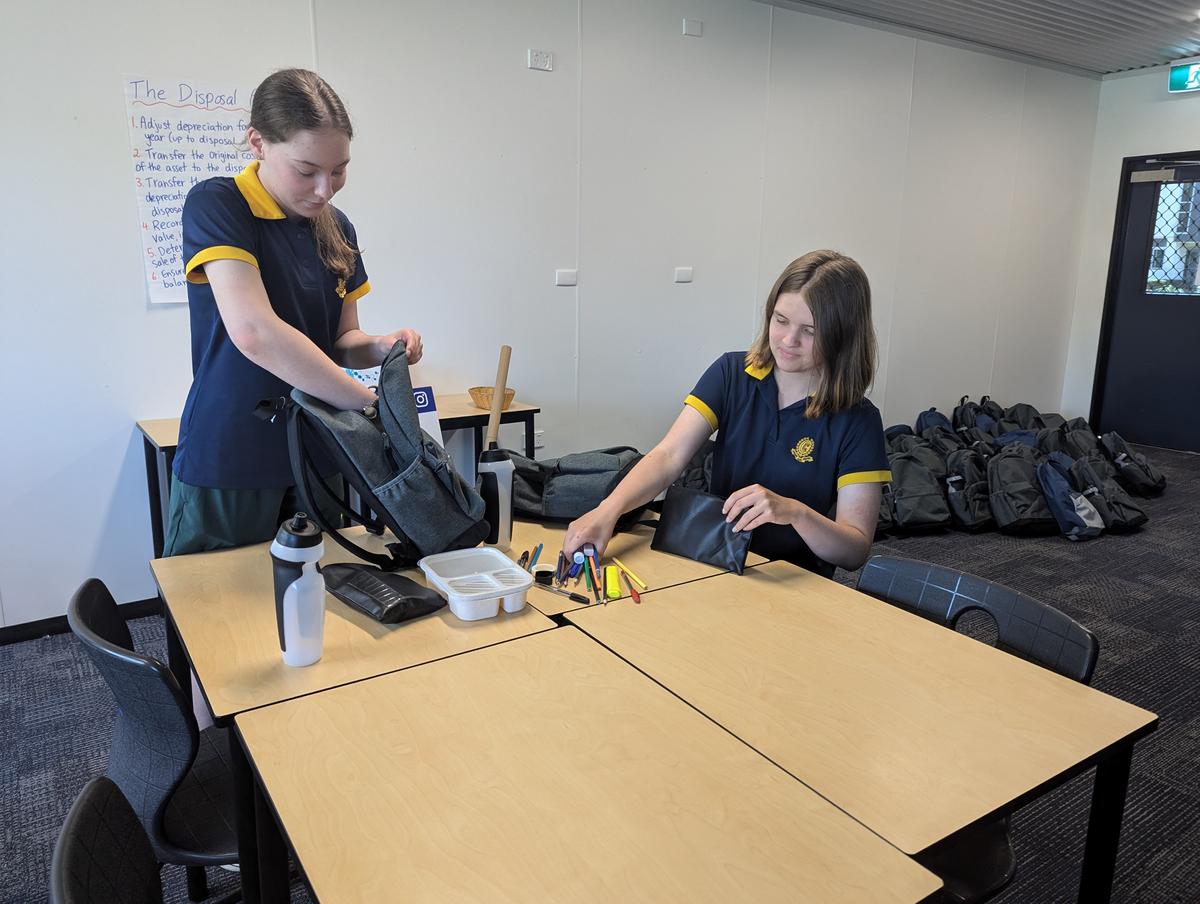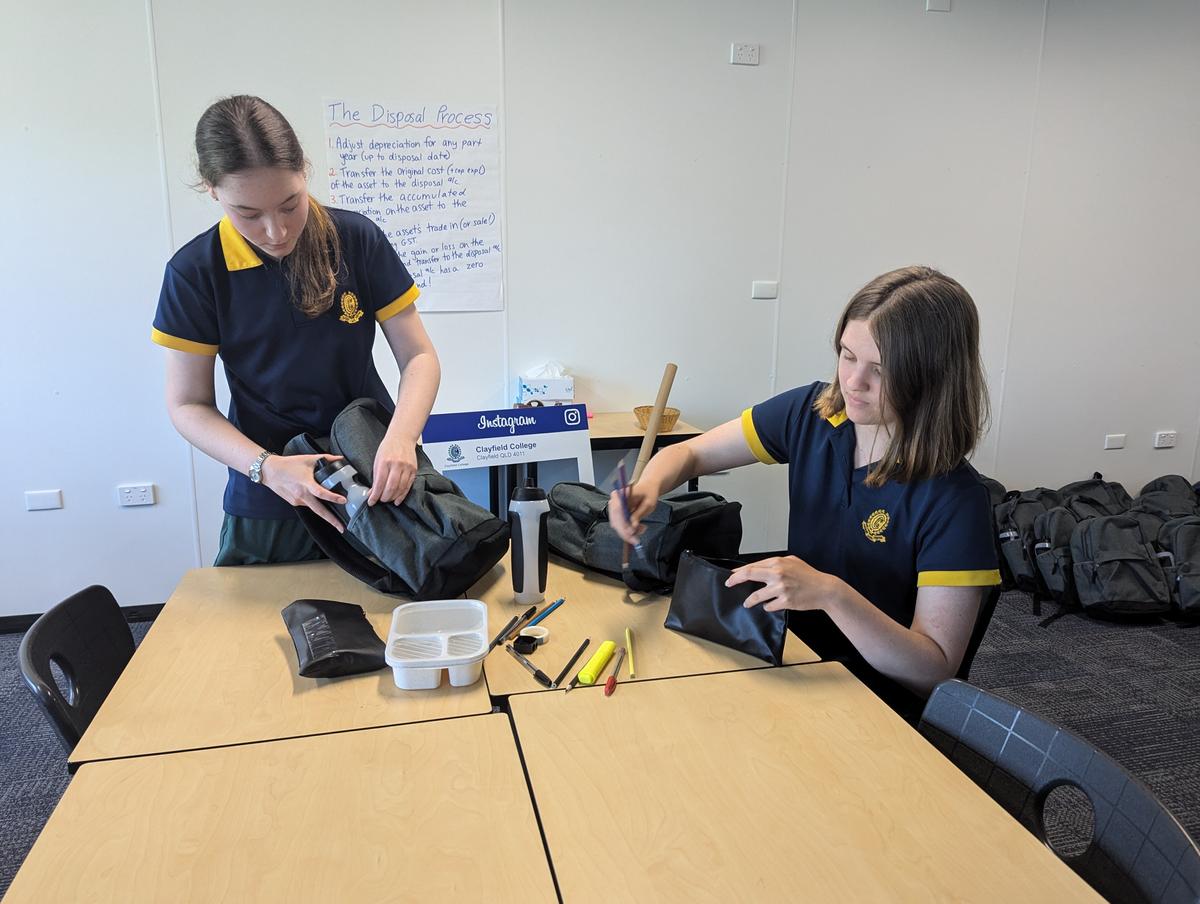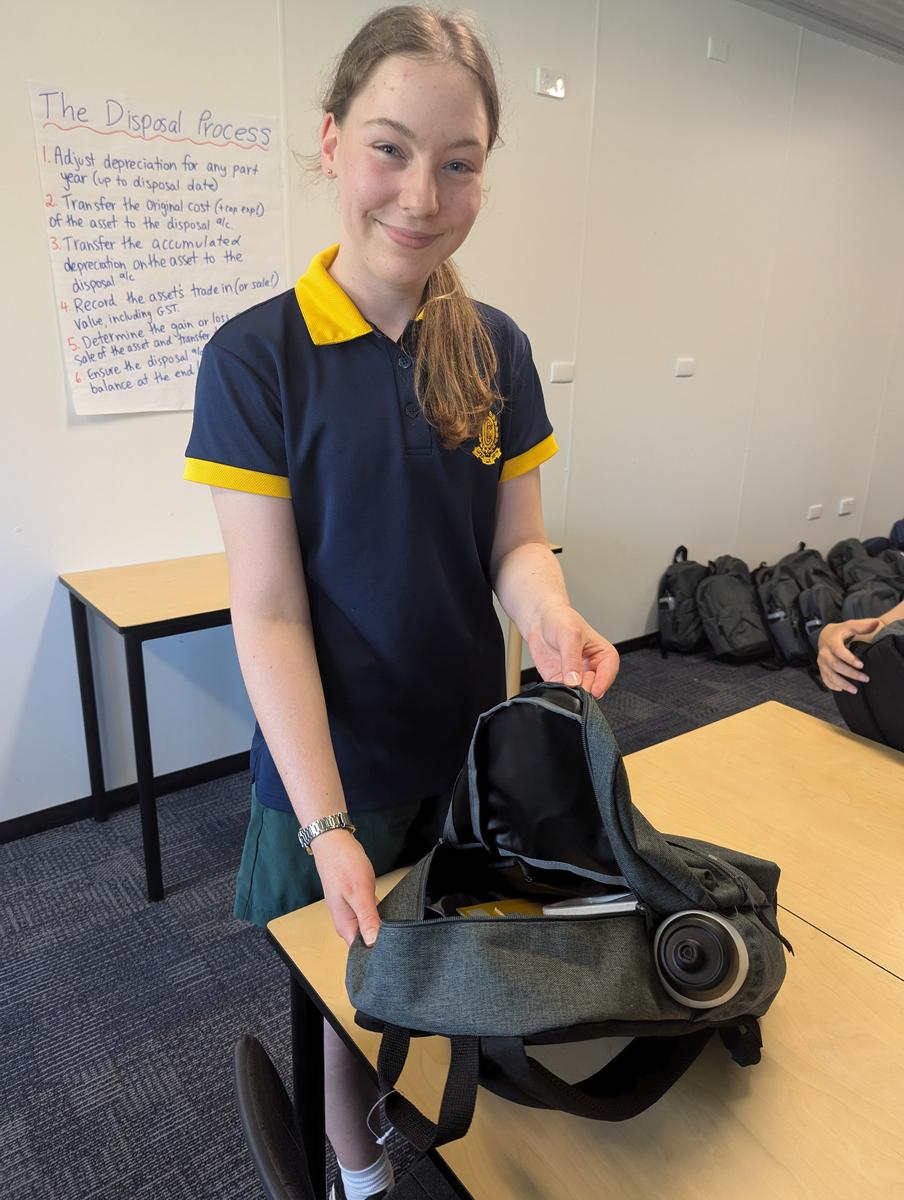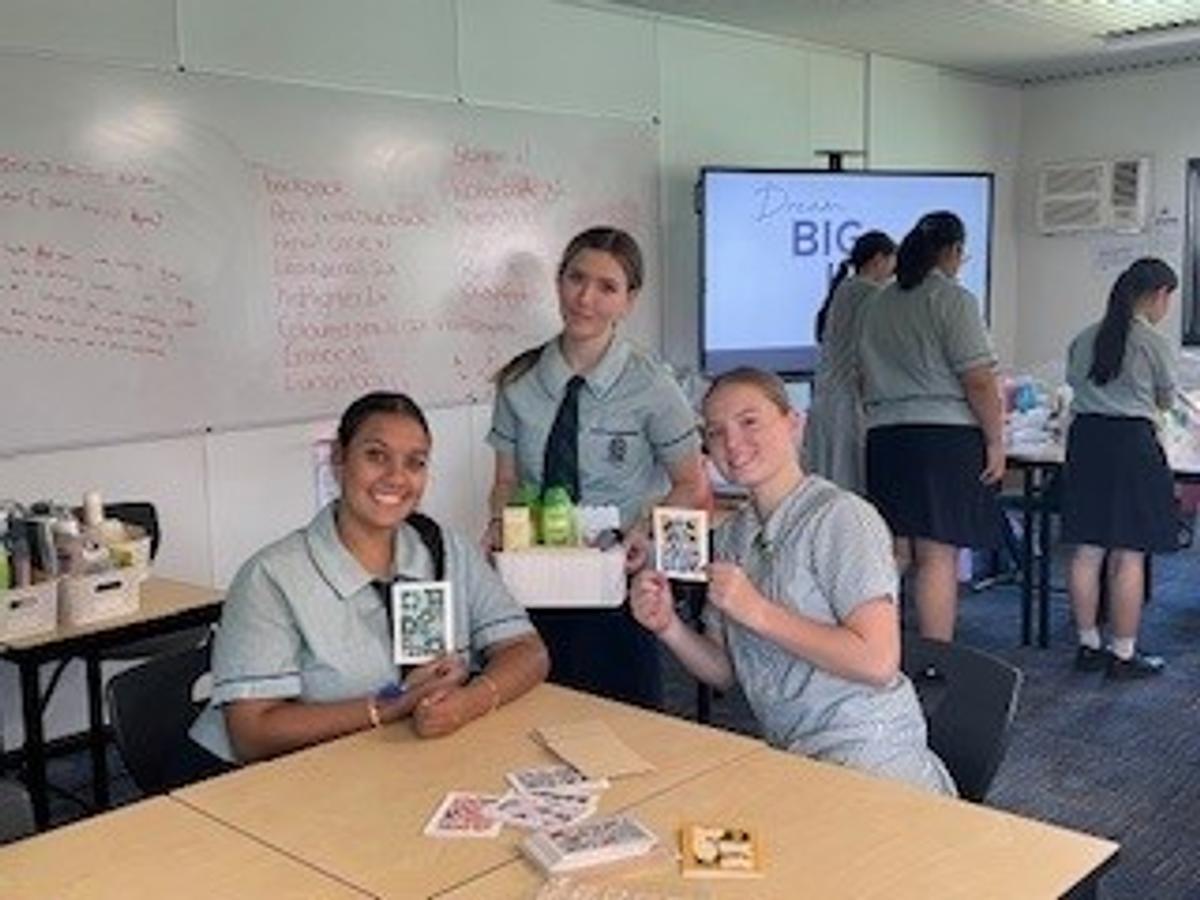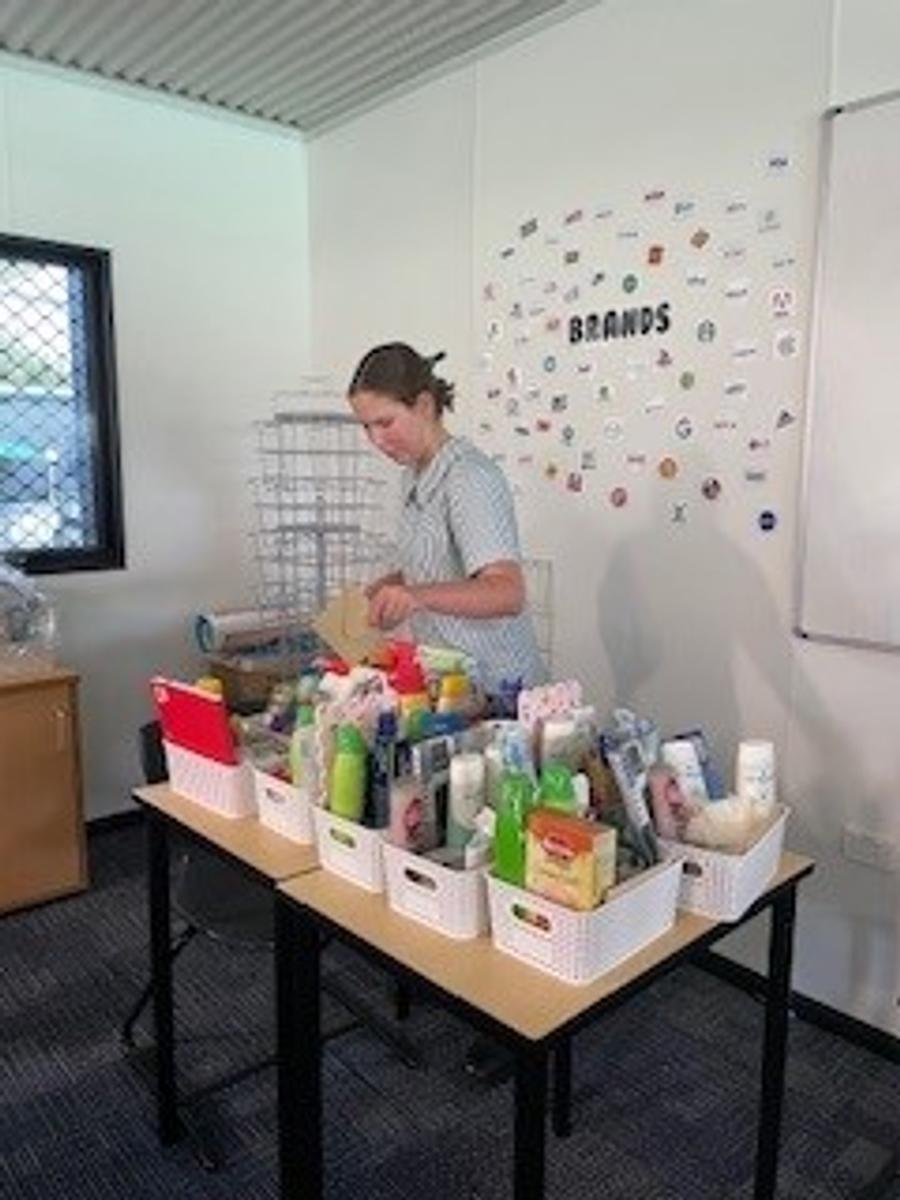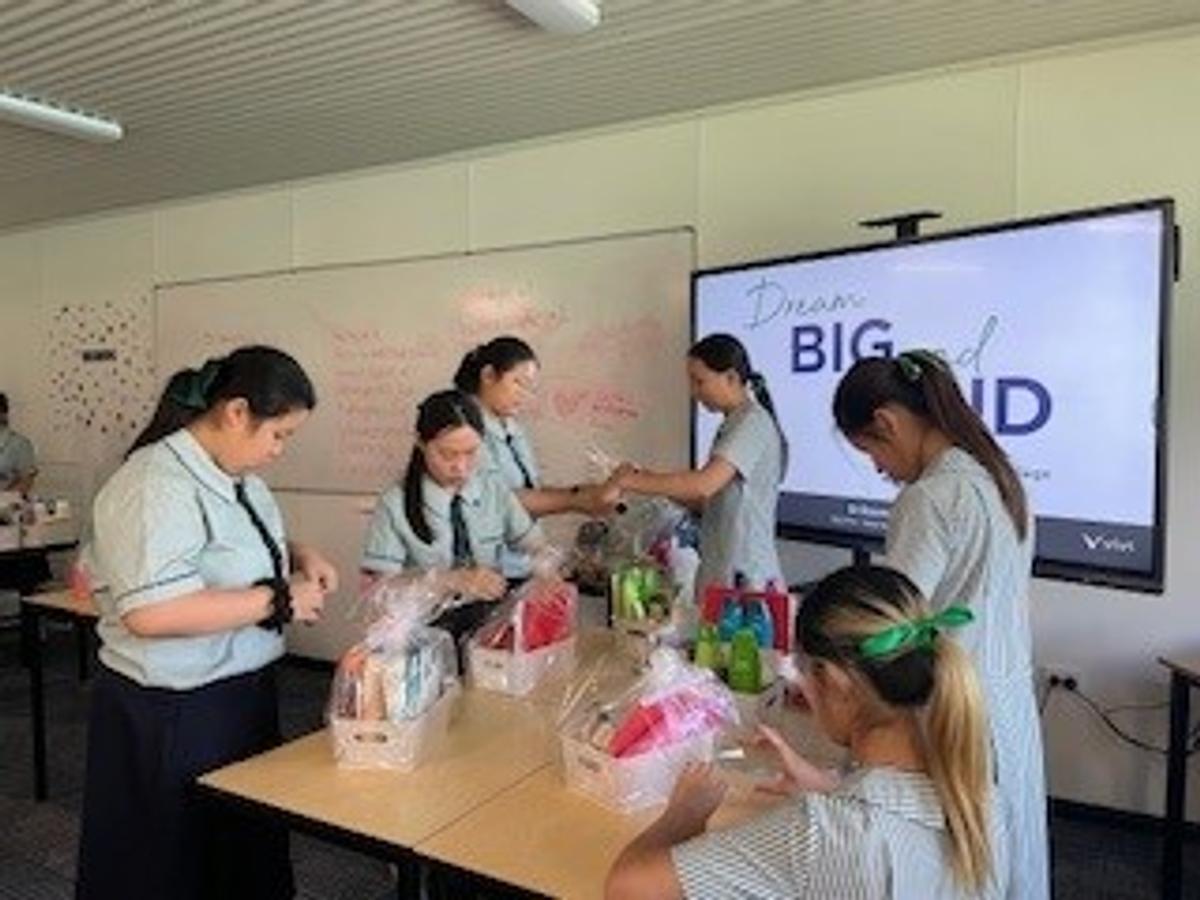The IGNITE Program

Baking with Purpose
Written by Matilda Woodhead and Lola Burkitt
During the 2024 Ignite program, we had the privilege of participating in activities designed to benefit the community. Students kicked off the program with an exciting project that involved making and baking goods, such as gingerbread cookies, brownies, and chocolate balls for the Community 4 Compassion kitchen.
Community 4 Compassion is a not-for-profit organisation based in Nundah that provides healthy meals to individuals facing difficult circumstances. This organisation is entirely run by volunteers and relies on the contributions and support of local communities to help those in need. Their work is supported by initiatives such as food drives, hamper baskets at schools, a donation box at the front of their premises, and donations from groups like the students at Clayfield College.
The students eagerly participated in all aspects of the process including cutting out cookies, rolling chocolate balls, baking the brownies, icing the cookies, making handcrafted labels, and packaging everything with care.
As a group, the students were motivated to help those who benefit from the Community 4 Compassion kitchen after learning about the difficult situations faced by individuals, as shared in a PowerPoint presentation by Ms Mills. The students hope that their baked goods bring joy at the upcoming Christmas lunch and that their efforts have made a positive impact on the community. Everyone involved is passionate about giving back and is inspired by the positive change their work can create.
Lights, Camera, Collaboration!
Written by Victoria Hayward, Vyom Patel, James McDonald and Thomas Hungerford-Symes
The 2024 Ignite Year 7 and 8 Film Festival was an exciting and creative platform for students to showcase their talents and bring new perspectives to light. Inspired by our College theme, “Dream Big and Loud,” the students worked together in small groups to create films that not only expressed their creativity but also helped to strengthen connections and foster collaboration. Each participant was able to contribute their ideas, with the festival providing a vibrant atmosphere that brought everyone closer together. It was a wonderful way to end the 2024 school year, combining creativity and teamwork.
Throughout the program, students had the opportunity to build their media skills, learning new filming techniques, and exploring the potential of their mobile phones to create professional-like videos. The festival encouraged students to move beyond using their devices for messaging, social media, or games, and instead use them as tools for storytelling and creative expression.
For the Year 7 students, this was their first experience with the Ignite Program, and the film festival gave them a chance to work with friends, collaborate, and strengthen friendships while developing new skills. Despite the challenges posed by rainy weather, the shooting process was filled with energy and excitement as the students brainstormed, filmed funny scenes, and moved on to the editing stage.
As the films came to life, there was a sense of joy and accomplishment, and students shared positive feedback about their experience. The opportunity to work together and receive constructive feedback on their films made the festival both a fun and valuable learning experience. On the final day, the Year 7 and 8 cohort gathered to view the films, celebrate their creativity, and reflect on their work.
The film festival not only allowed students to develop their collaboration and media skills but also provided a supportive environment where everyone could connect. Looking forward, the students are excited for the 2025 Ignite Program and are grateful for the memories that were made during this year's Film Festival.
Helping Hands
Written by Matilda Woodhead and Lola Burkitt
We had the valuable opportunity to assemble birthing kits for those in labour who lack access to proper hospital facilities, ensuring they have essential supplies for a safer delivery. The Birthing Kit Foundation Australia produces these kits as an effective tool to help prevent infections and provide basic care during childbirth.
Each item in the kit is carefully selected to support the six key principles of cleanliness for mothers, newborns, and birth attendants, particularly in high-risk or emergency situations. The kit includes soap, a plastic sheet, gloves, gauze, cord ties, and a sterile blade. These kits are assembled by supporters who organize events to prepare them, with thousands of volunteers contributing annually.
At the end of the program we had made an amazing 200 birthing kits. The completed kits are then distributed through partnerships with organisations across Asia, Africa, the Pacific, and the Caribbean, with the majority being sent to sub-Saharan Africa. The hope is that these birthing kits will help save lives and contribute to the safe delivery of newborns in areas where medical resources are limited.
We all felt incredibly grateful for the opportunity to contribute to such an important cause. It was eye-opening to learn how something as simple as soap, gloves, and a sterile blade can make such a big difference in ensuring a safer childbirth in high-risk situations. The fact that these kits are distributed to regions where medical resources are scarce, especially in sub-Saharan Africa, really made us appreciate the impact that these small, carefully selected items can have on saving lives. The experience also made us realise the importance of community and the power of volunteers who come together to support those in need. Knowing that our work will directly contribute to better outcomes for mothers and newborns makes us feel proud to have been a part of the program.
Crafting for a Cause
Written by Bea Gilbert and Charlotte Strickland
The Year 9 and 10 cohort had the privilege of creating Zonta Breast Care Cushions for the Zonta Foundation. These specially designed crescent-shaped cushions provide comfort for patients, offering relief from discomfort caused by sitting, sleeping, and seat belt pressure. They are an important aid for those recovering from breast cancer surgery, helping to reduce the strain and discomfort that can accompany daily activities.
We had three Zonta volunteers and an Old Collegian, Vicki Lomax (nee Whatmore, Class of 1962), who is a breast cancer survivor herself, to assist us with this task. They informed us about the need for these cushions and shared some important facts about breast cancer. Making these cushions and listening to the volunteers speak about their Foundation not only highlighted the importance of community service and gender equality but also taught valuable life skills, such as how to sew. Breast cancer is a widespread disease affecting many women, and a few men, with early diagnosis helping to reduce the death rate. In Australia, one in seven women are impacted by breast cancer. While it is more common in older women, it is important for young women and men to stay vigilant as well. By the end of the sessions, a fantastic 200 Breast Cushion had been created.
Connecting Generations
Written by Do Hee Lee and Kavya Tayal
During the IGNITE Program Year 9 students had the wonderful opportunity to visit the Aveo Retirement Village. During the visit, we took part in activities such as paint and sip, manicures, succulent planting and word searches with the residents, aiming to lift their spirits and give something back to the community.
As part of the experience, we were tasked with organising each day ourselves, so we worked together to ensure that everyone could participate. Every visit was rewarding and gave us a unique opportunity to connect with the residents, listen to their personal stories, and gain a deeper perspective on life. This experience left a lasting impression, inspiring us to feel more grateful for the privileges we often take for granted, and for the presence of our family and friends.
The days were filled with joy as students and residents alike created lasting memories together. At the end of visiting AVEO, we came together to reflect on the experience and wrote heartfelt letters to our hosts, thanking them for sharing their time and stories with us.
The Crisis of Fast Fashion
Written by Imogen Davies and Abbey Hinder
What is fast fashion, you may ask? Fast fashion is a model where companies quickly produce affordable clothing to keep up with the latest trends. These items are made in large quantities over a short period, encouraging customers to shop regularly for new looks and, of course, buy more. The downside to fast fashion is that its production methods have severe consequences for the planet, and the clothes themselves are often of low quality. Many well-known fashion brands have also raised concerns about the environmental impact of fast fashion and its harmful effects on the world.
For those involved in the creation of fast fashion, the experience can be eye-opening. It provides valuable insight into the ongoing crisis that contributes to the pollution of our planet every day. One such experience involved watching the Shein documentary, which left many horrified by the treatment of employees and the tiny amounts of money paid for each piece of clothing produced.
Abbey started her project by selecting a pair of denim shorts, then paired them with a patterned shirt. After measuring the pockets, she sewed them onto the back of the shorts, adding a personal touch to the otherwise plain garment. Imogen, on the other hand, created a skirt and worked alongside a guest designer Mr Sean Hoban to help create a top.
Through the process of creating these pieces, we both gained a deeper appreciation for the effort and hard work that goes into making clothing, as well as the recognition that designers deserve for their craftsmanship. The fast fashion industry may seem like a convenient and affordable way to stay on trend, but its environmental and ethical consequences are hard to ignore. Through this process, we were able to appreciate the importance of sustainability in fashion and the need for more mindful consumer habits. Fast fashion, while accessible, comes at a significant cost to both the planet and the people involved in its production. Moving forward, it is clear that a shift toward more sustainable, ethical practices in the fashion industry is essential for both the health of our world and the future of fashion. Thanks to this program, 10 kilograms of clothing have been upcycled or donated preventing, them from the land fill.
Supporting our Friends With Dignity
This week, students had the opportunity to create backpacks and pamper kits for a well-known organisation, Friends with Dignity. This foundation’s purpose is to provide basic household items in safe houses and refuges. Domestic violence can severely affect an individual’s physical and emotional health, leaving those who experience it feeling trapped and isolated. Often, families need to flee an unsafe environment, leaving children without access to their school bags. Through this activity, the students learned the value of teamwork and collaboration as they worked together to support victims of domestic violence. Using money raised by the Year 7 cohort, we put together enough back to school kits for 40 children. These were filled with all the essential items for returning to school, including books, stationery, lunch boxes and more.
We also created pamper packs for survivors seeking shelter who may not have had the opportunity to take basic personal hygiene items.
